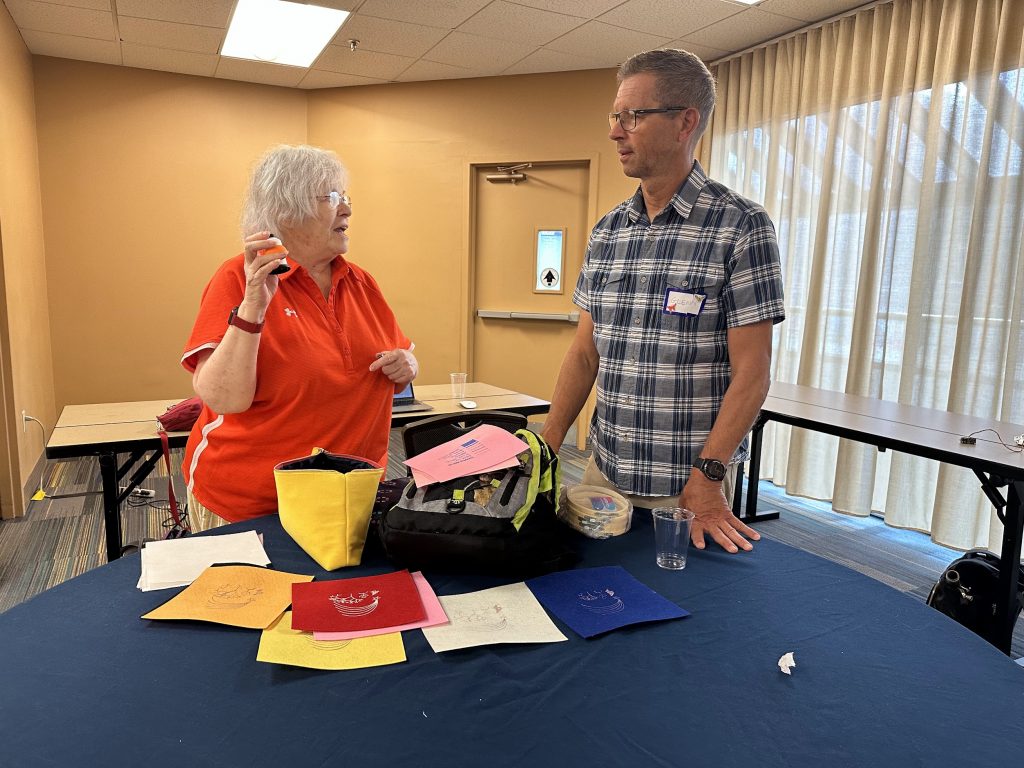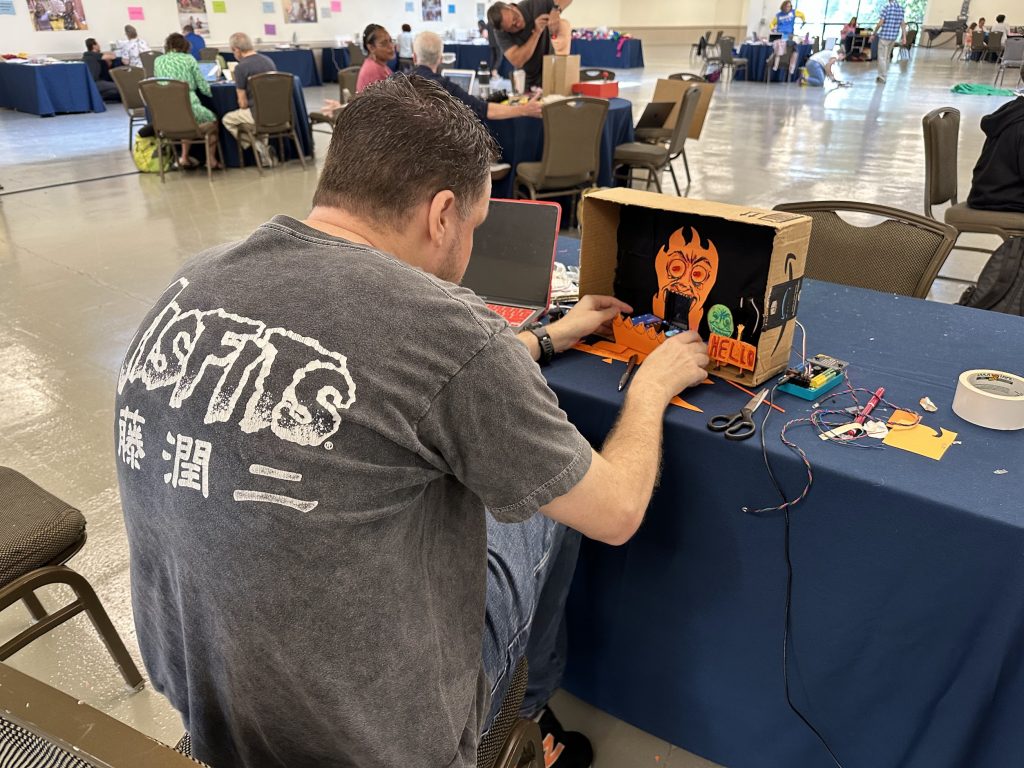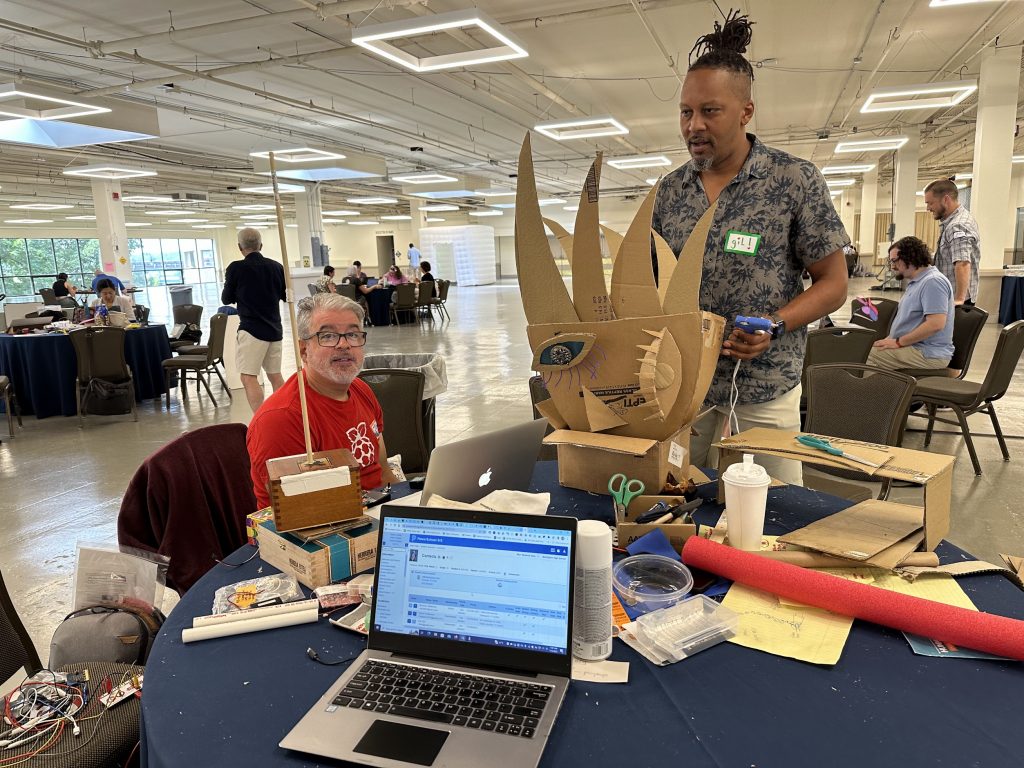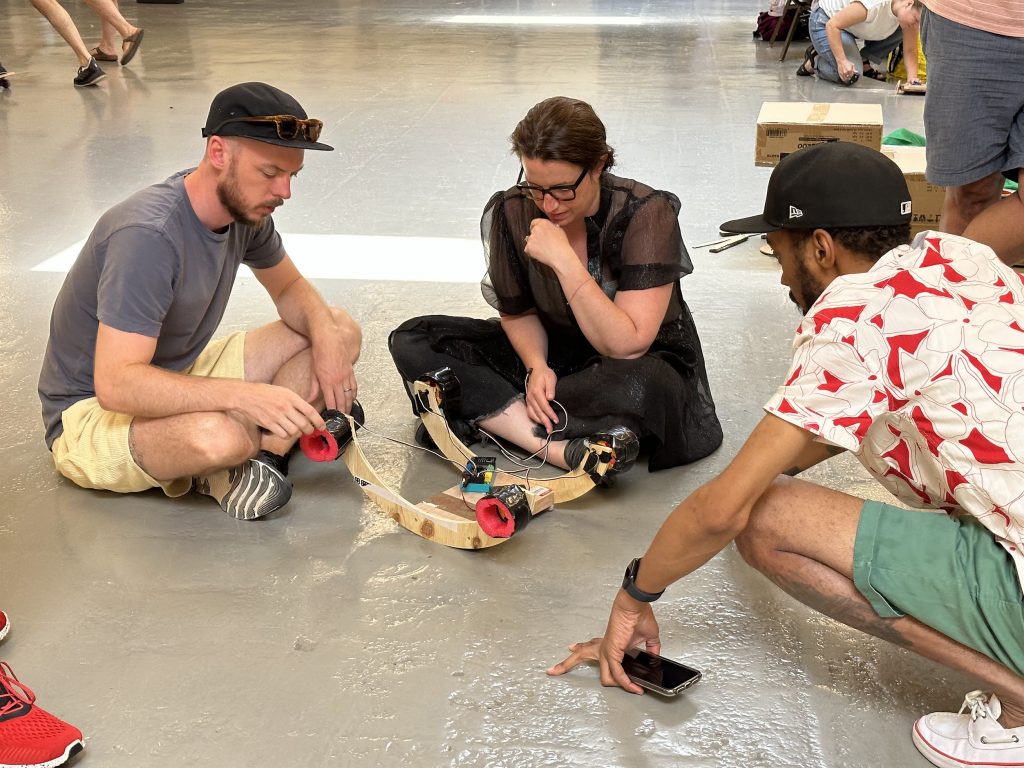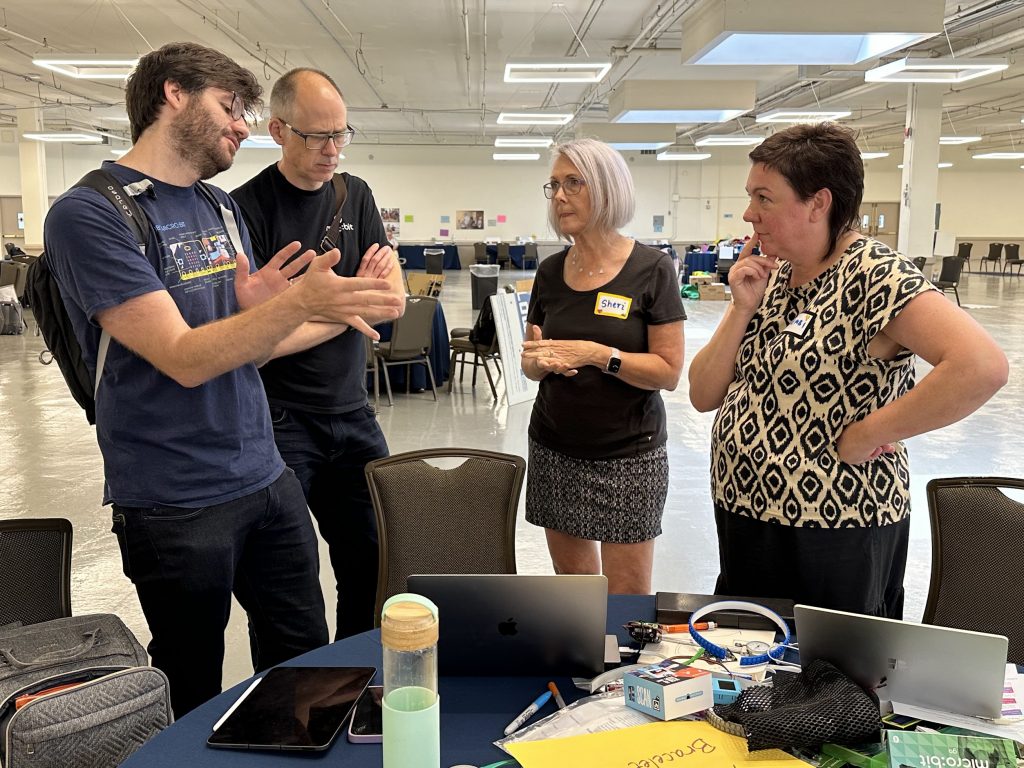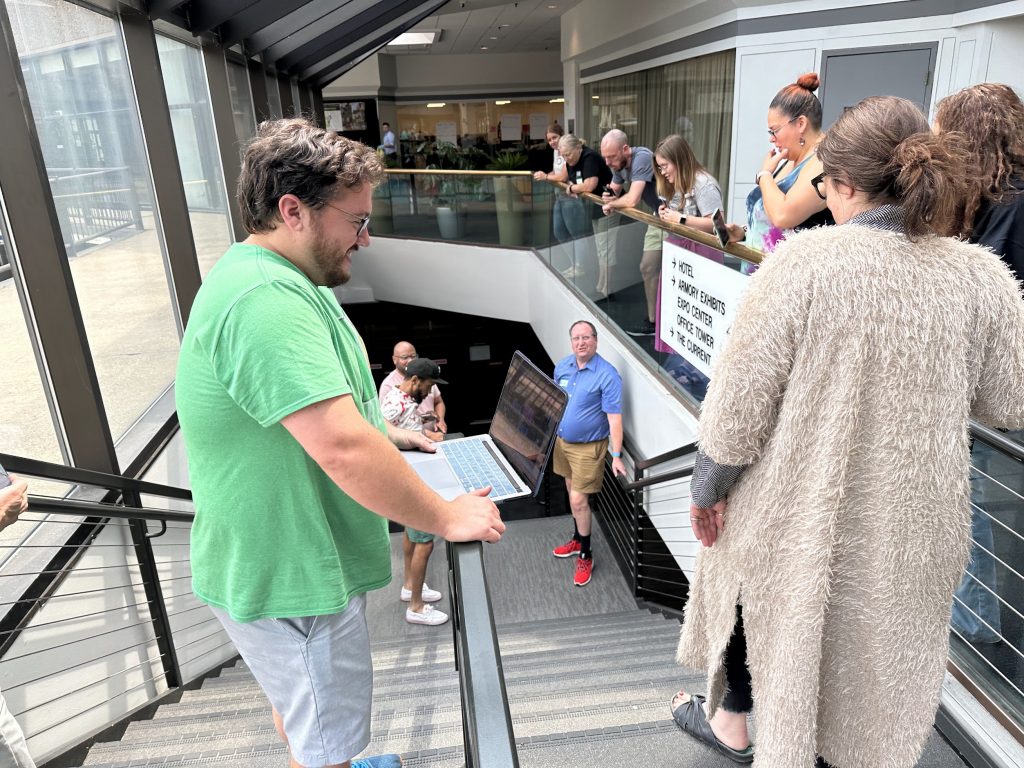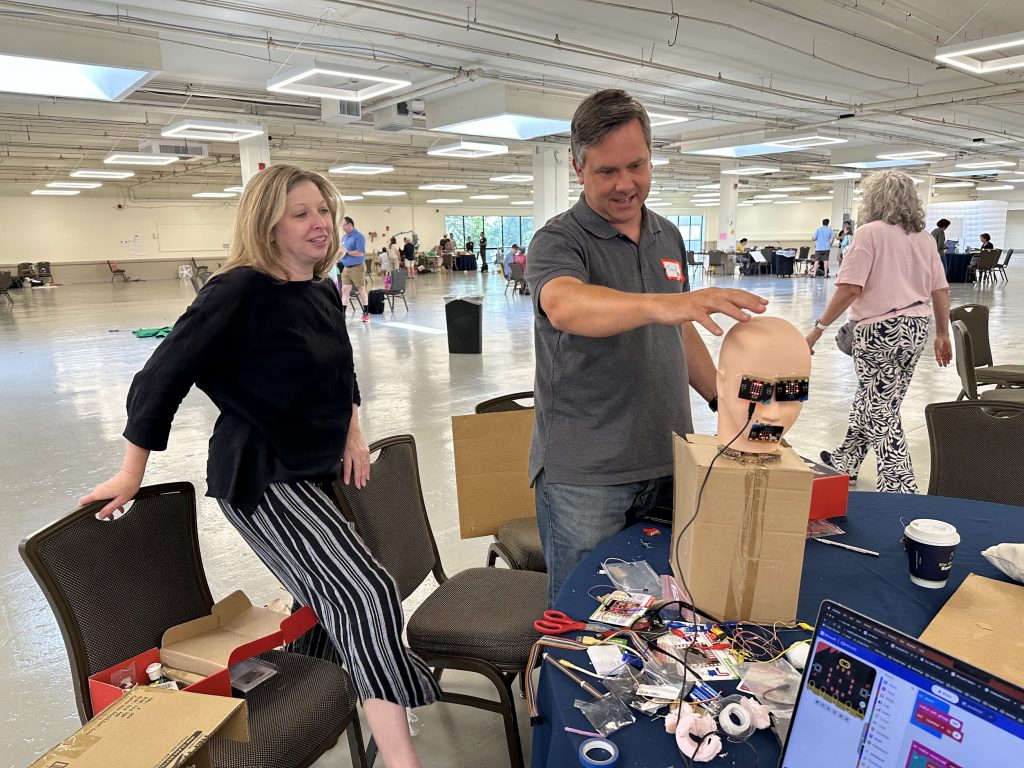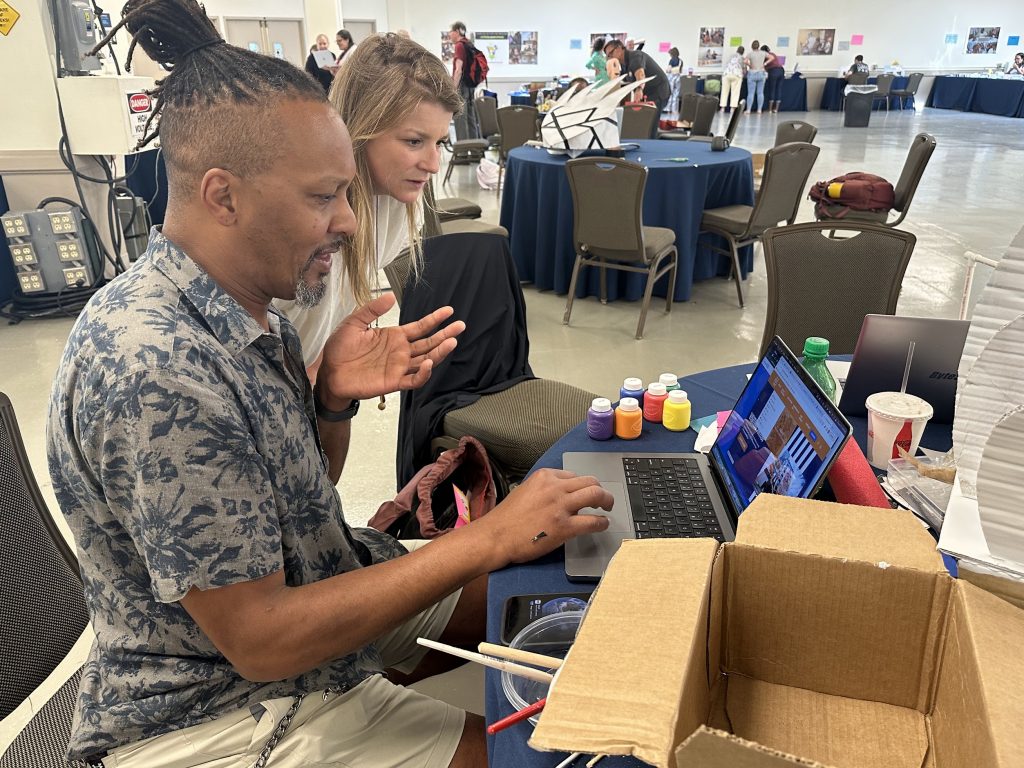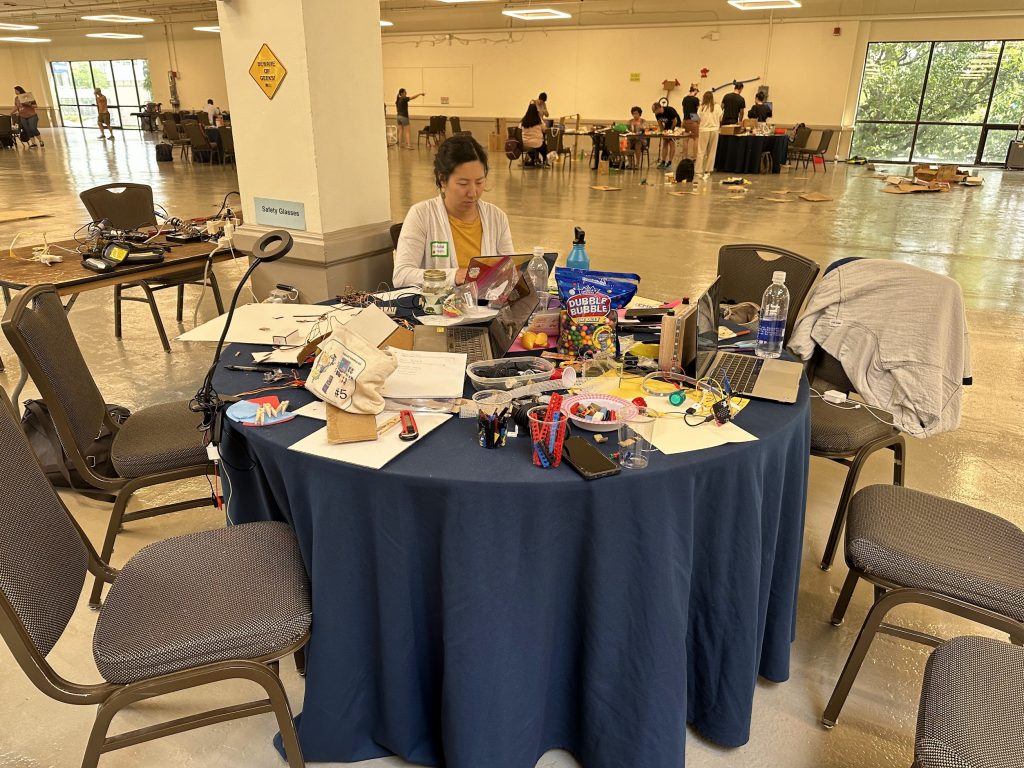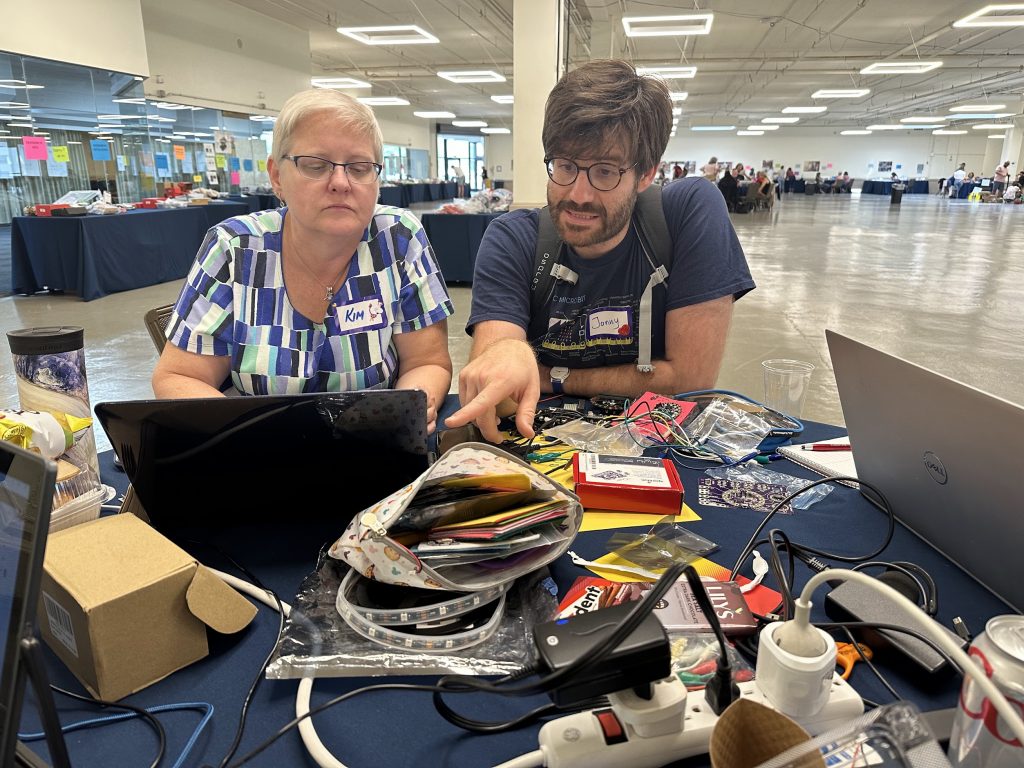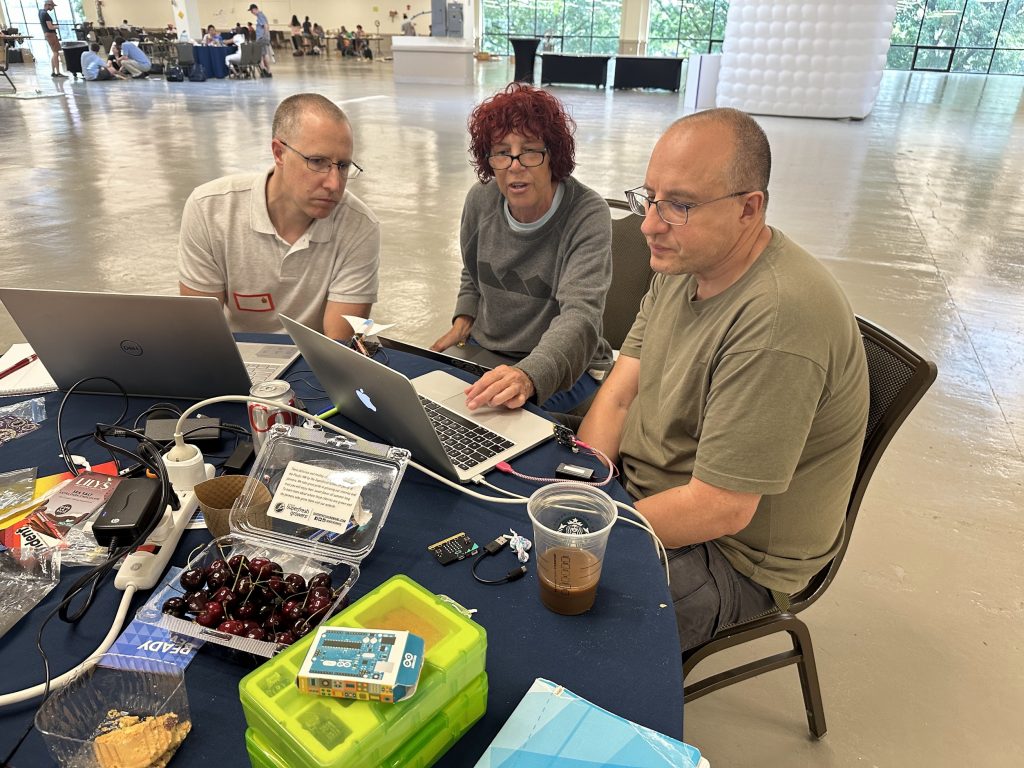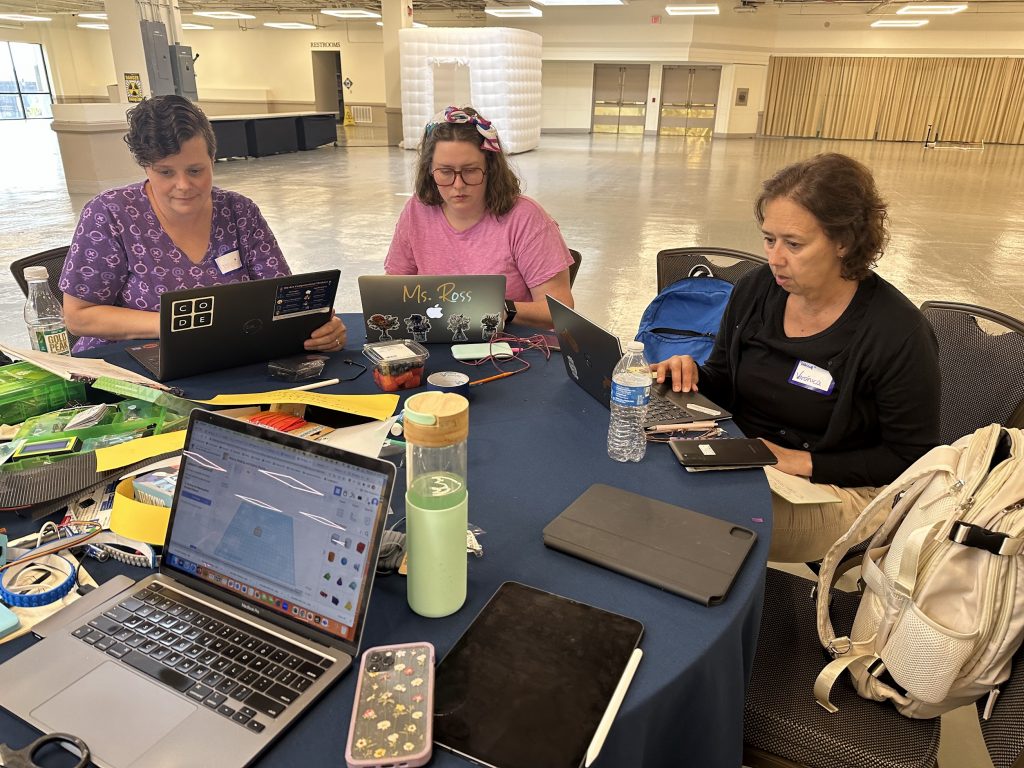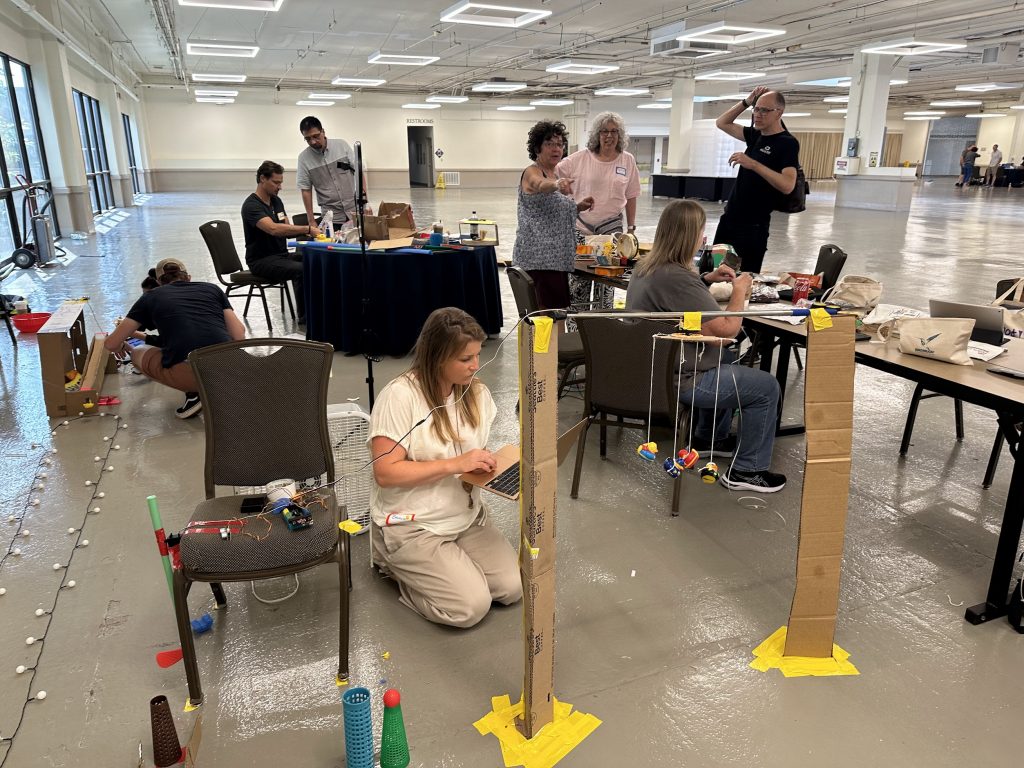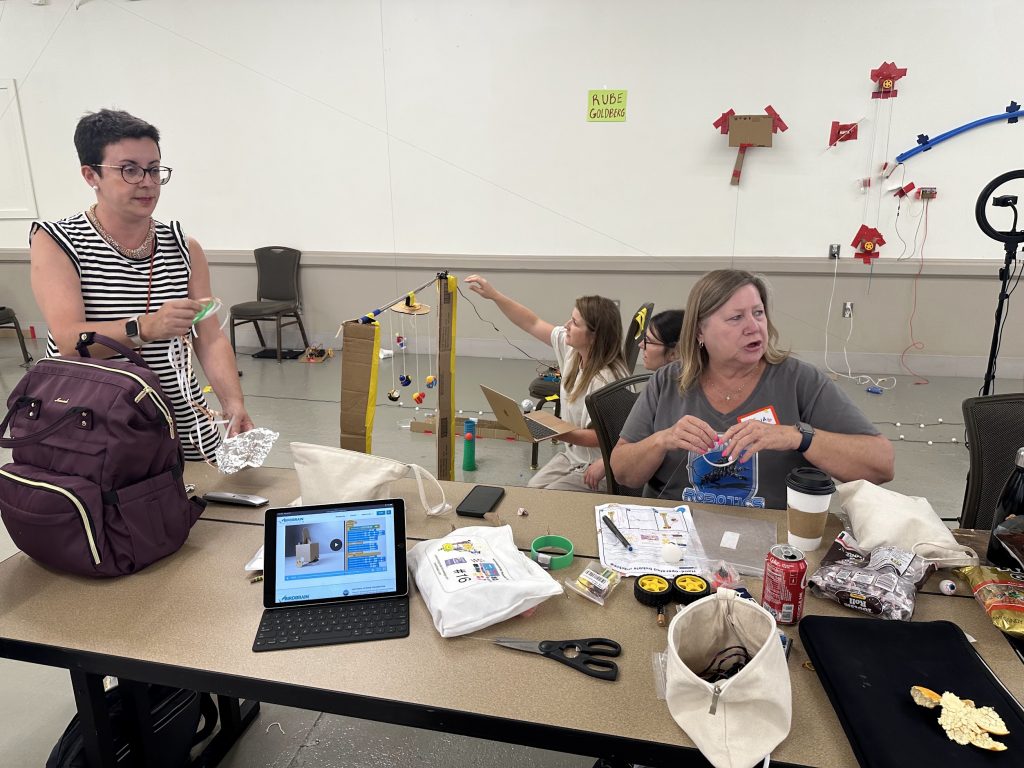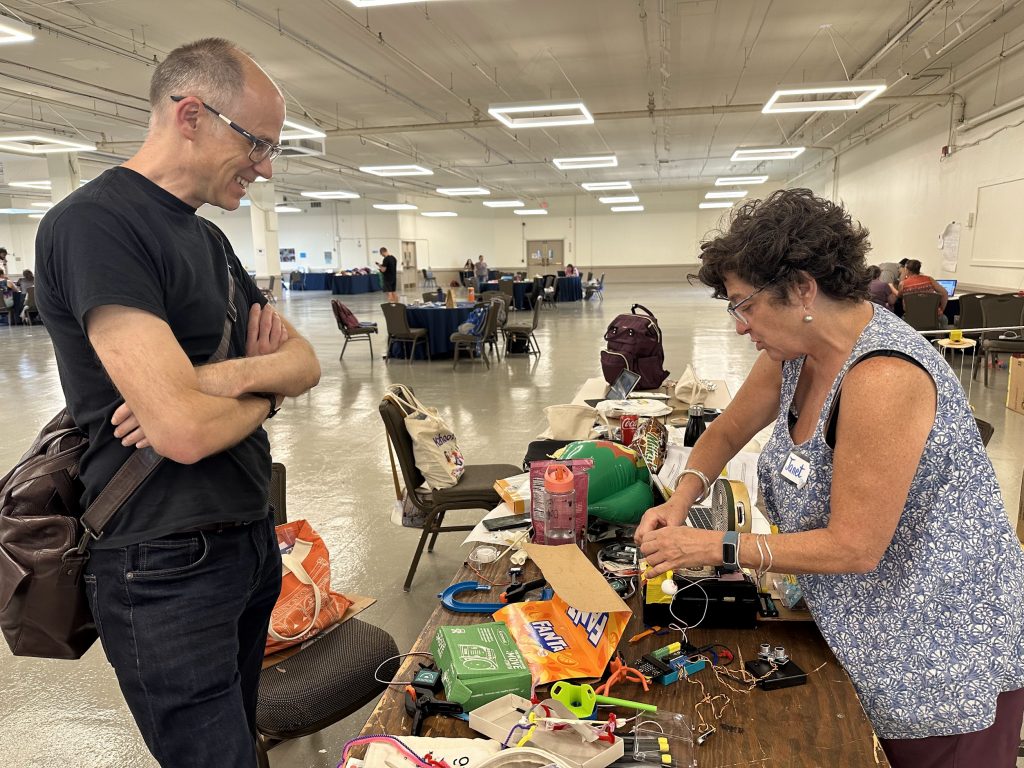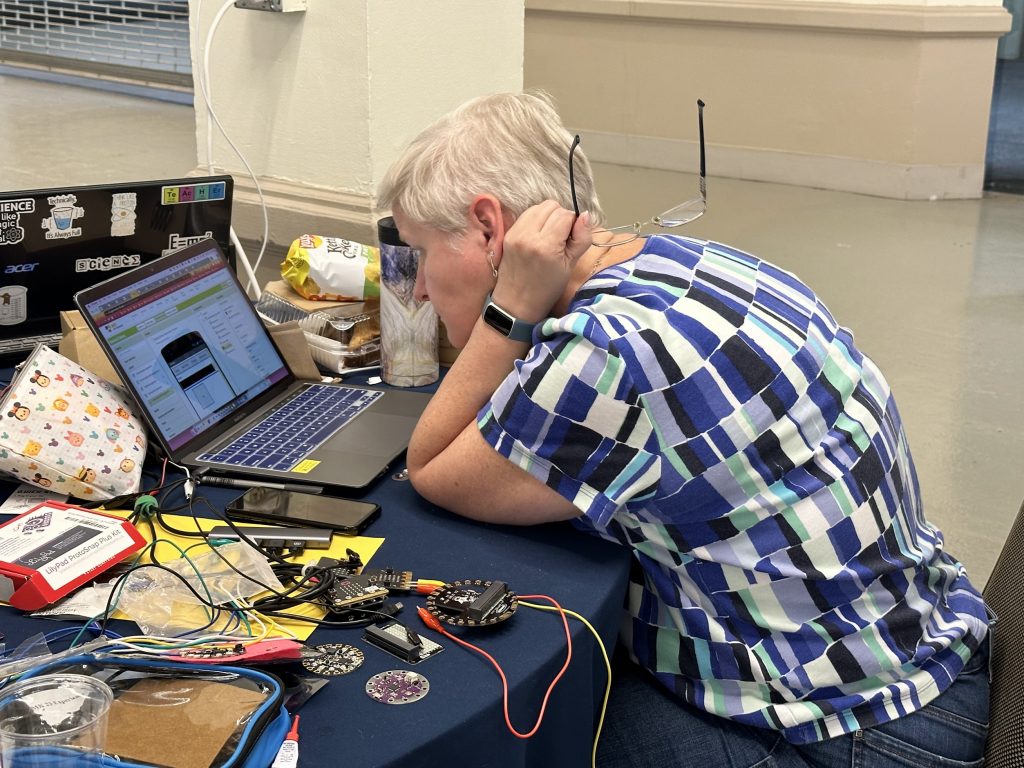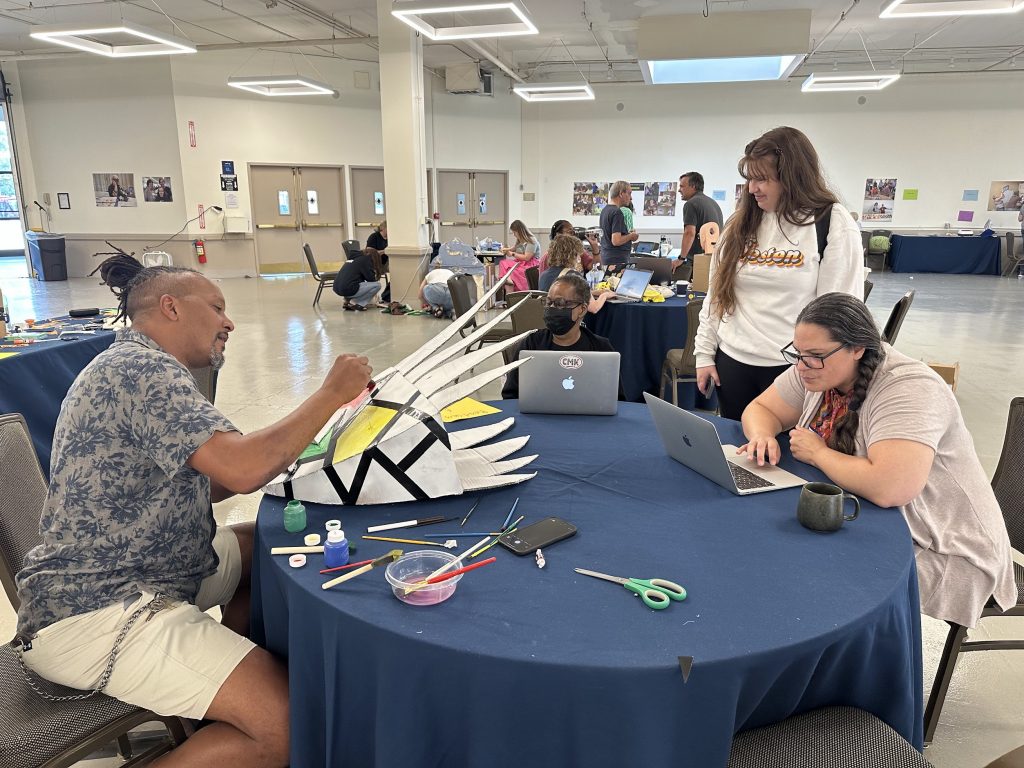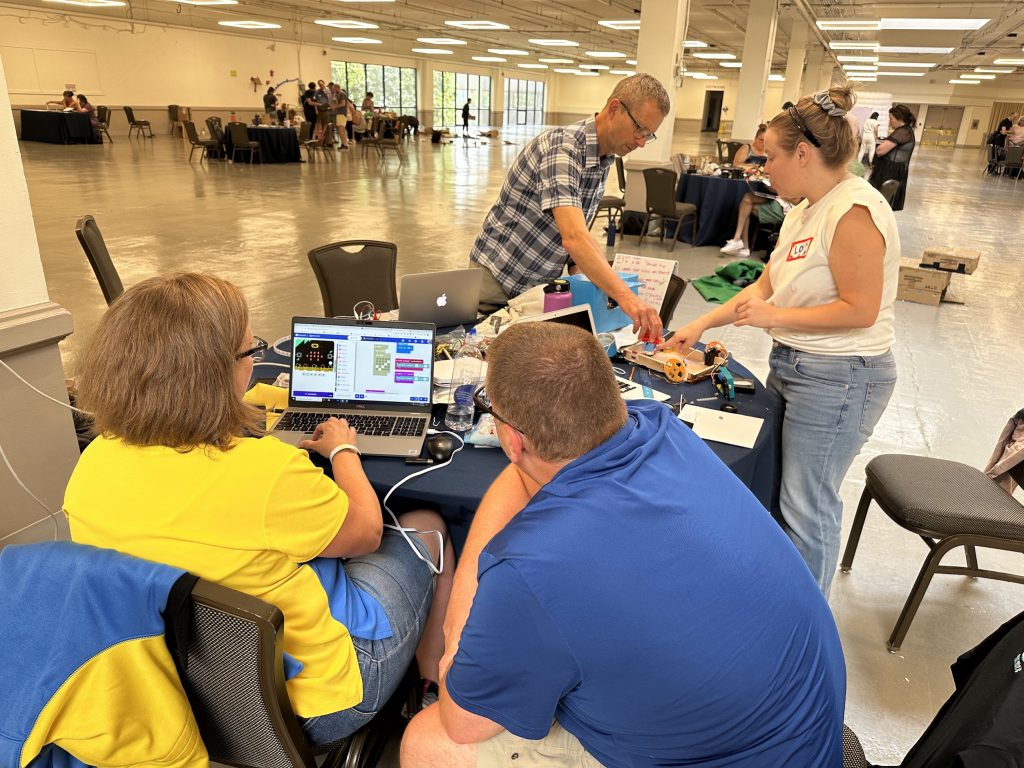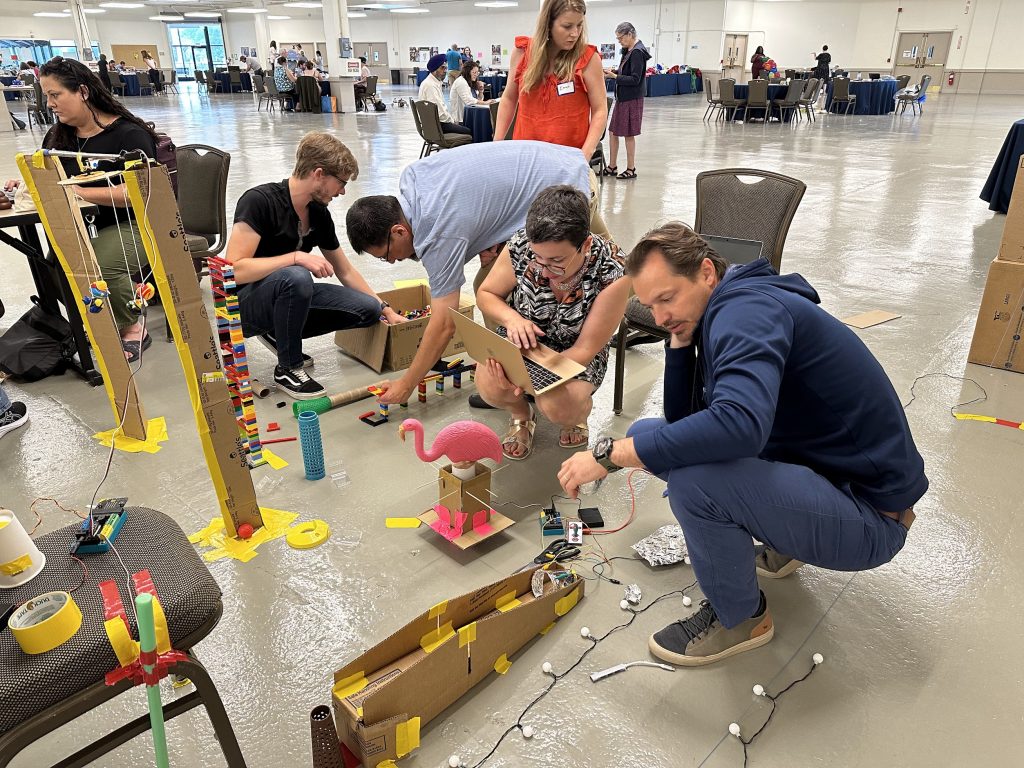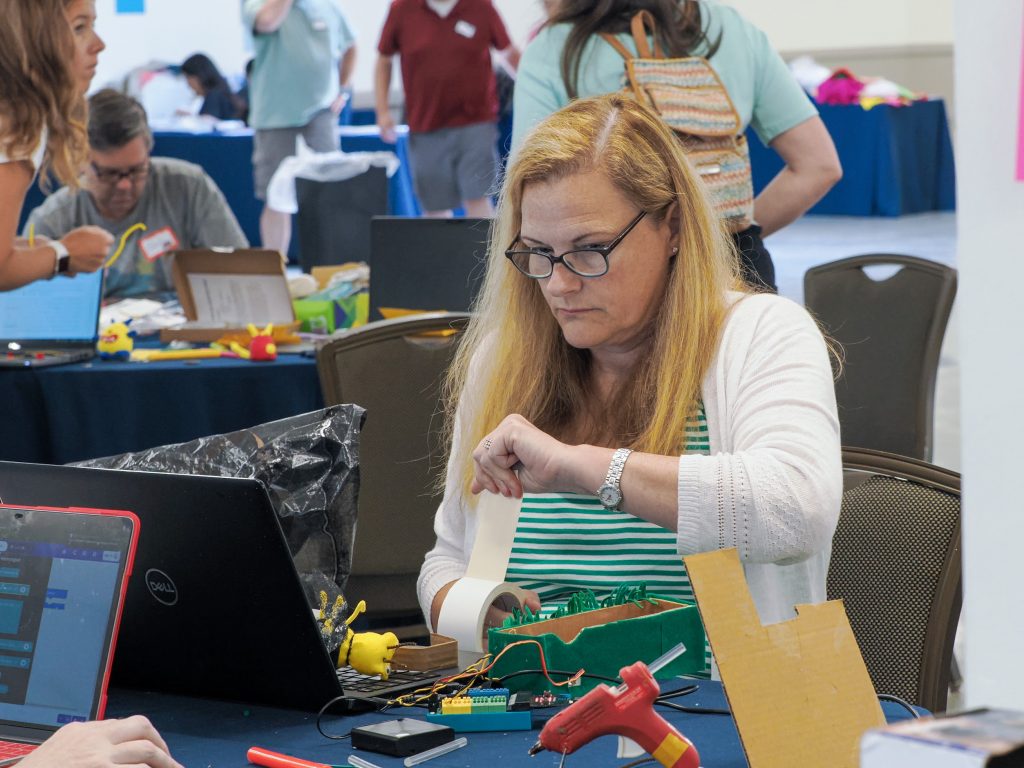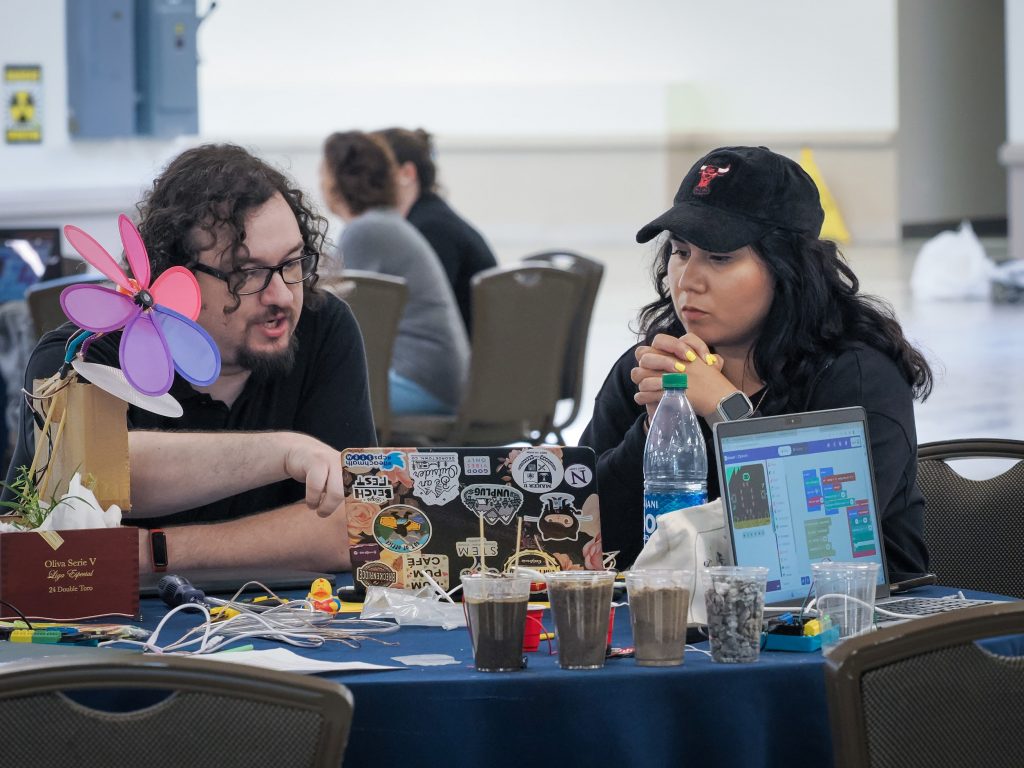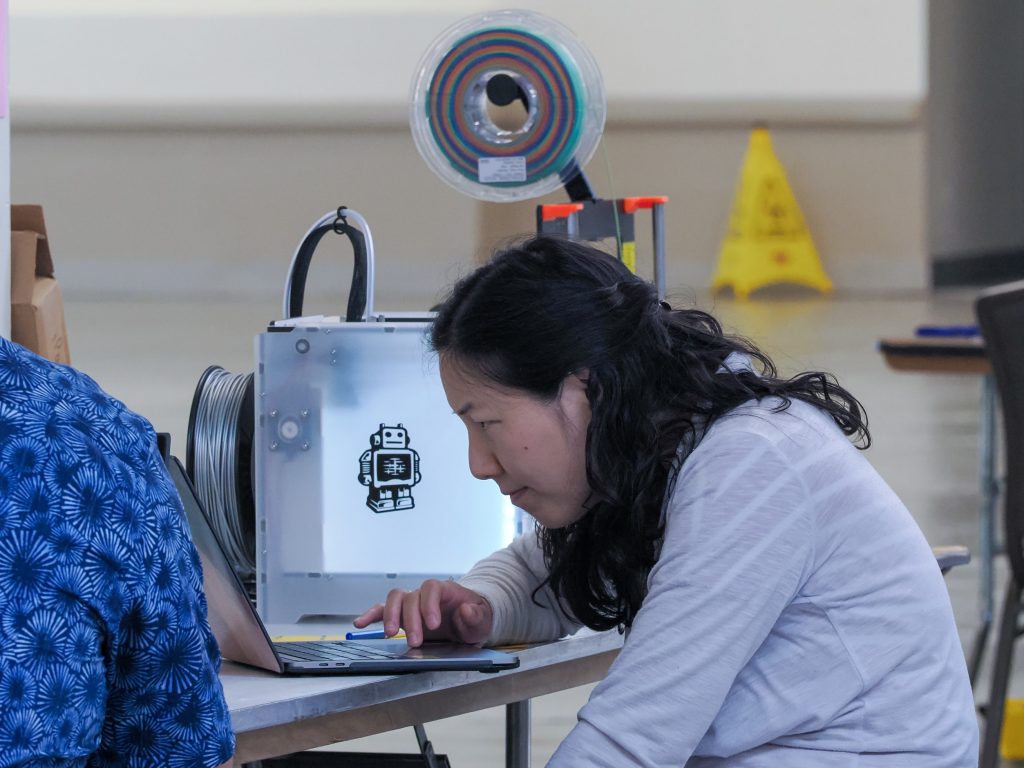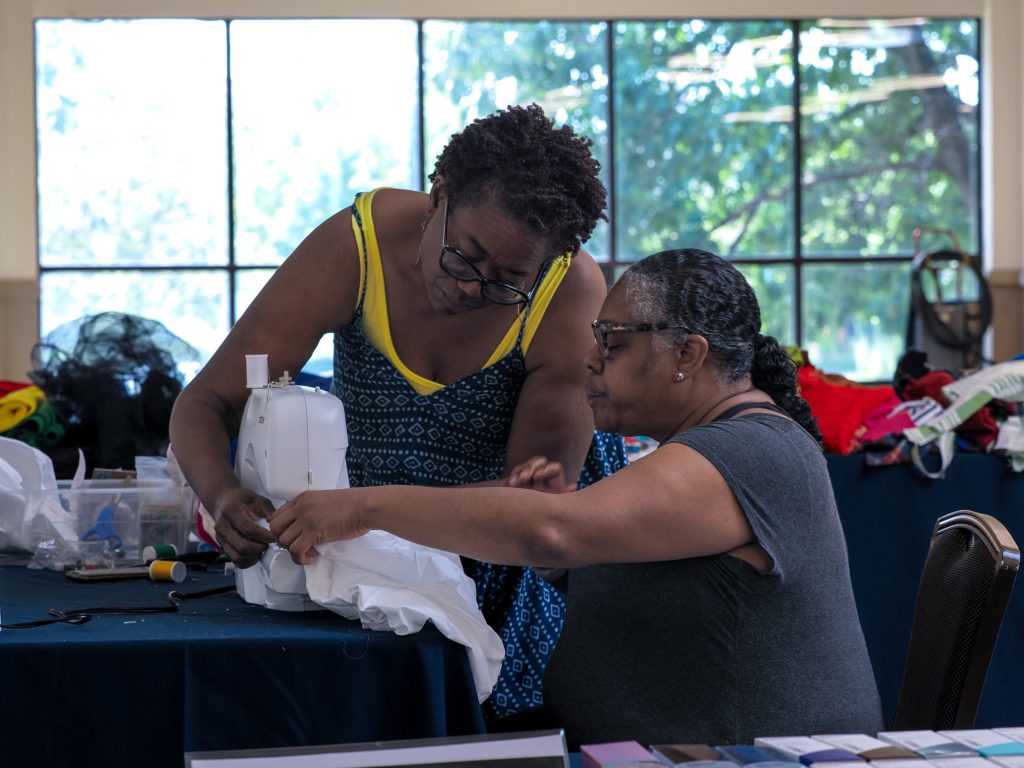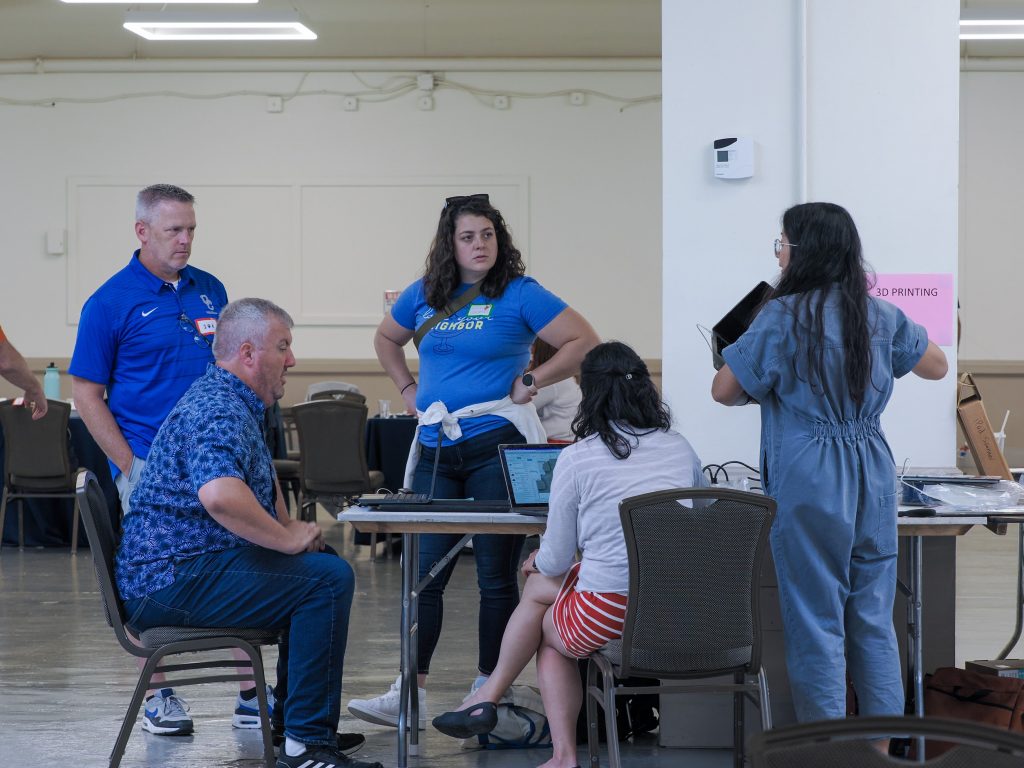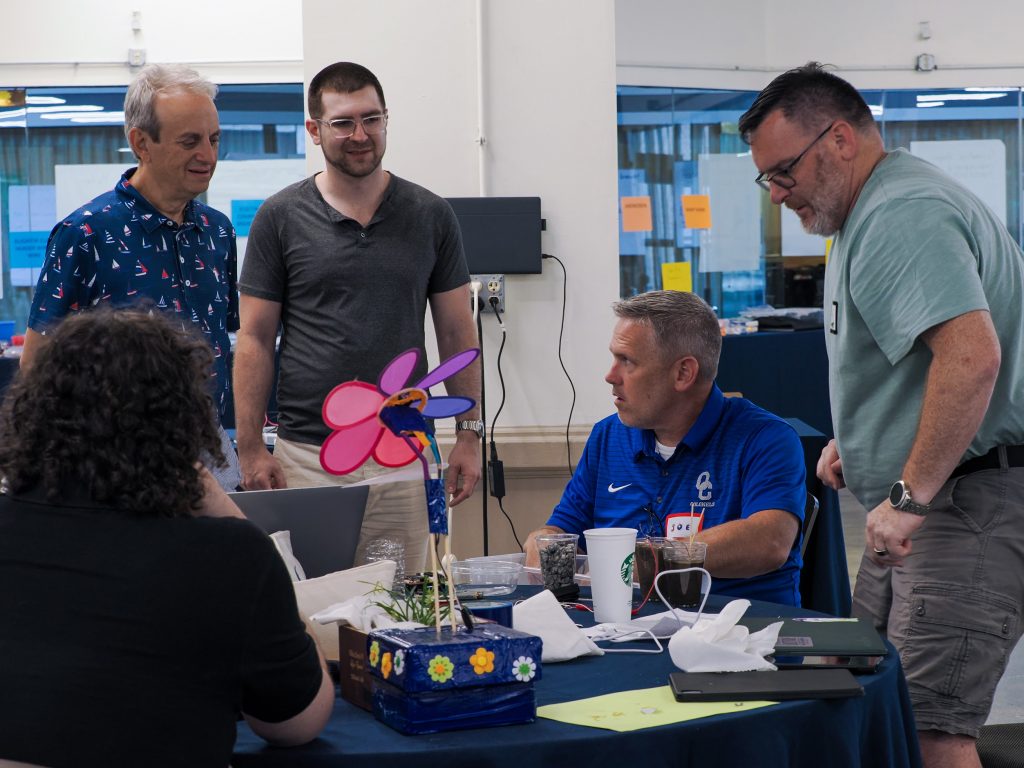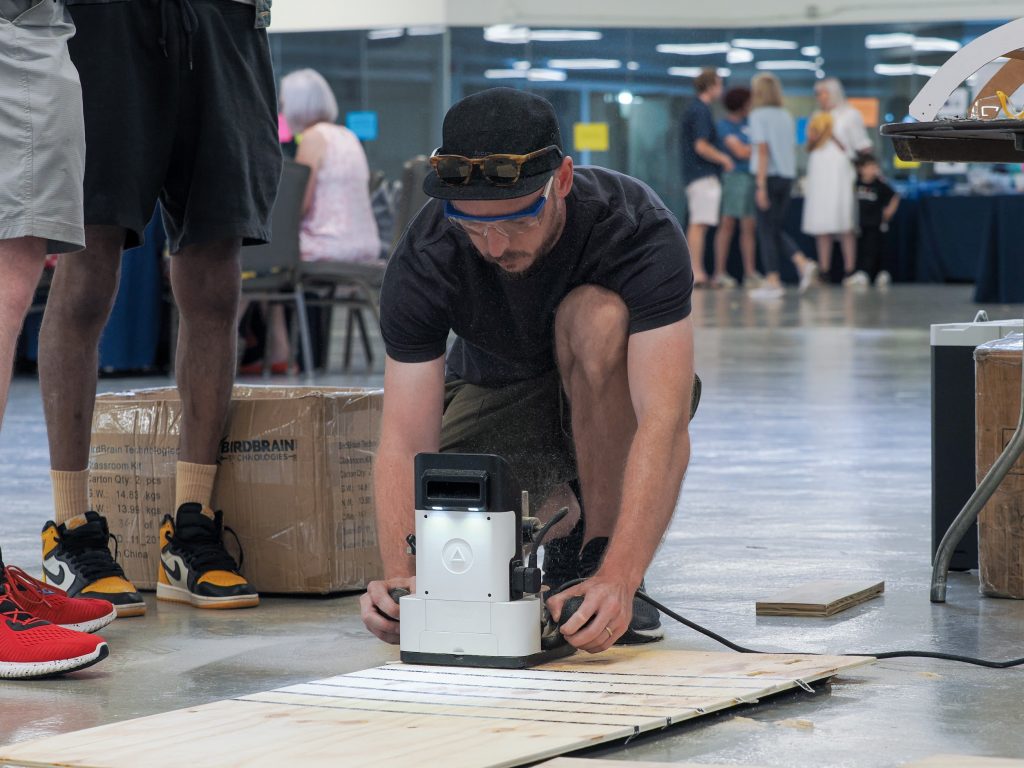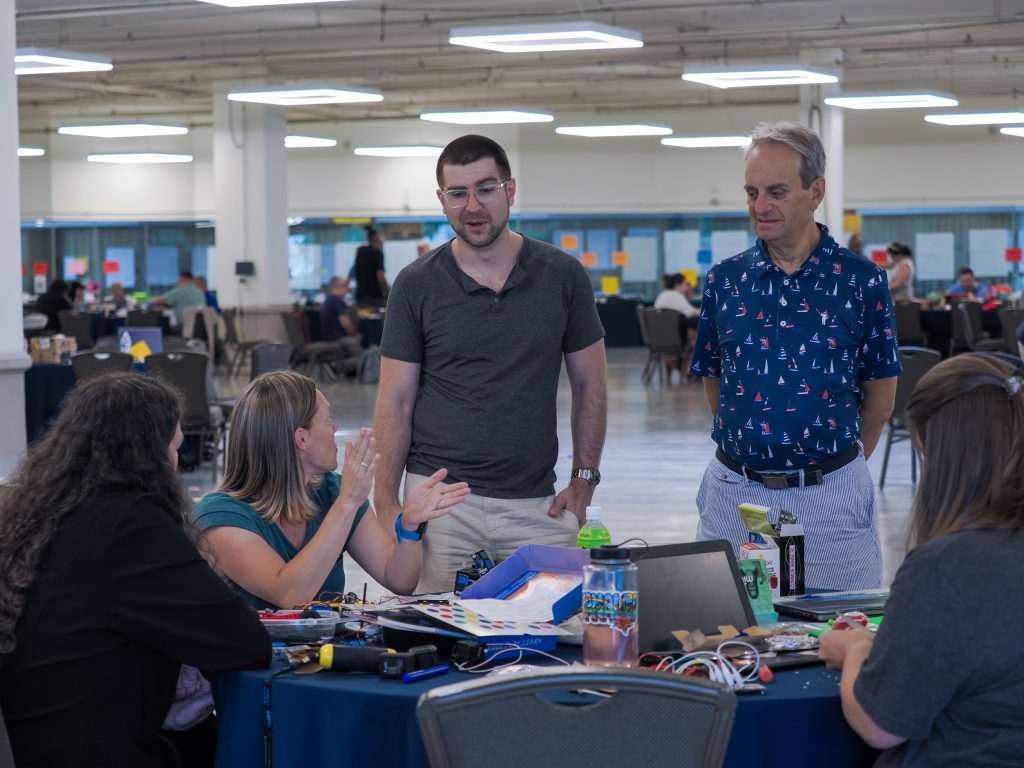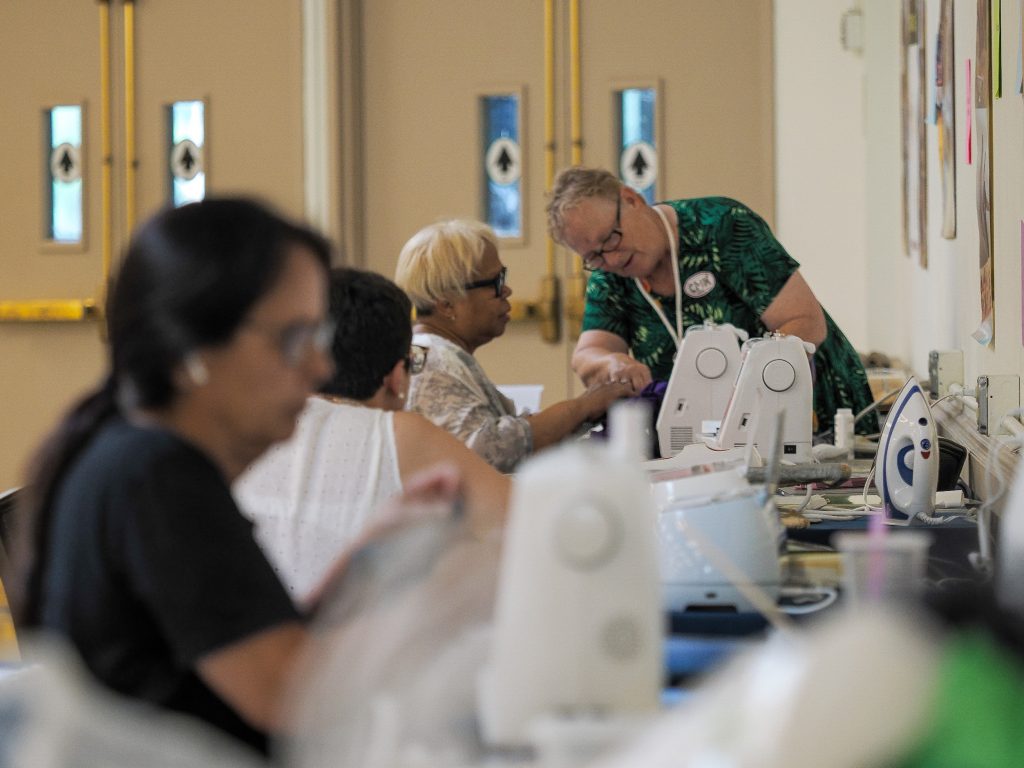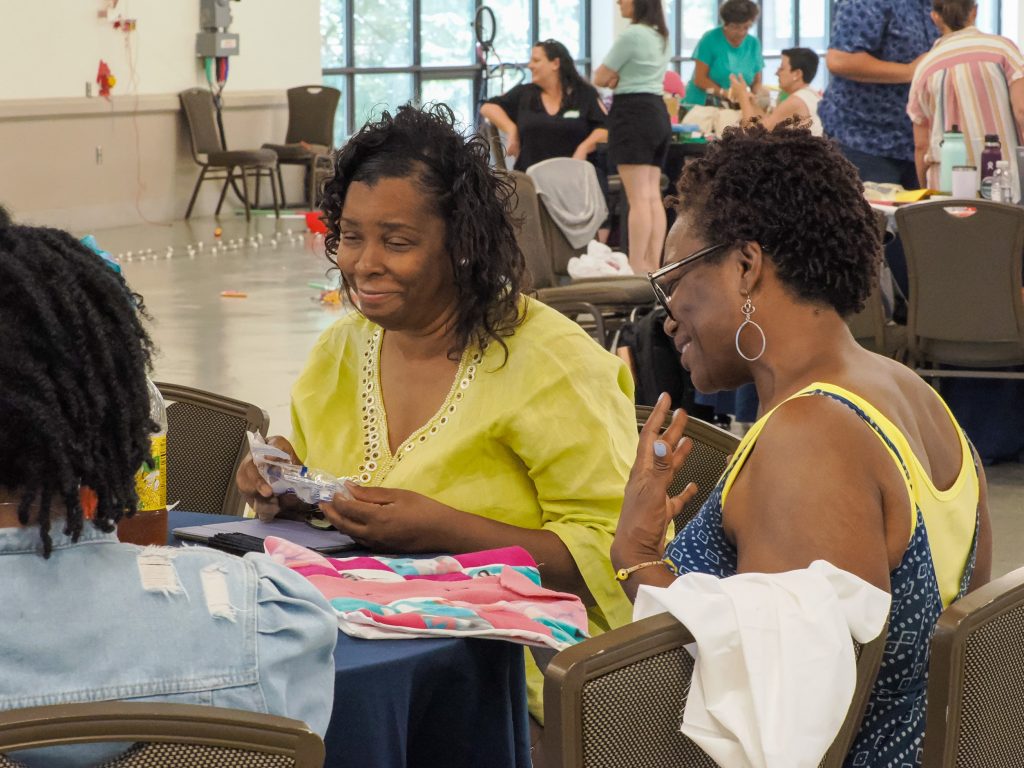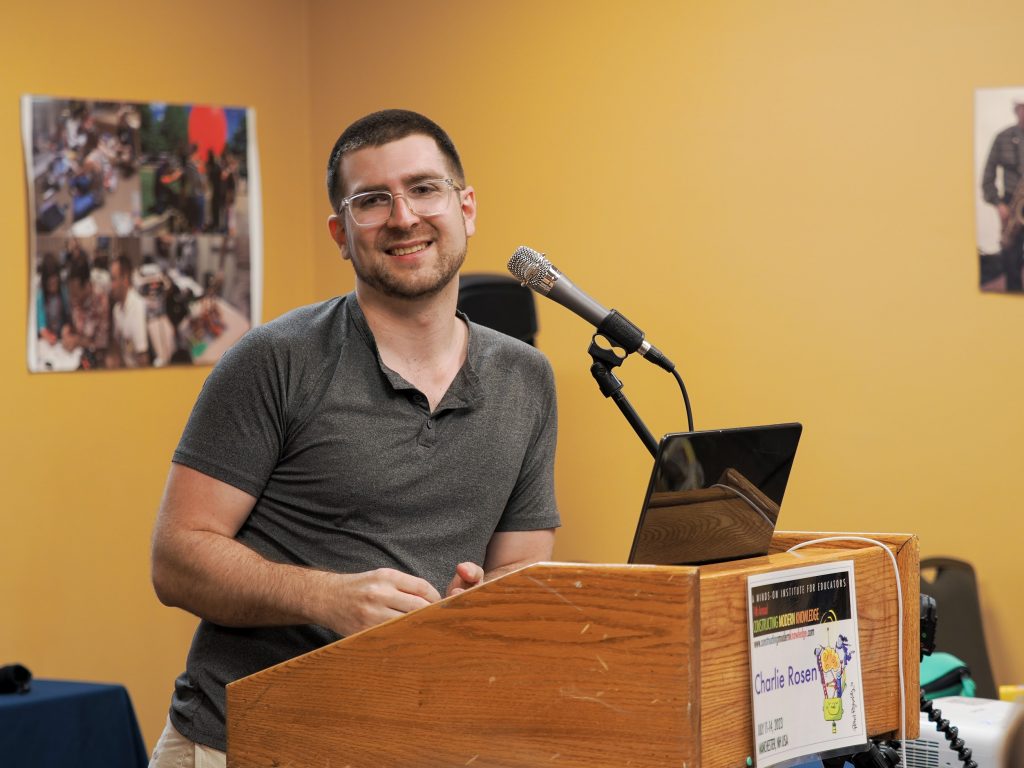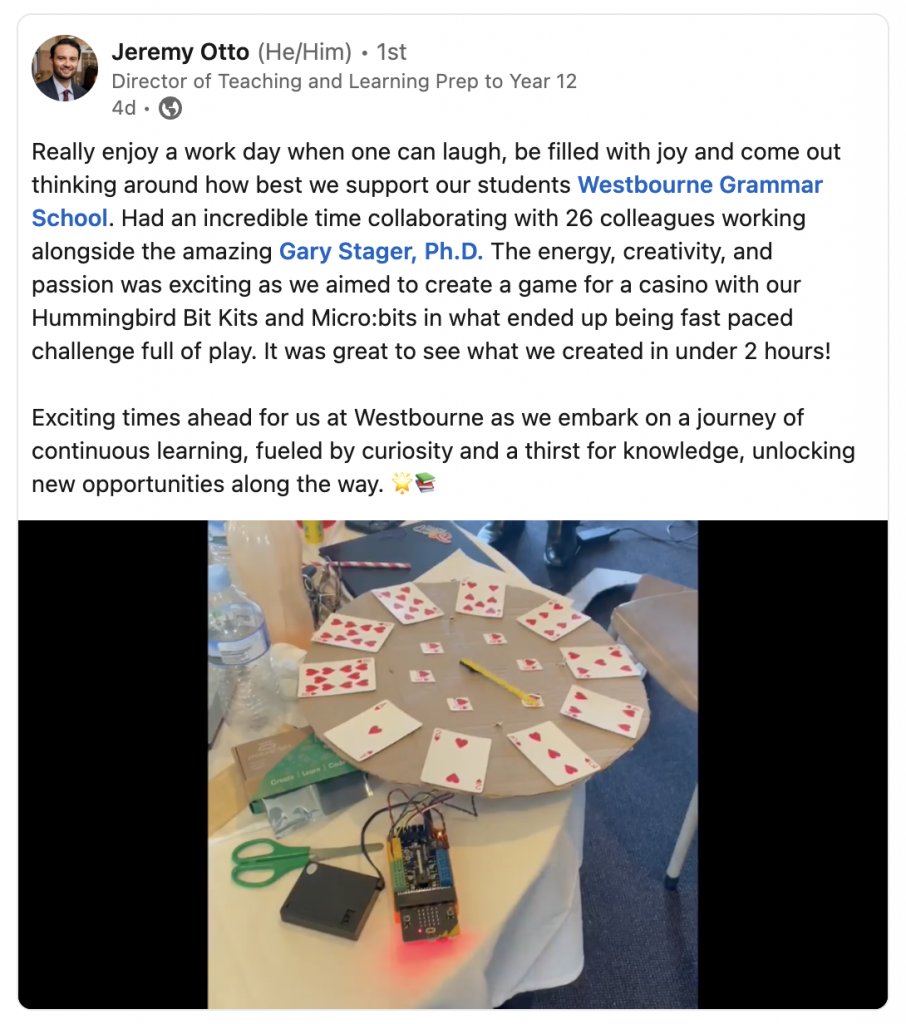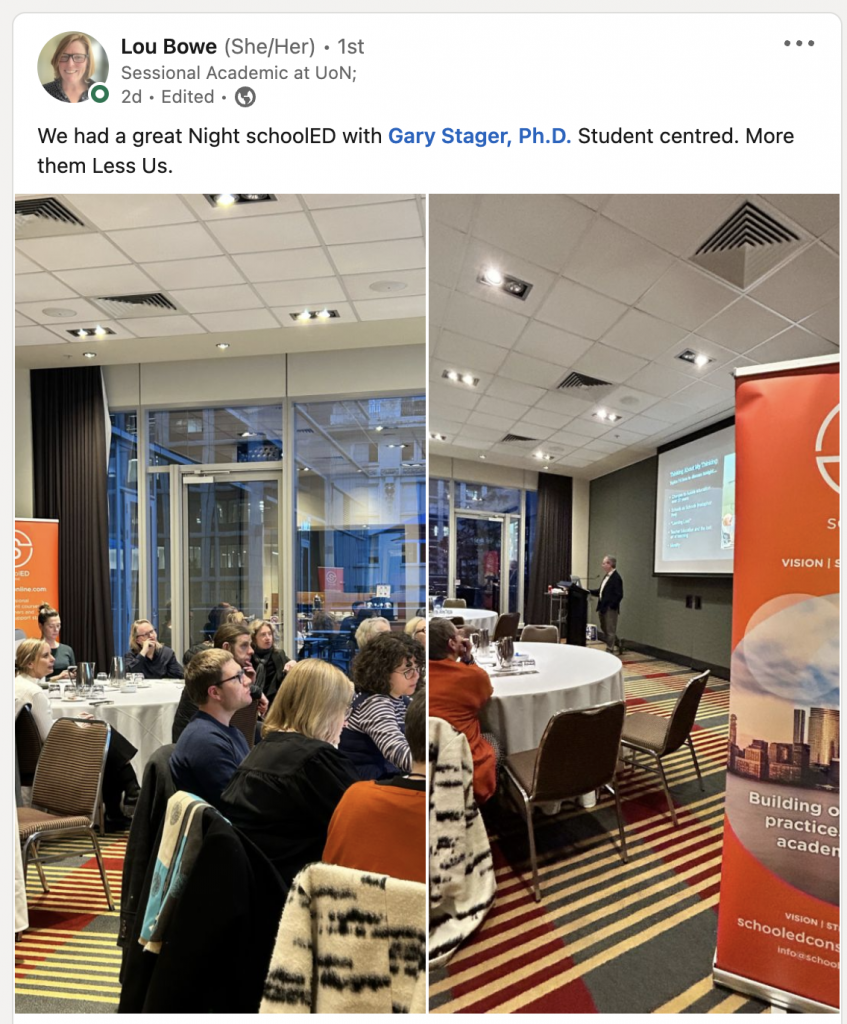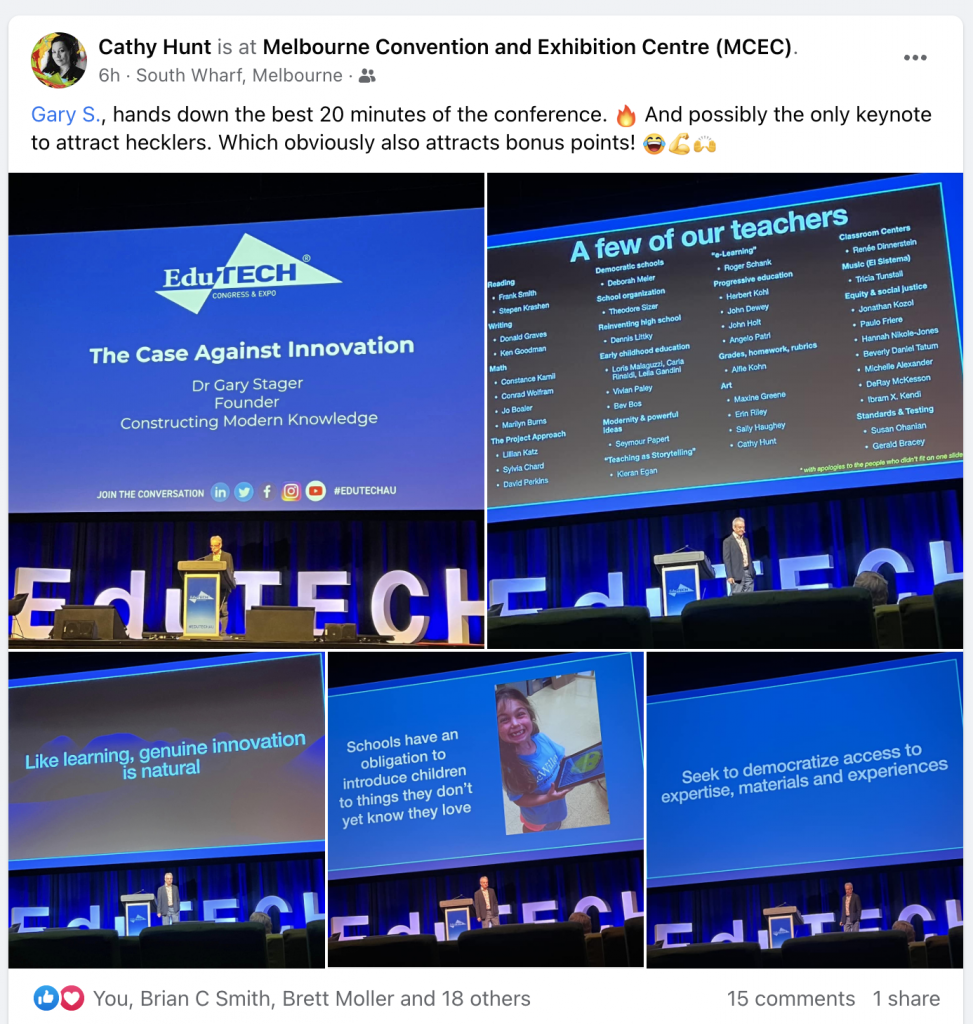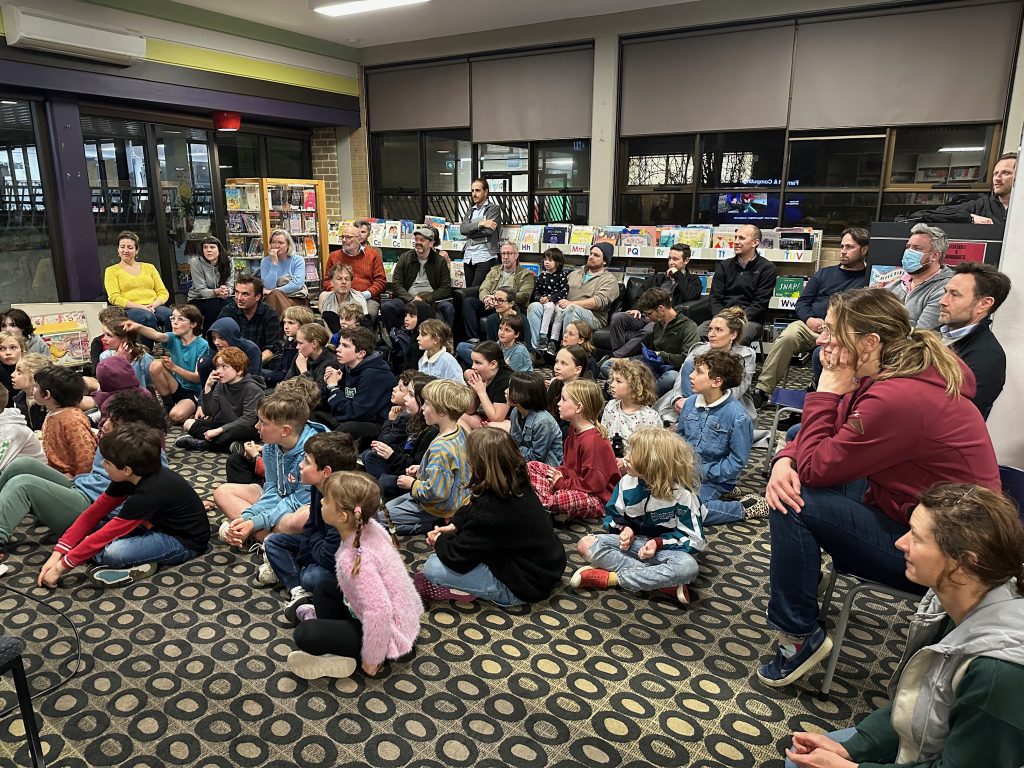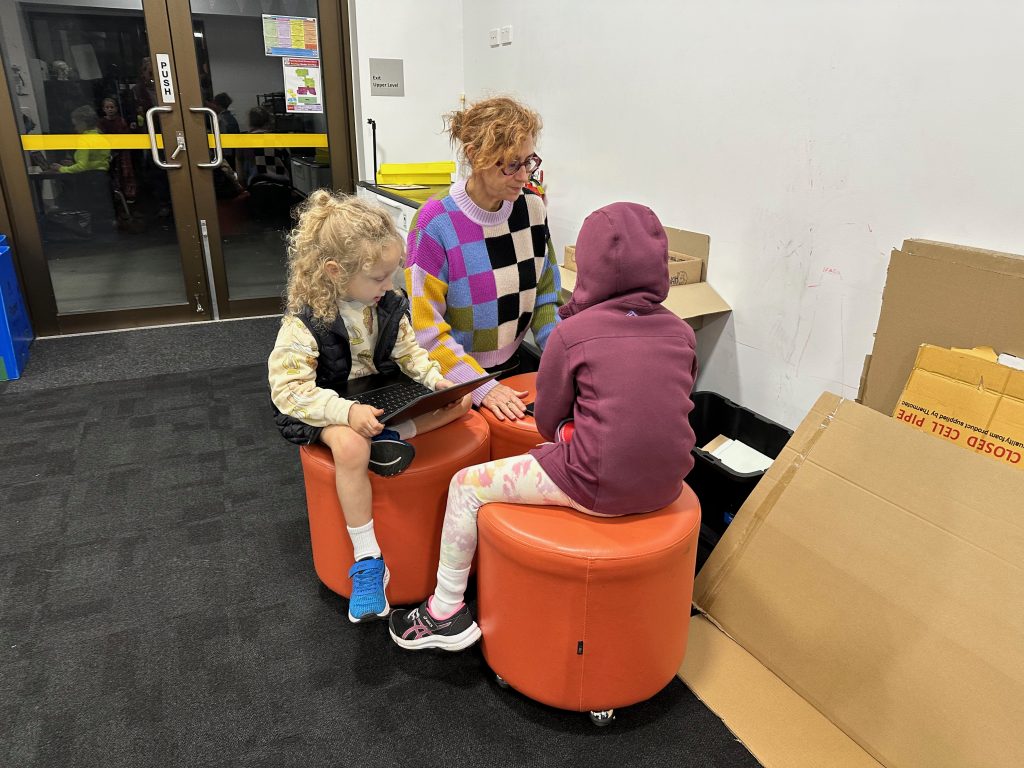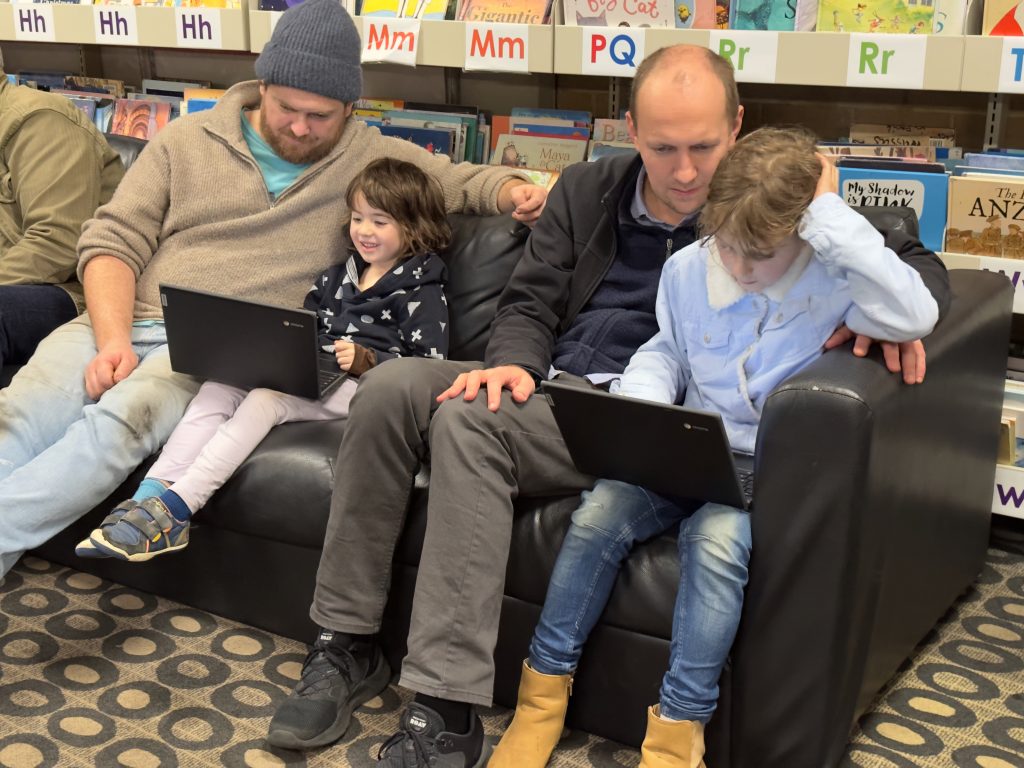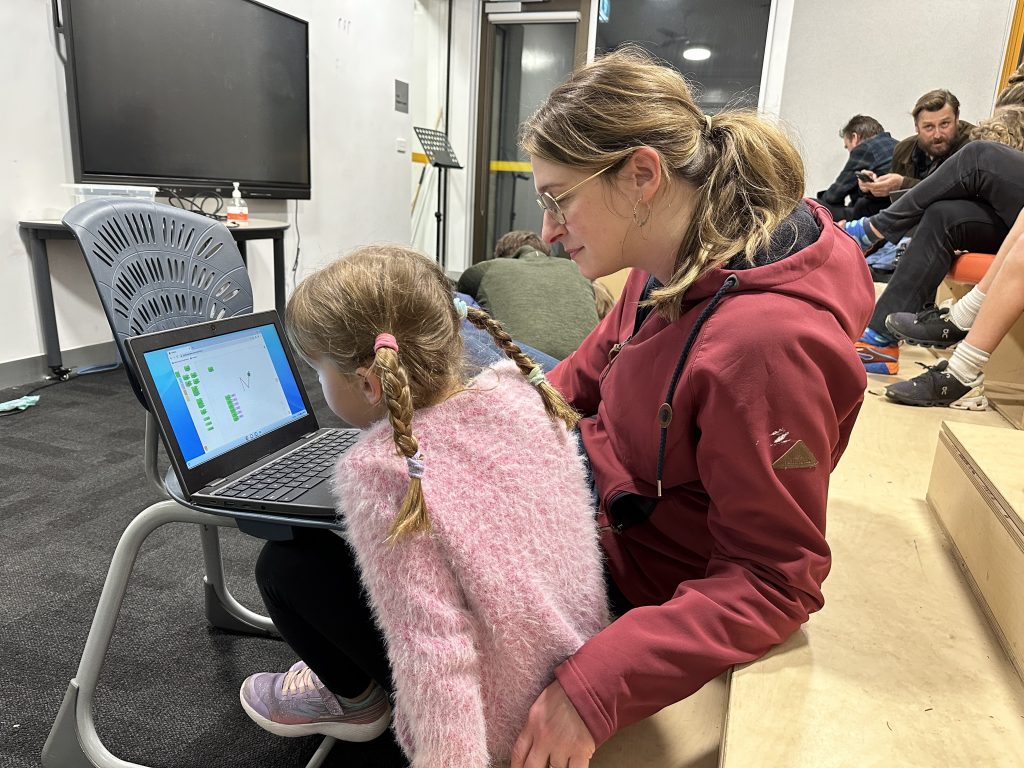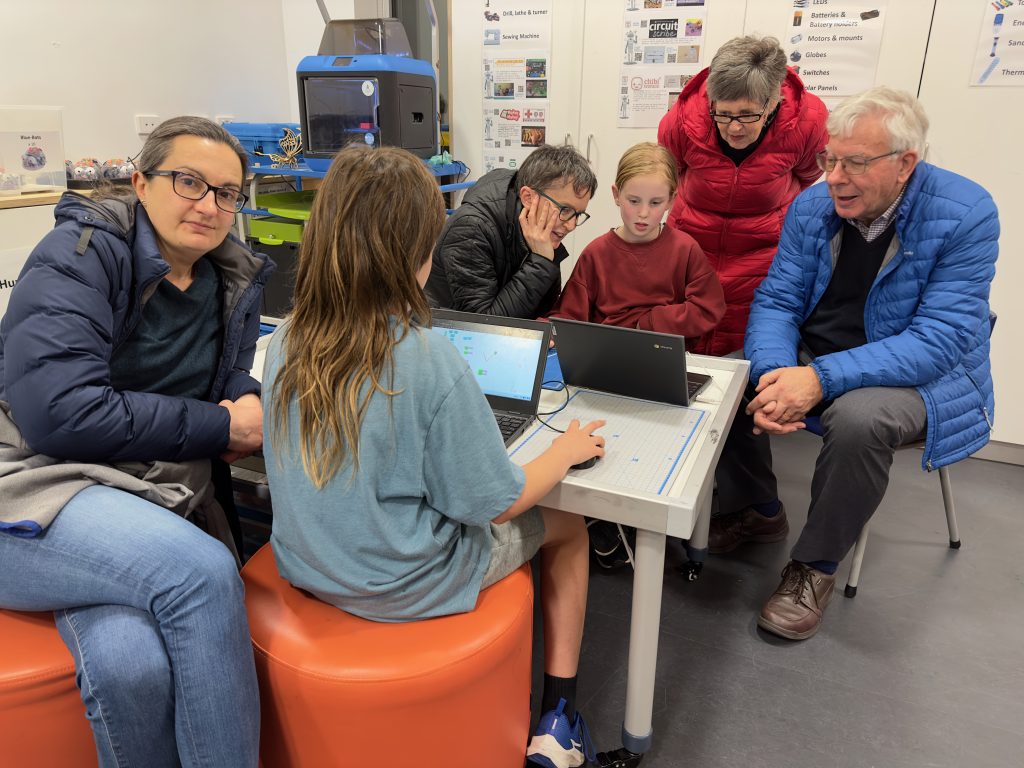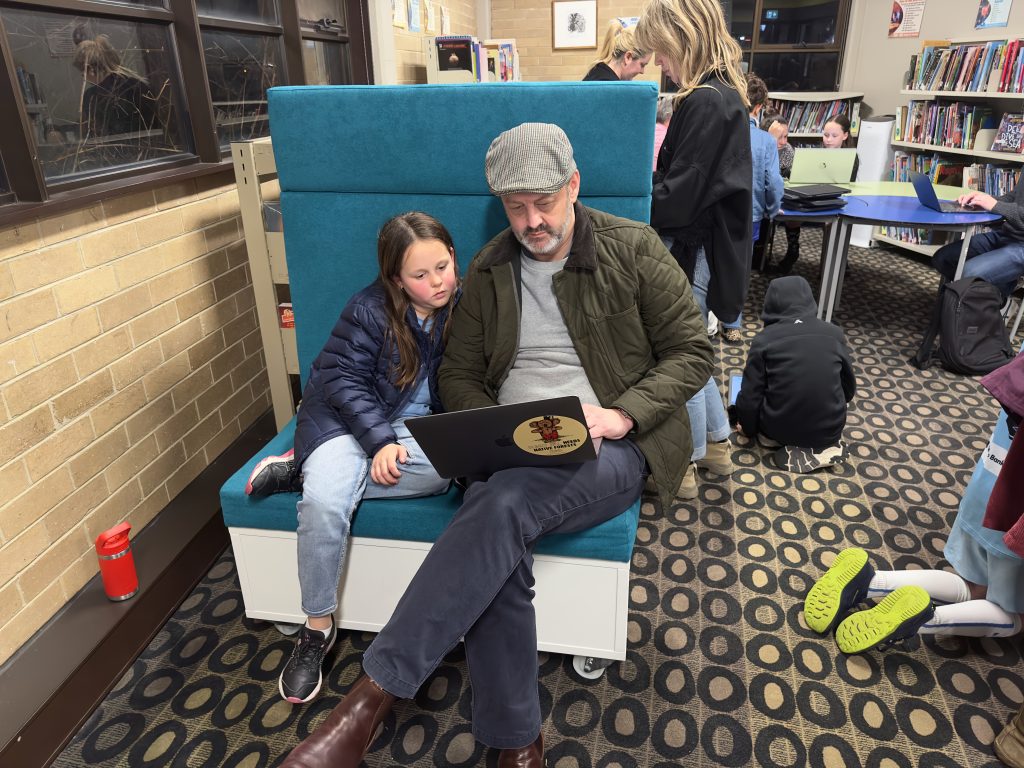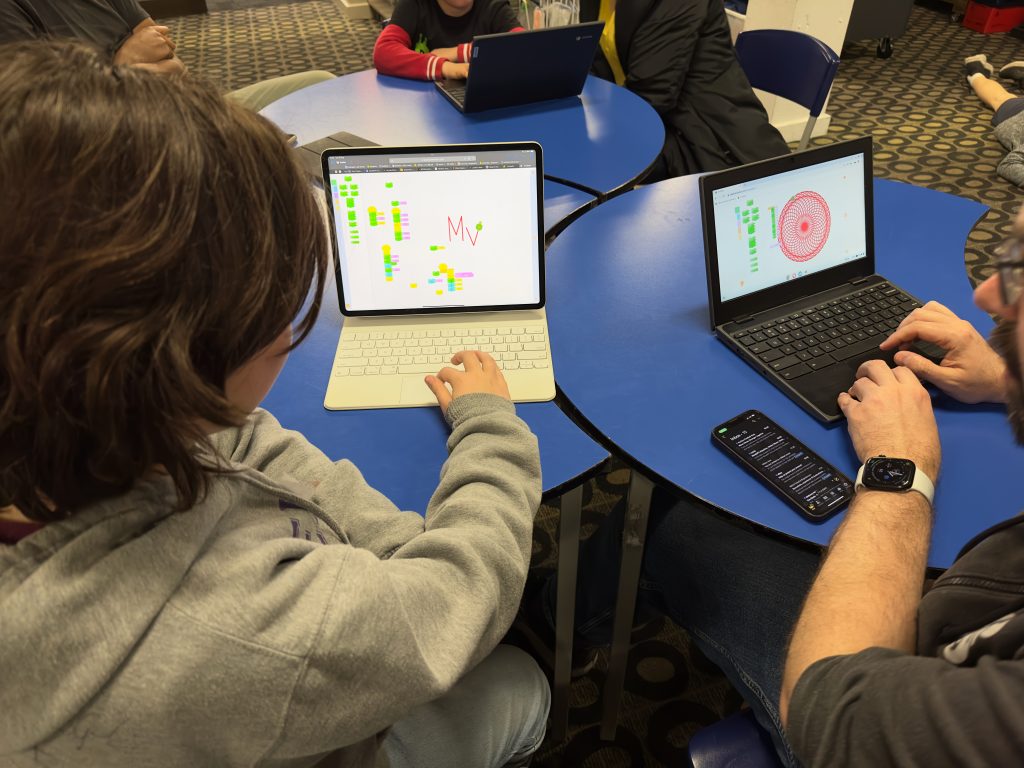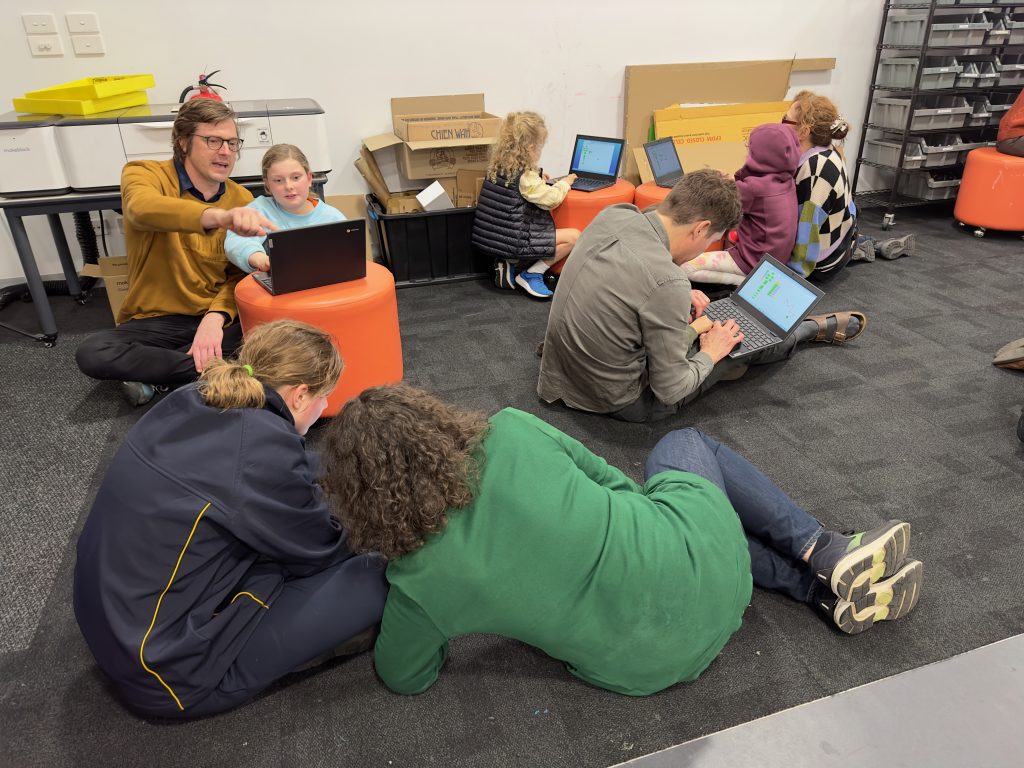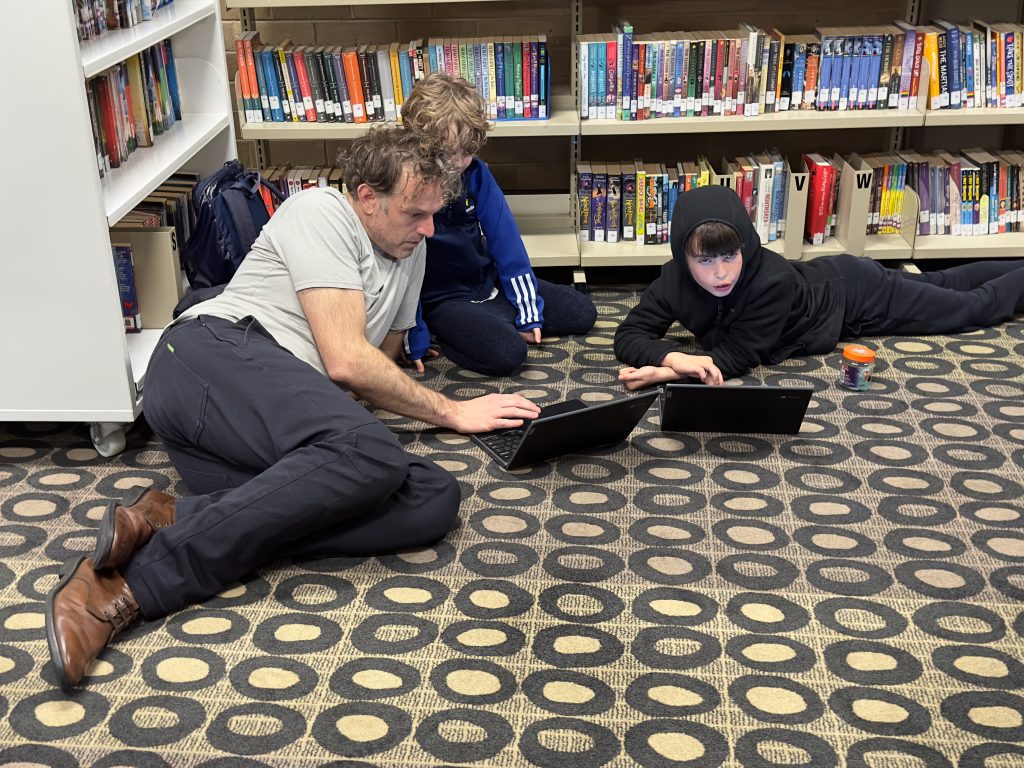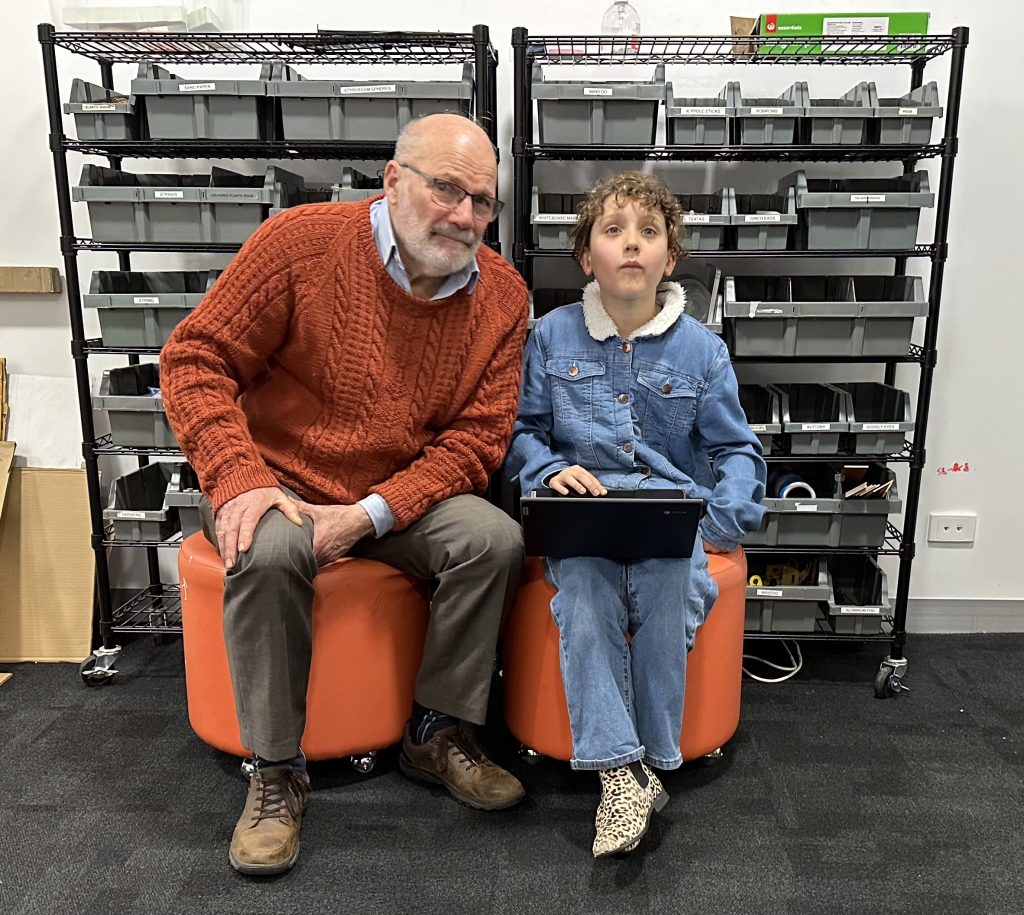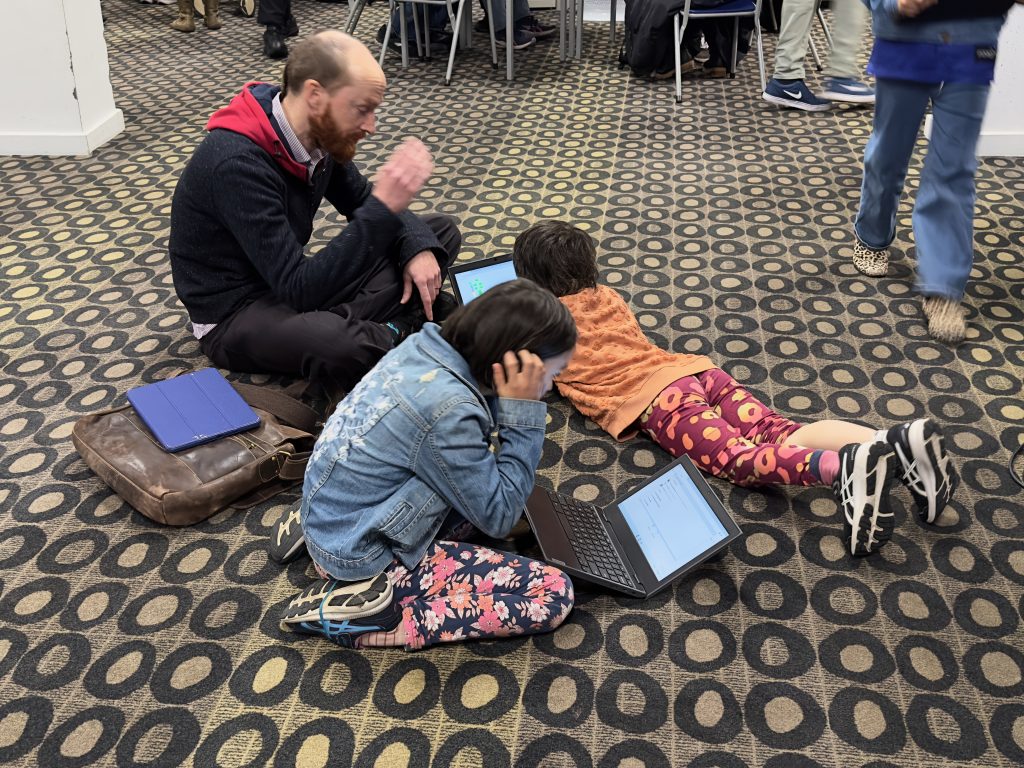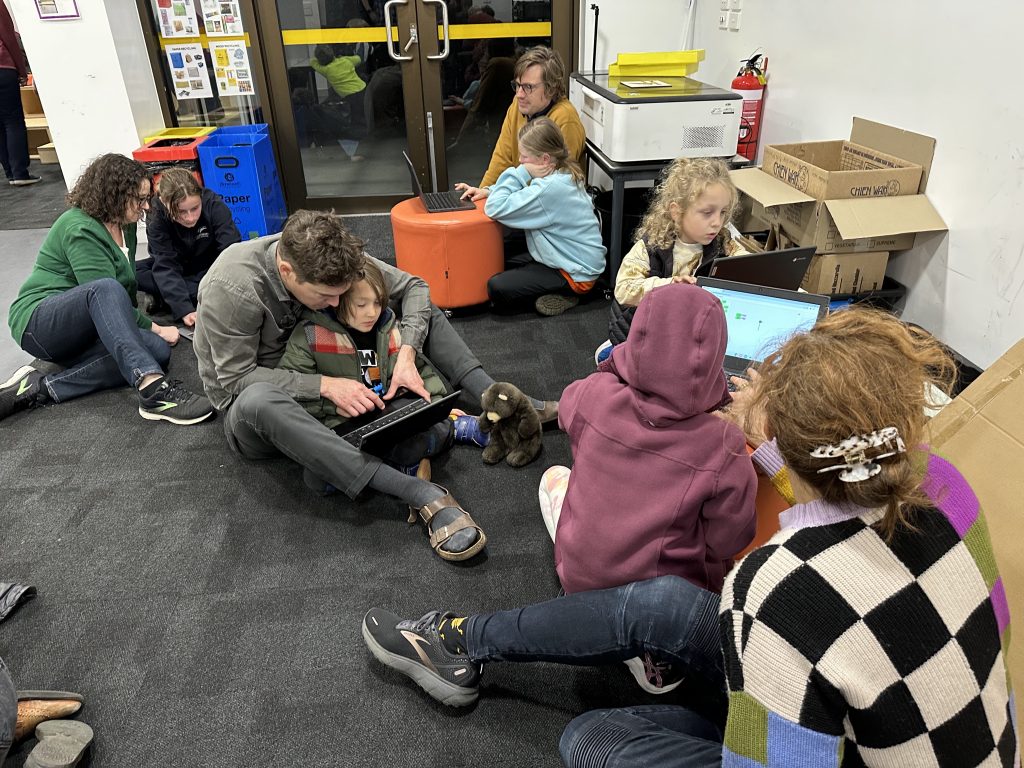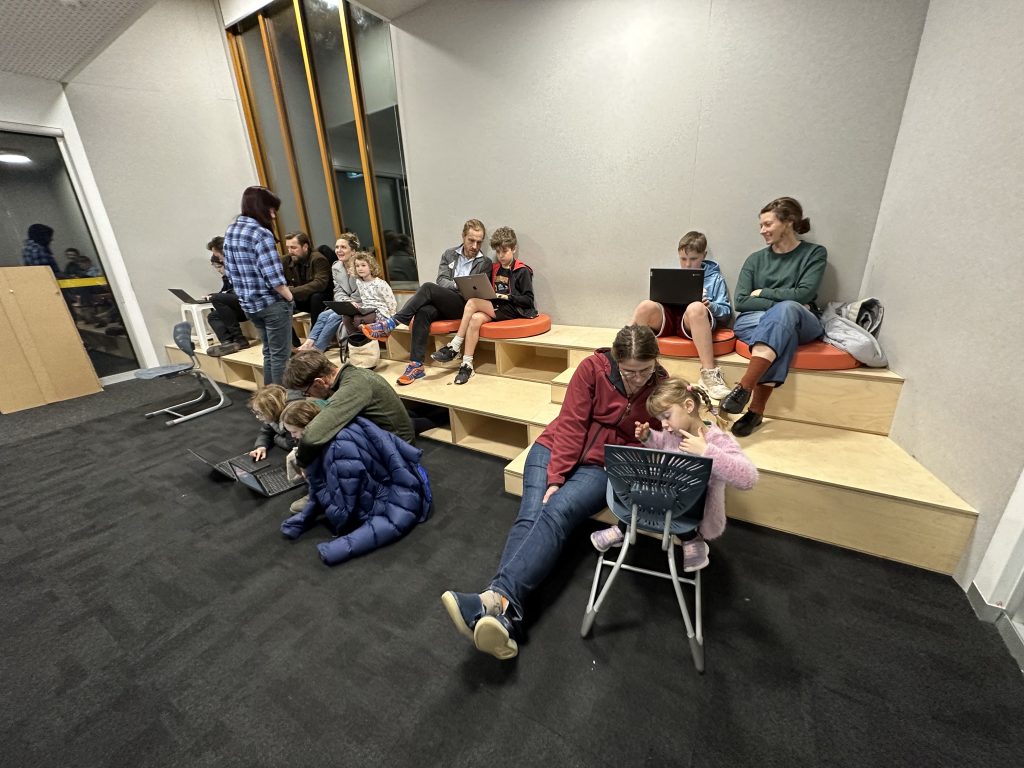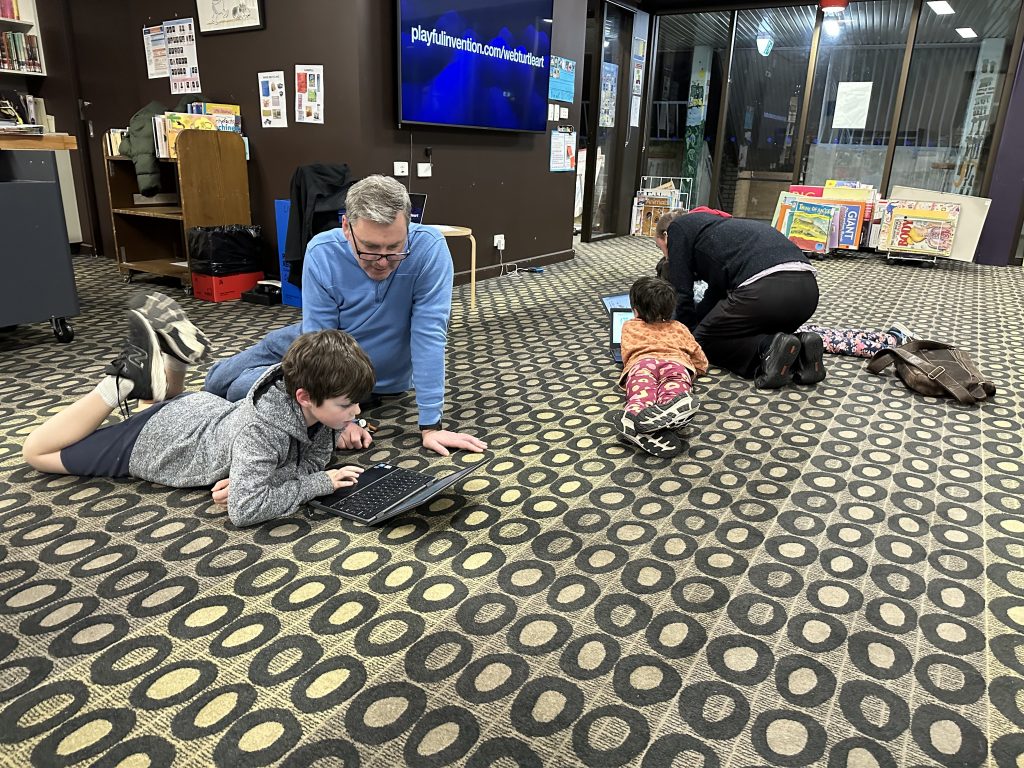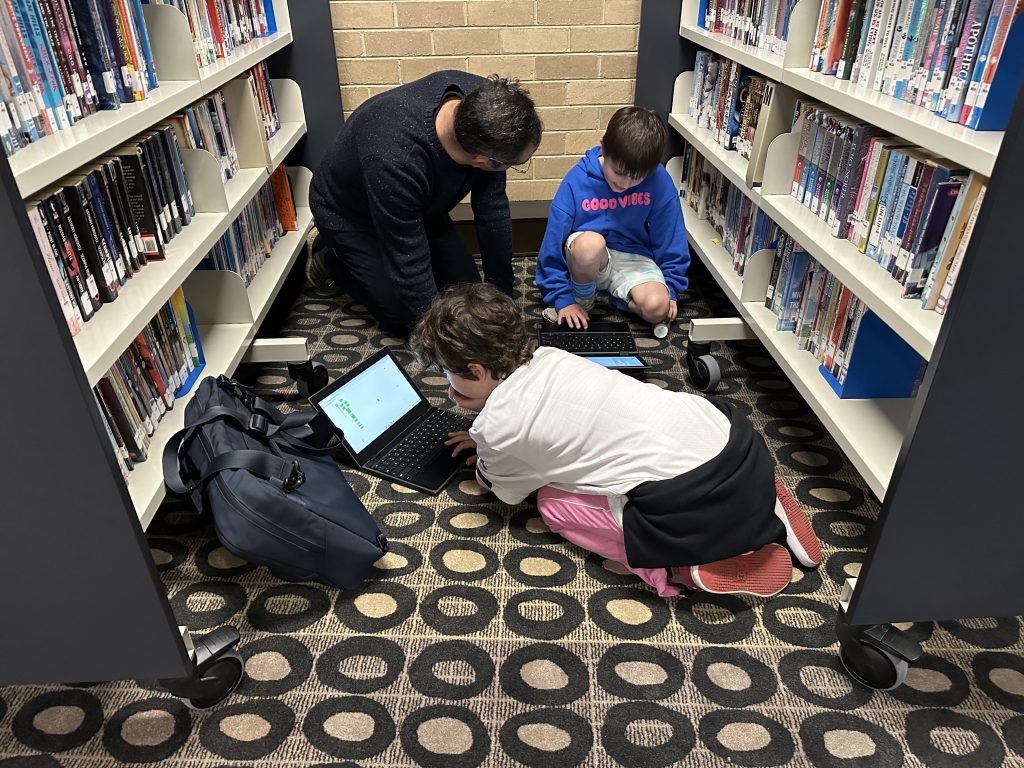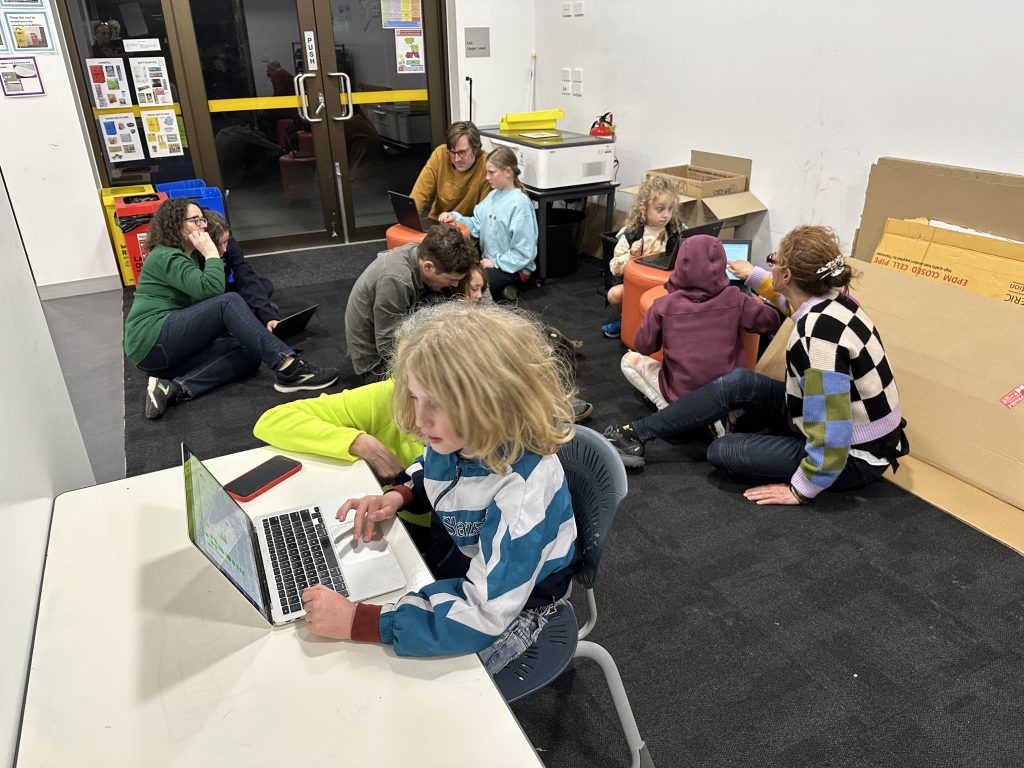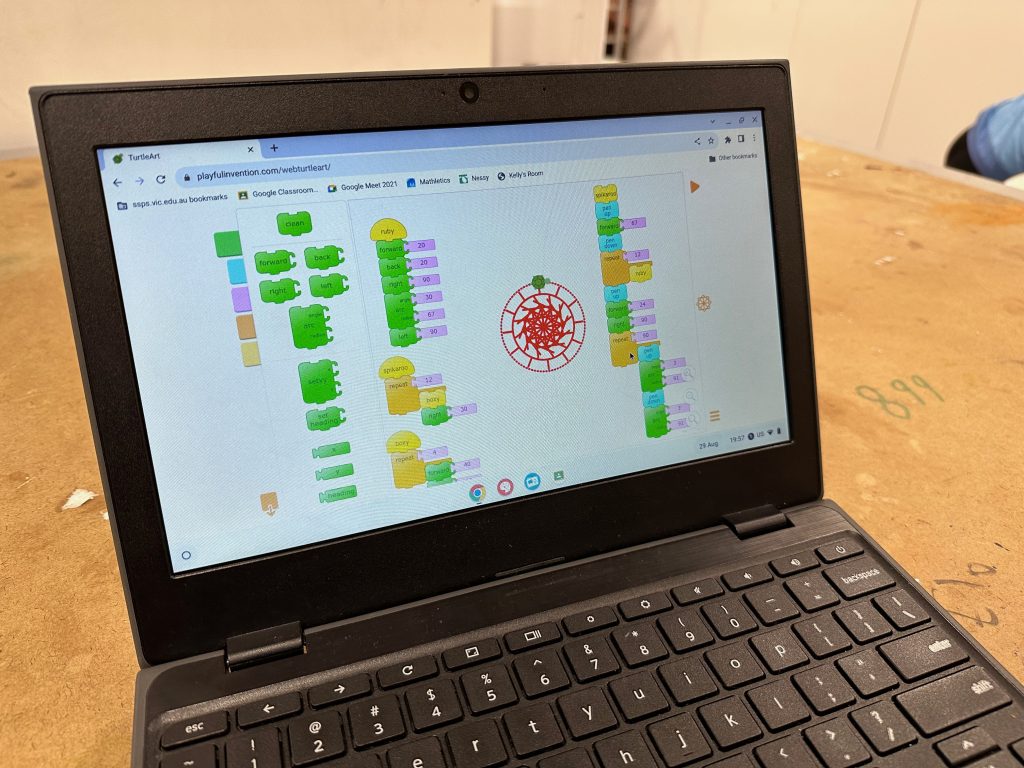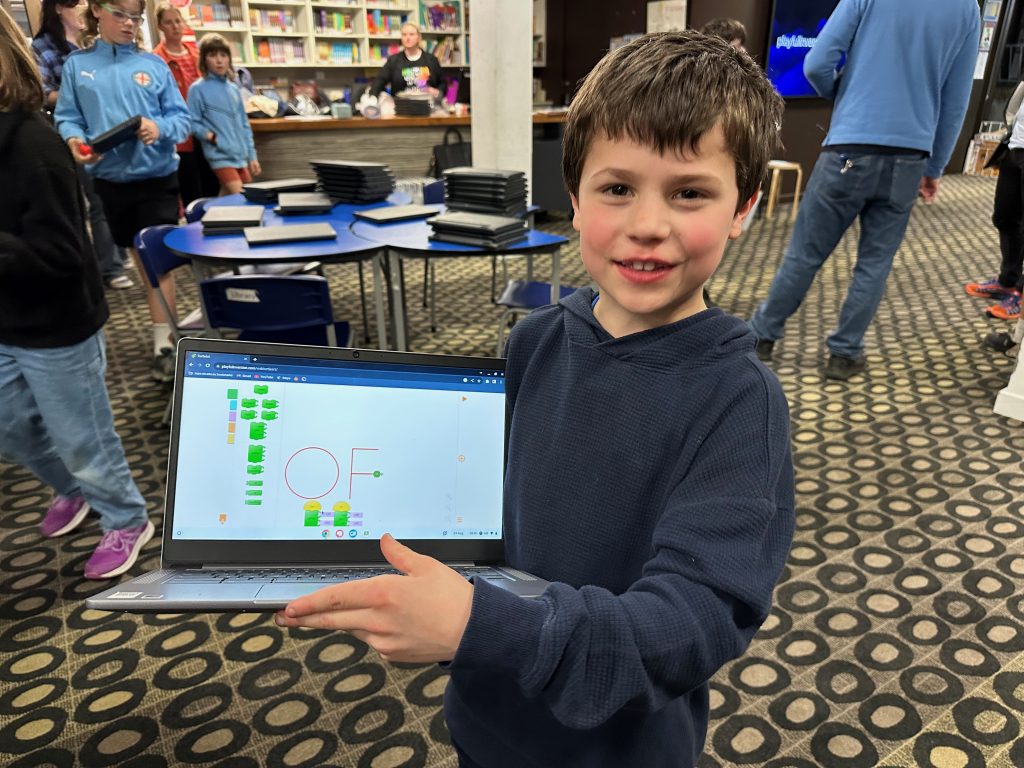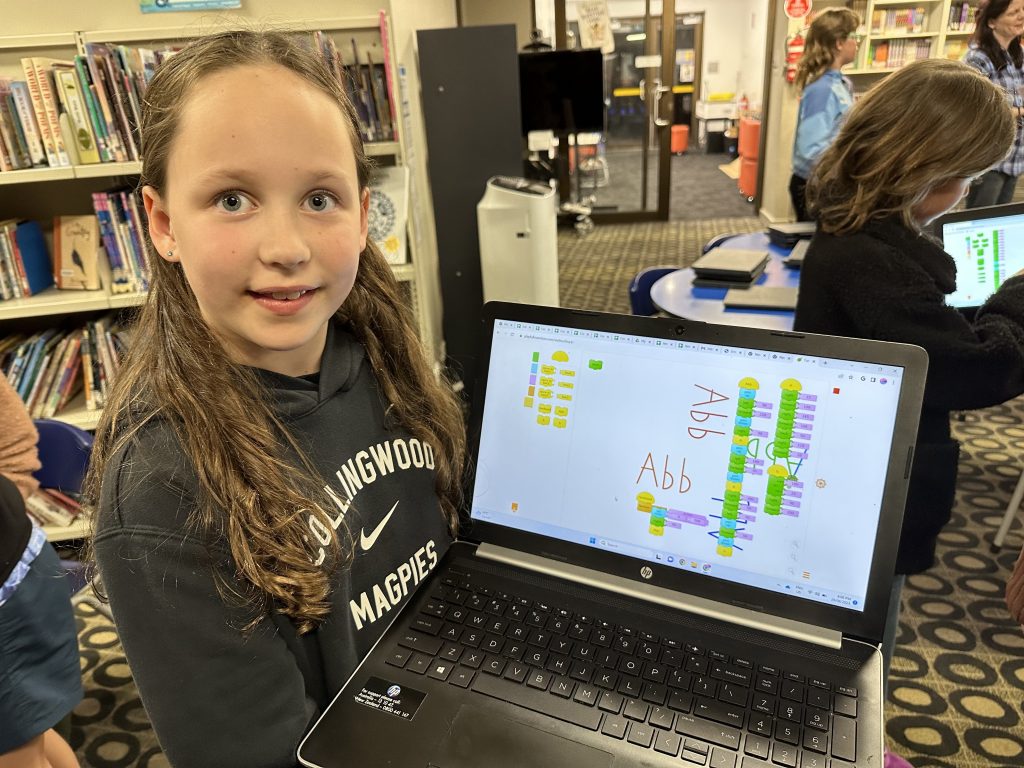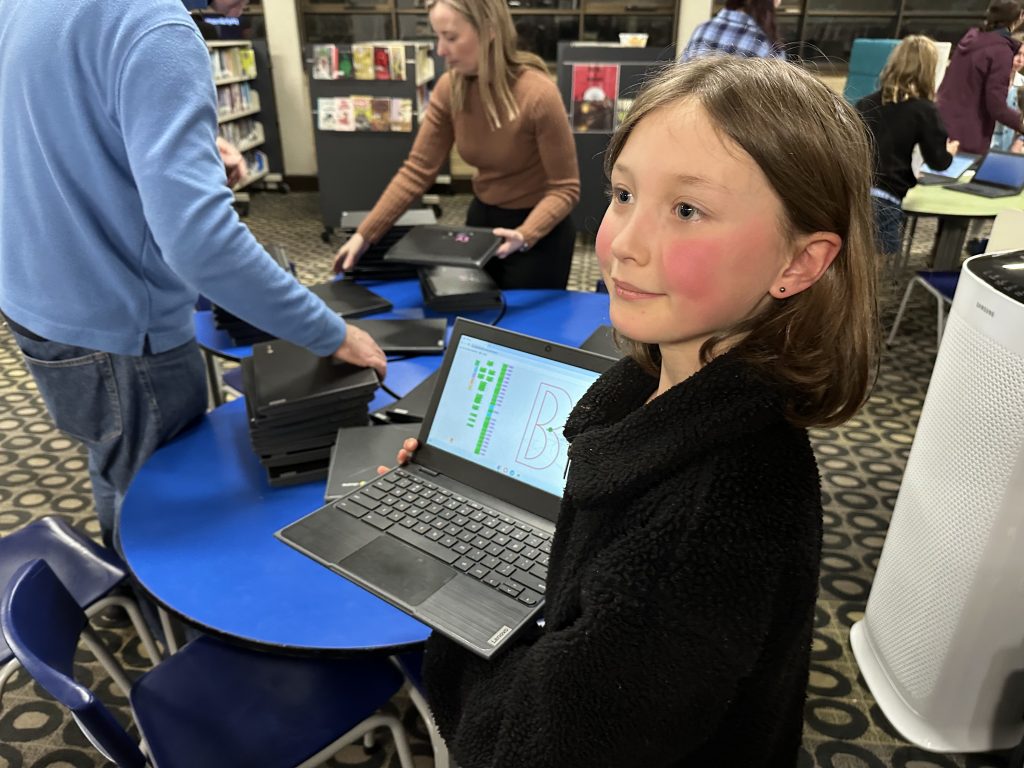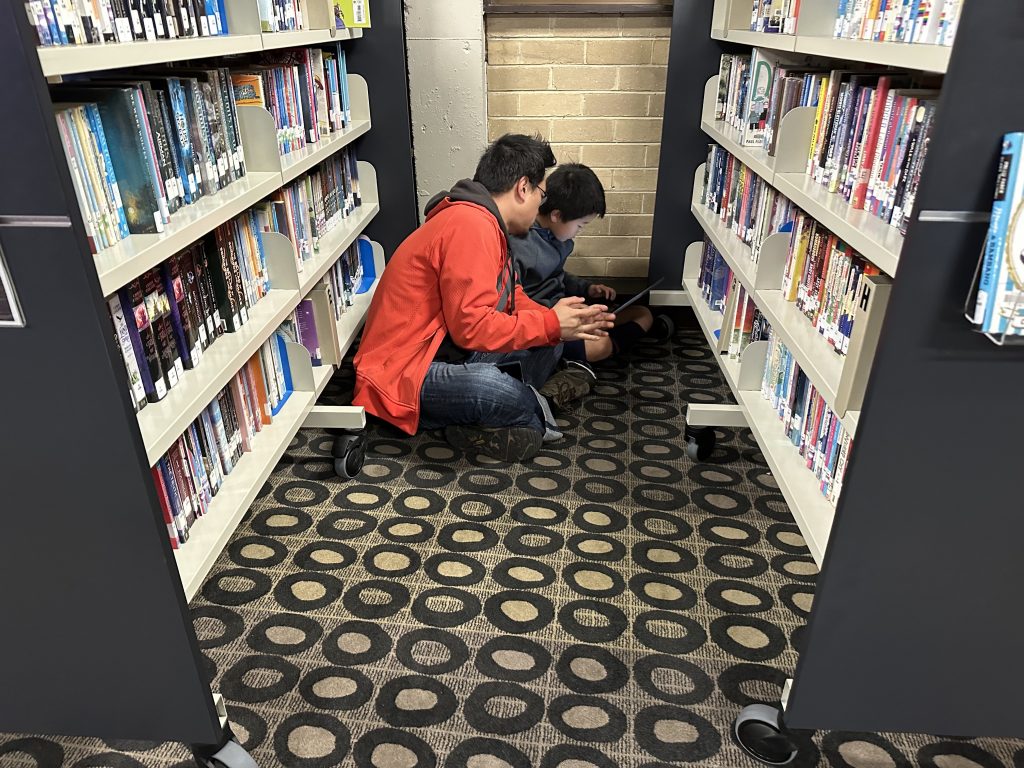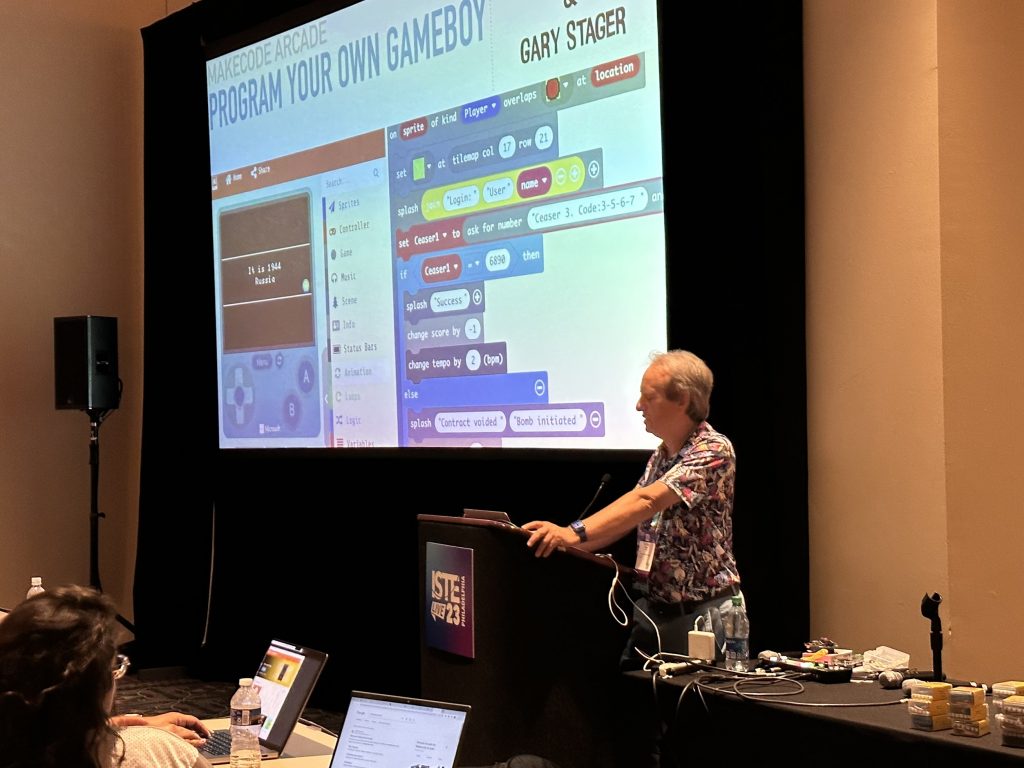
The summer began with the CMK in Philly Day in late June where Sylvia Martinez and I led hands-on workshops on the BBC micro:bit, Hummingbird Bit Robotics Kit, and AI programming. One hundred educators participated, and we raised $500 for my favorite charity, Jazz House Kids. I also co-presented a session with Steve Dembo about programming your own GameBoy with MakeCode Arcade. I learned a lot from Steve that I am adding to my repertoire.
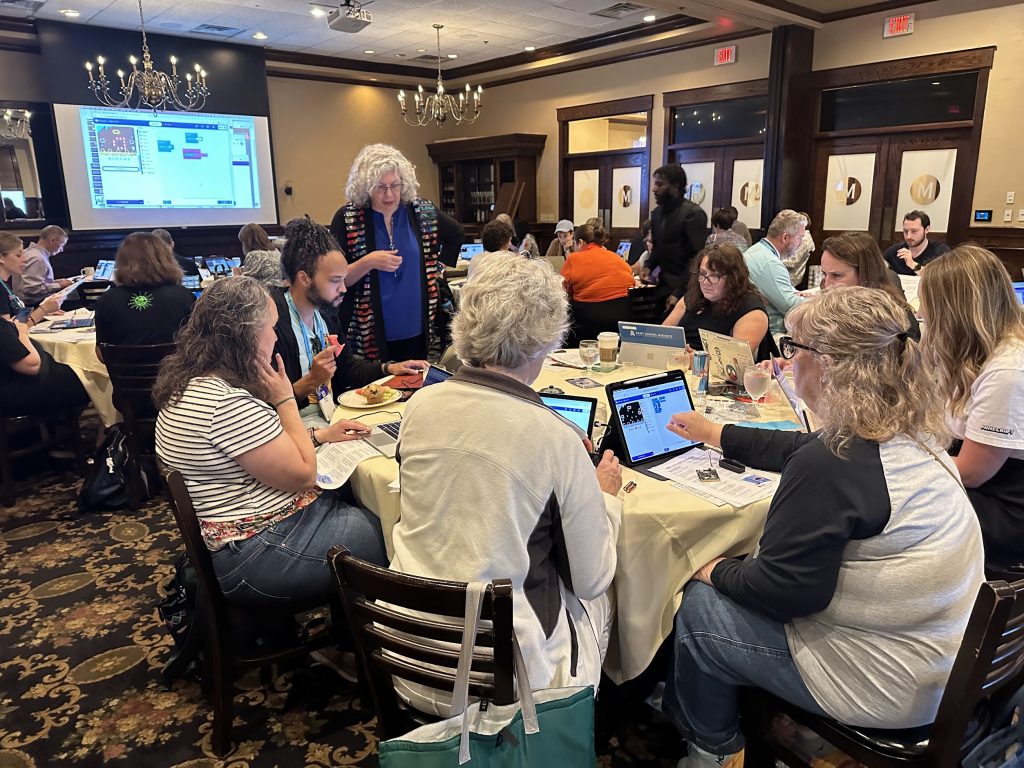
July was time for the 14th Constructing Modern Knowledge summer institute, finally back in Manchester, NH for the first time since the pandemic. Things could not have run more smoothly. As usual, participant projects were magnificent, and our guest speakers were spectacular. The assembled educators loved interacting with the extraordinary musician, Charlie Rosen; the lead designers of the BBC micro:bit, Gareth Stockdale and Jonny Stockdale; and it was a special thrill to share educational computing pioneers, Dan Watt, Molly Watt, and Cynthia Solomon with CMK participants. Coaxing John Stetson out of CMK retirement was fantastic, our colleagues from Reggio Emilia made great contributions, and the fireside chat with Professor Howard Gardner was one for the ages. Veteran CMK faculty member Josh Burker captured this year’s activities in this blog post.
Once the last boxes arrived home from CMK 2023, it was time to depart for Australia where I spent three weeks. Australia has been a second home since I led professional development in the world’s first two 1:1 “laptop” schools back in 1990. This was my first trip back since 2019 and it was action-packed. I am grateful to my colleagues, friends – old and new – who kept me on my toes and contributed to such a memorable set of learning adventures.
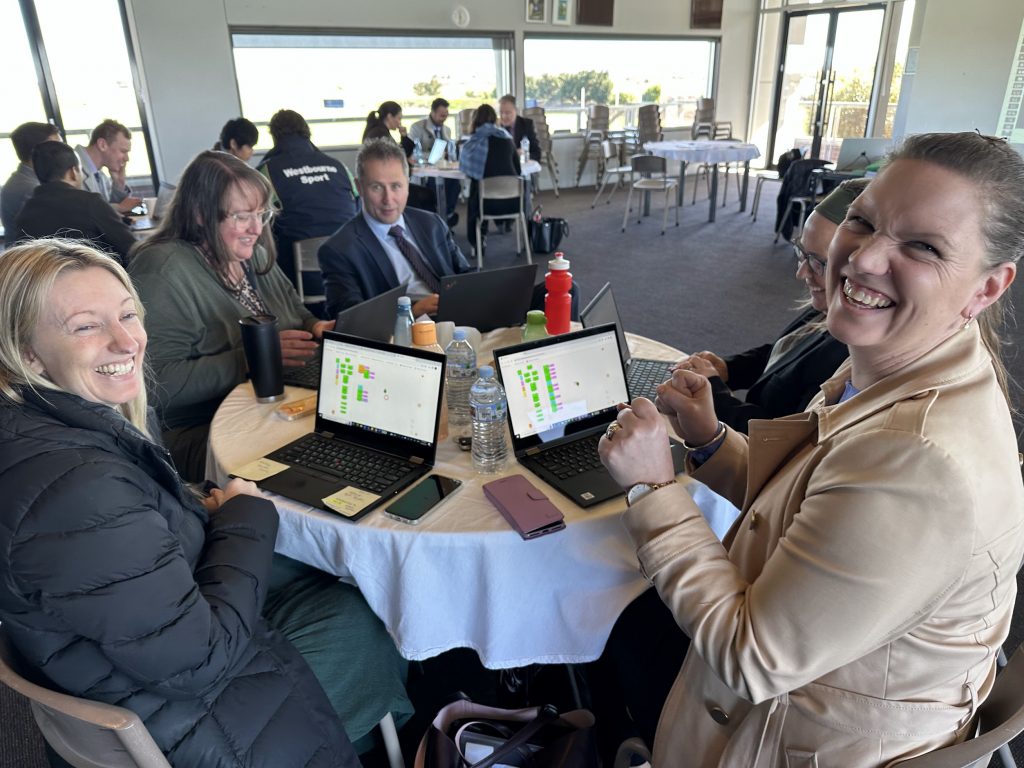
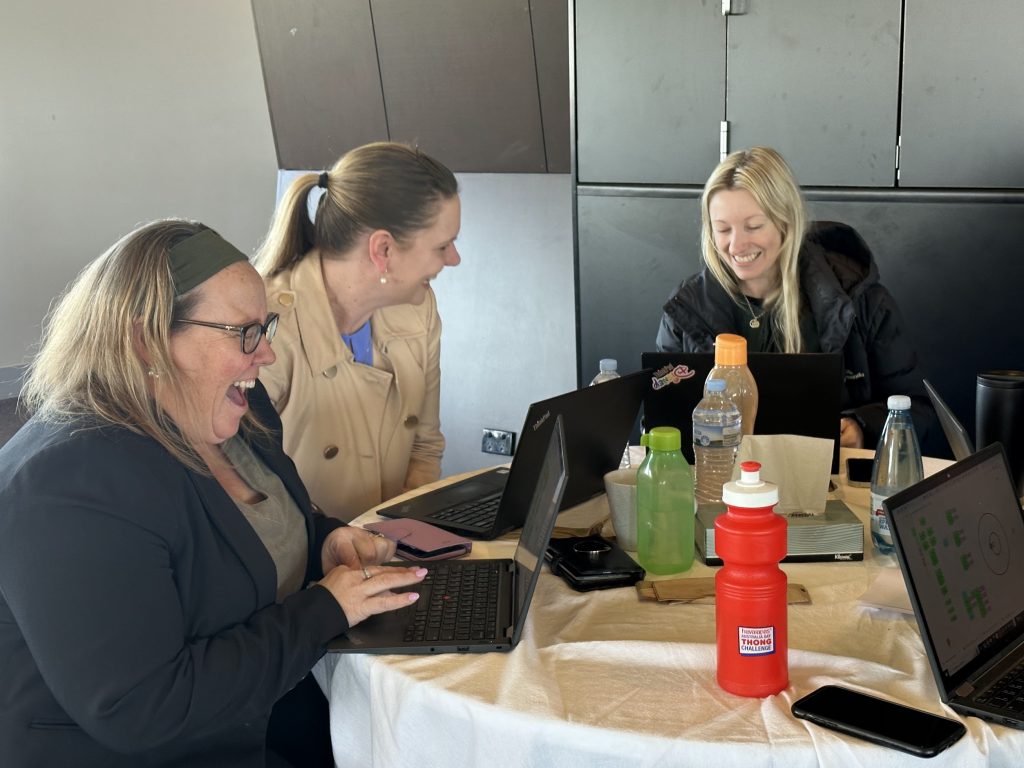
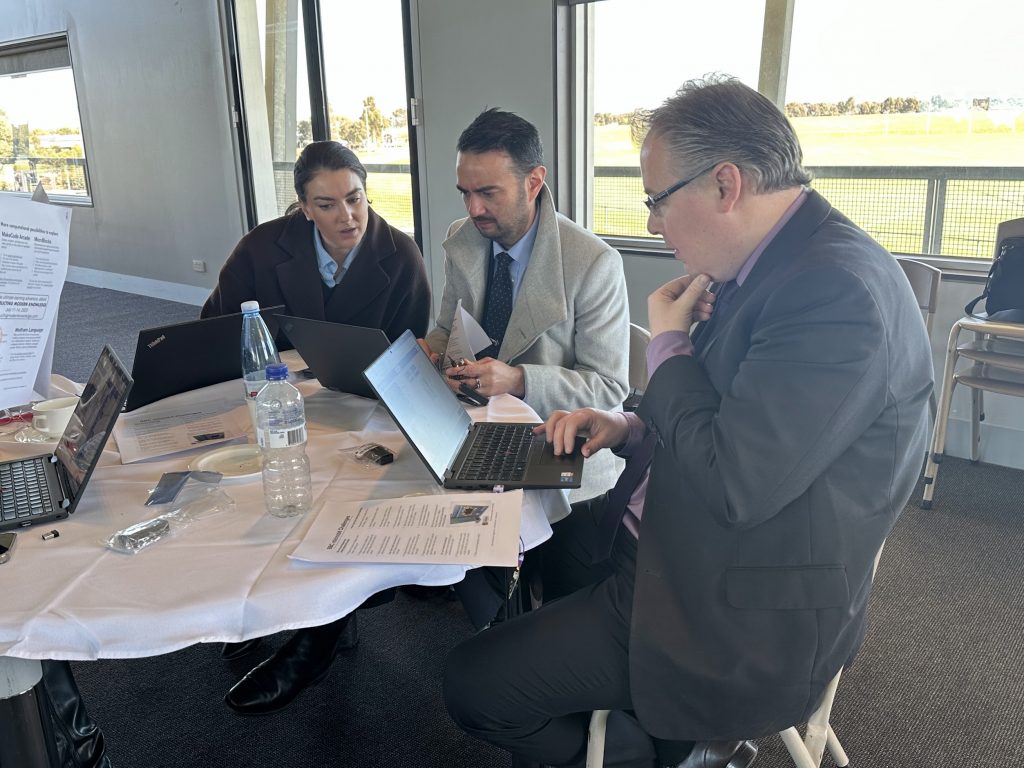
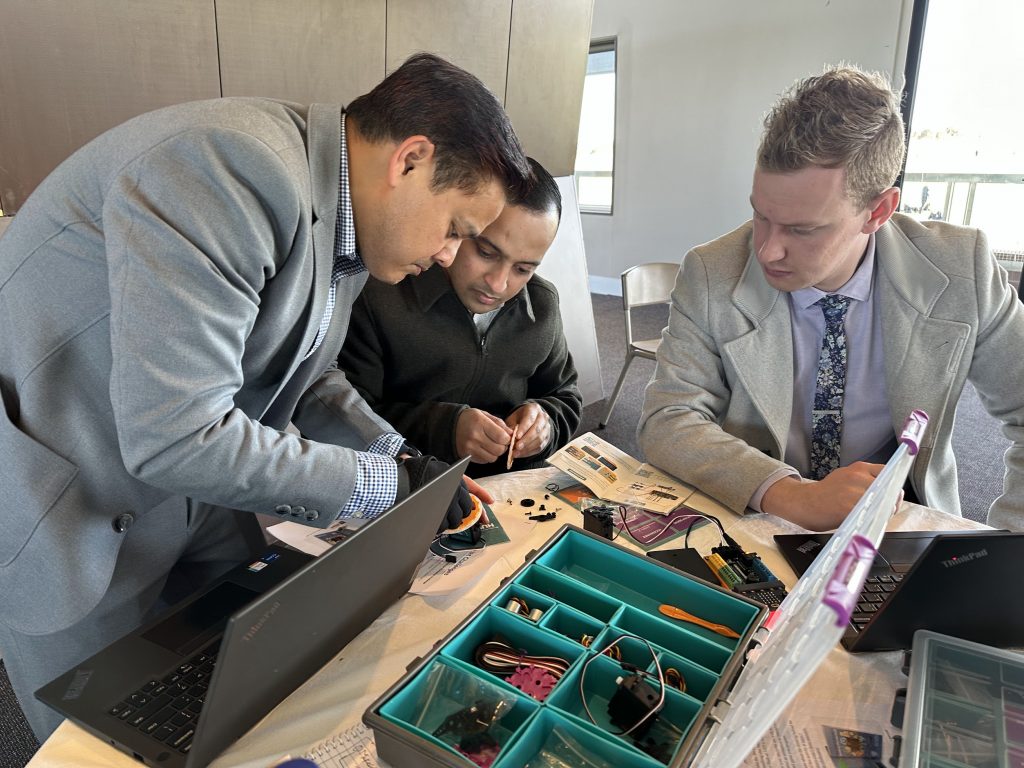
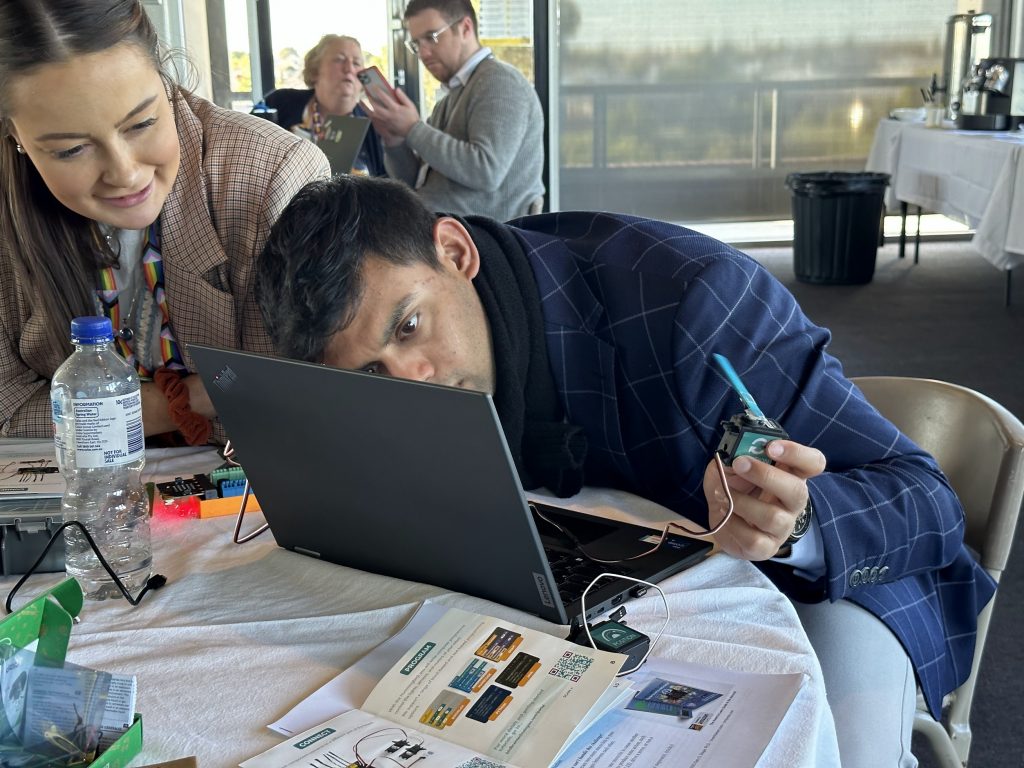
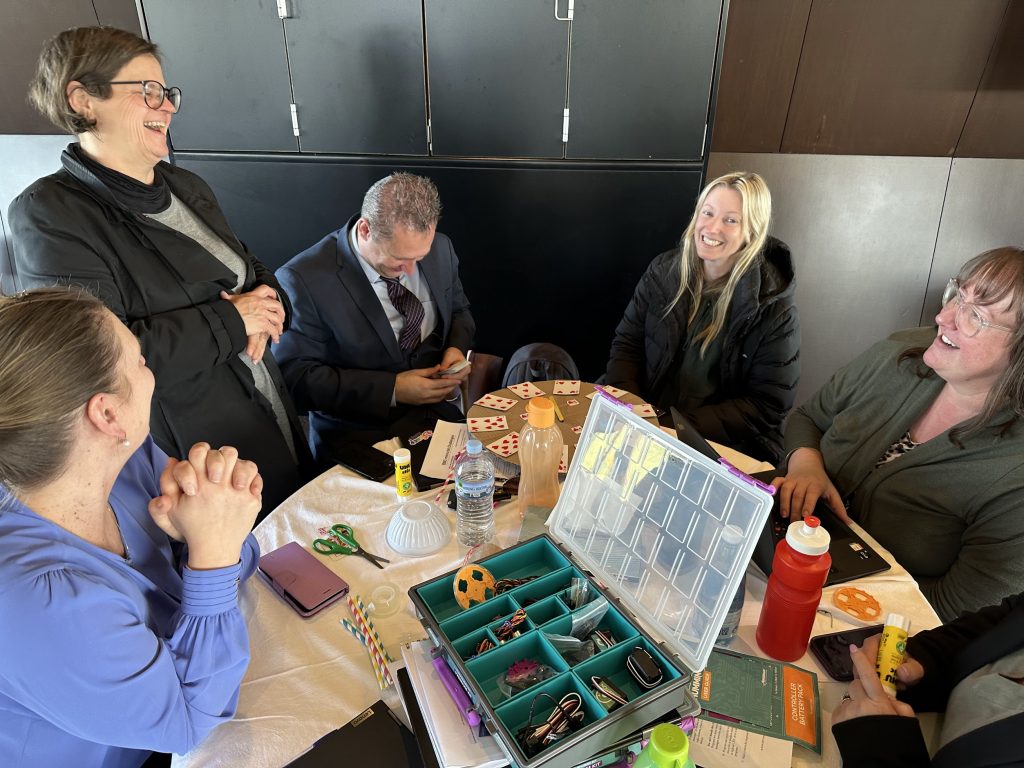
First up, I led a full-day professional development session for the leadership team and teachers at Westbourne Grammar School. The focus was on project-based learning and reinventing education. The joy with which the participating educators approached the creative and computationally-rich activities left me holding back tears. I look forward to working with Principal Adrian Camm and his community more in the future.
I then led an evening public lecture, “An Evening with Gary Stager,” for an organization called SchoolED in Melbourne. The highlight of that event was meeting optimistic young educators creating a school for severely at-risk students. This chance encounter was an opportunity for me to share some of the lessons I learned creating a multi-age, high-tech, project-based, alternative learning environment inside Maine’s troubled prison for teens. This project was the subject of my Ph.D. research and when I got to collaborate most closely with Seymour Papert. Following the lecture and reception, I got to spend time with an old friend and the new senior management team of my favorite school in the world at an insanely great pub I now frequent in Melbourne.
Next, it was off to Sydney to lead a family robotics workshop featuring the BBC micro:bit. Several dozen kids and their parents attended on a Sunday afternoon and went home with their own micro:bit Go kit. One young man broke his wrist a few hours earlier and insisted on going straight from the emergency room to my workshop. The first kid to arrive, greeted me by asking, “Is this going to happen next year too?” (I hope so!)
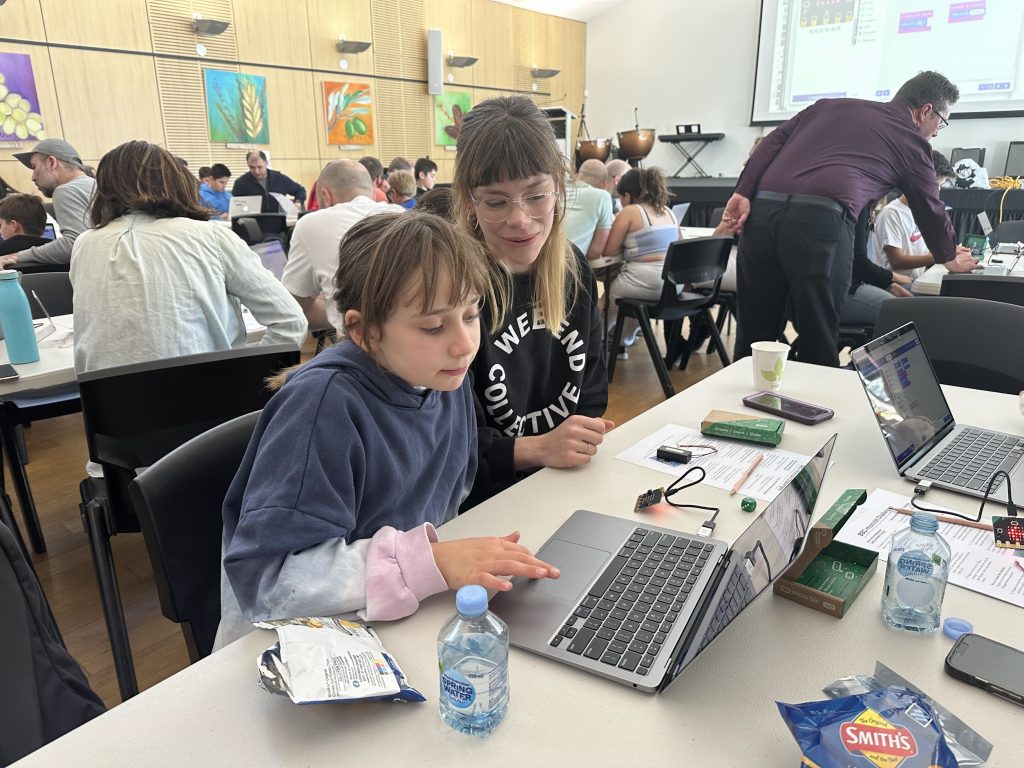
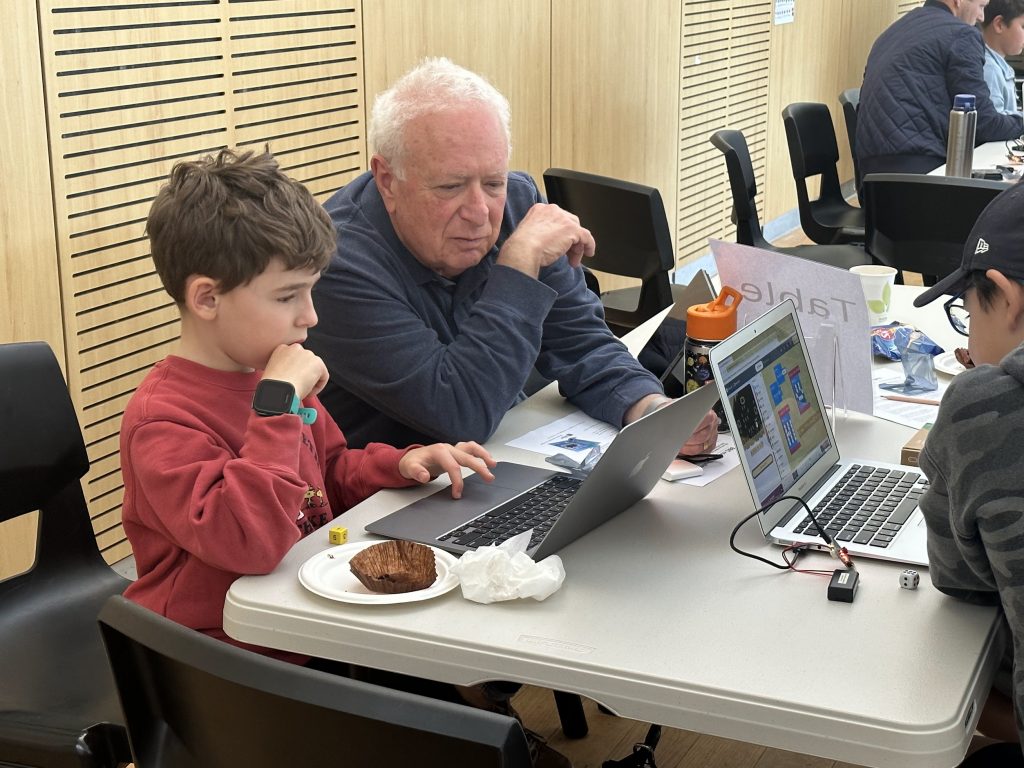
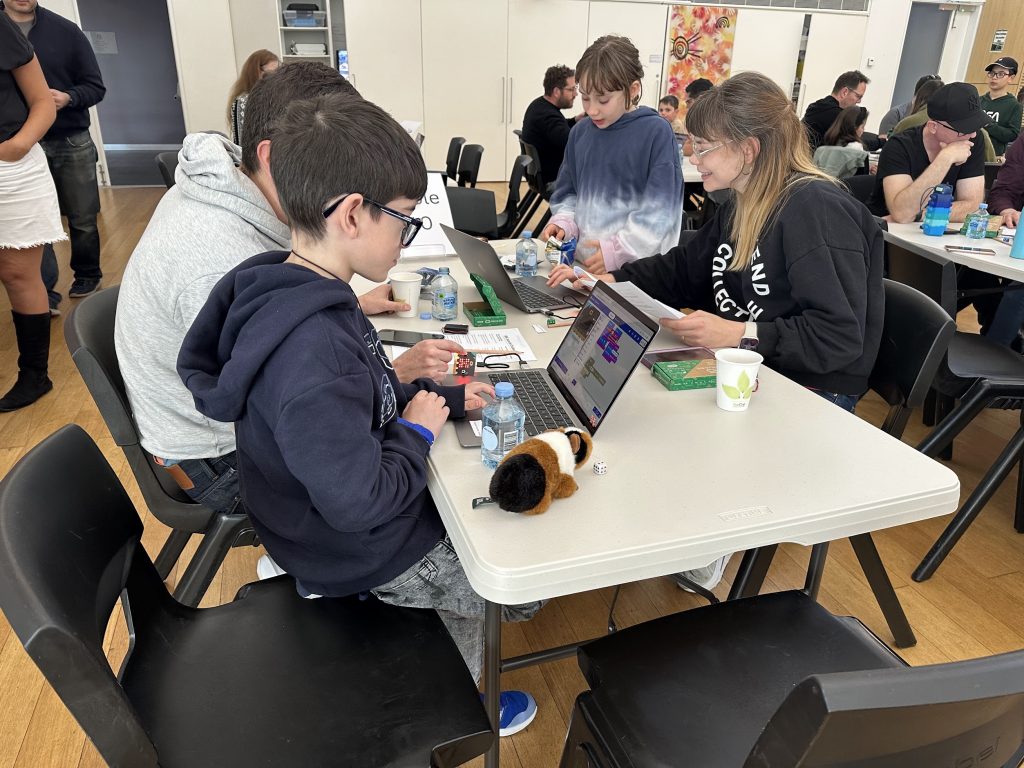
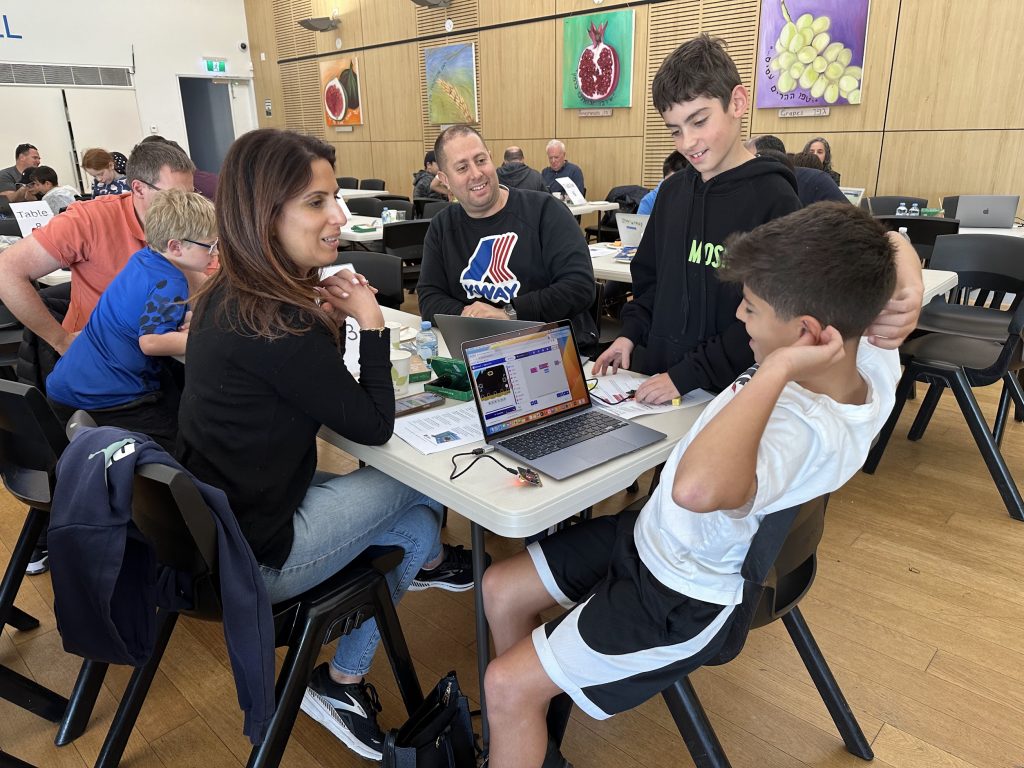
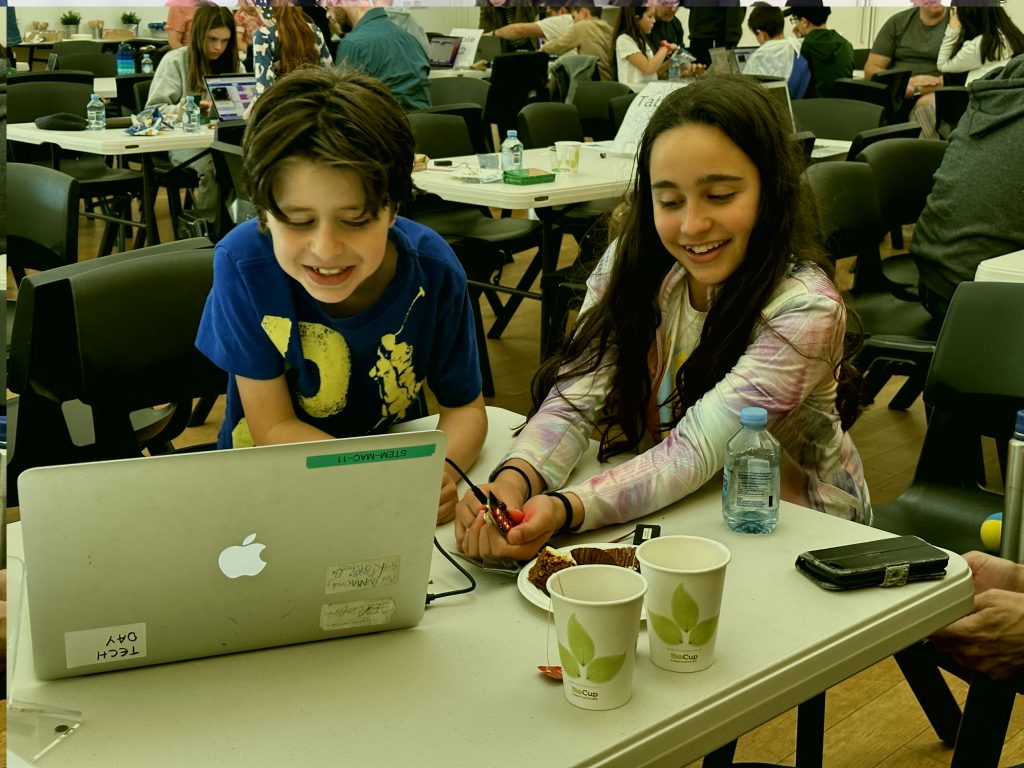
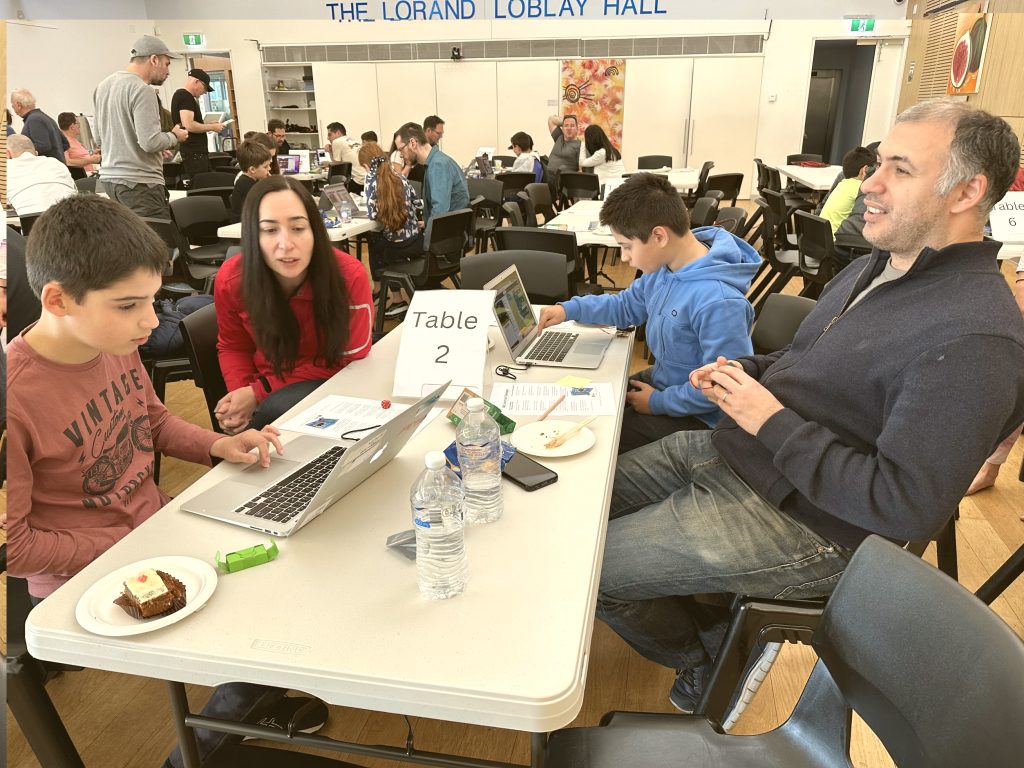
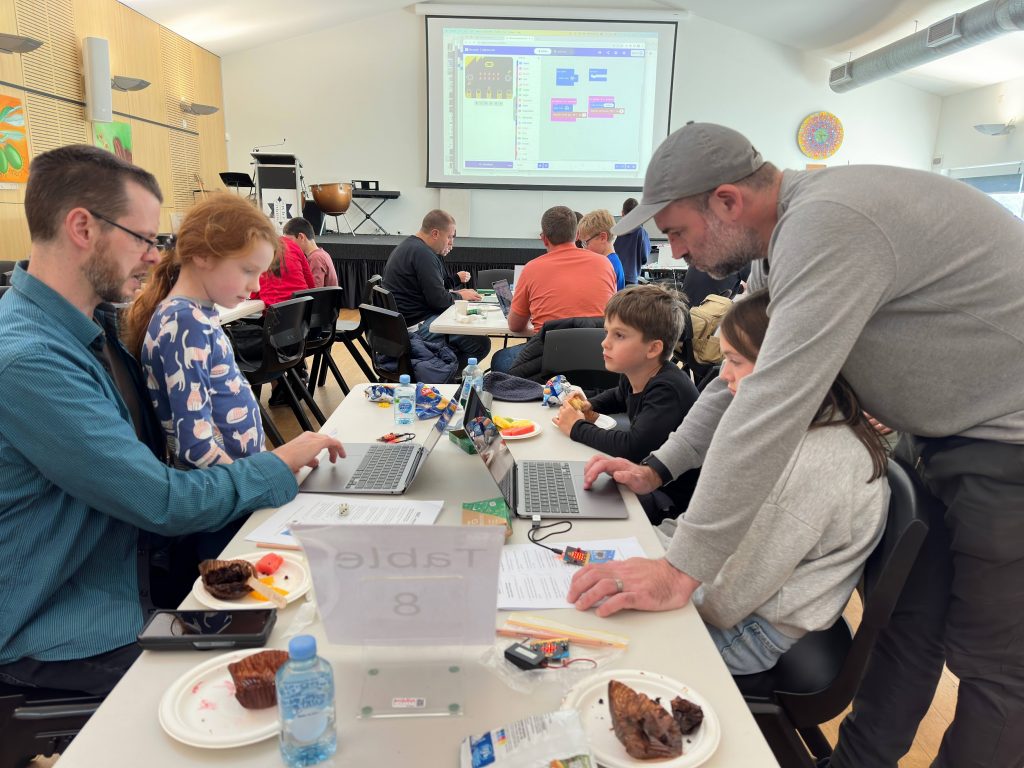
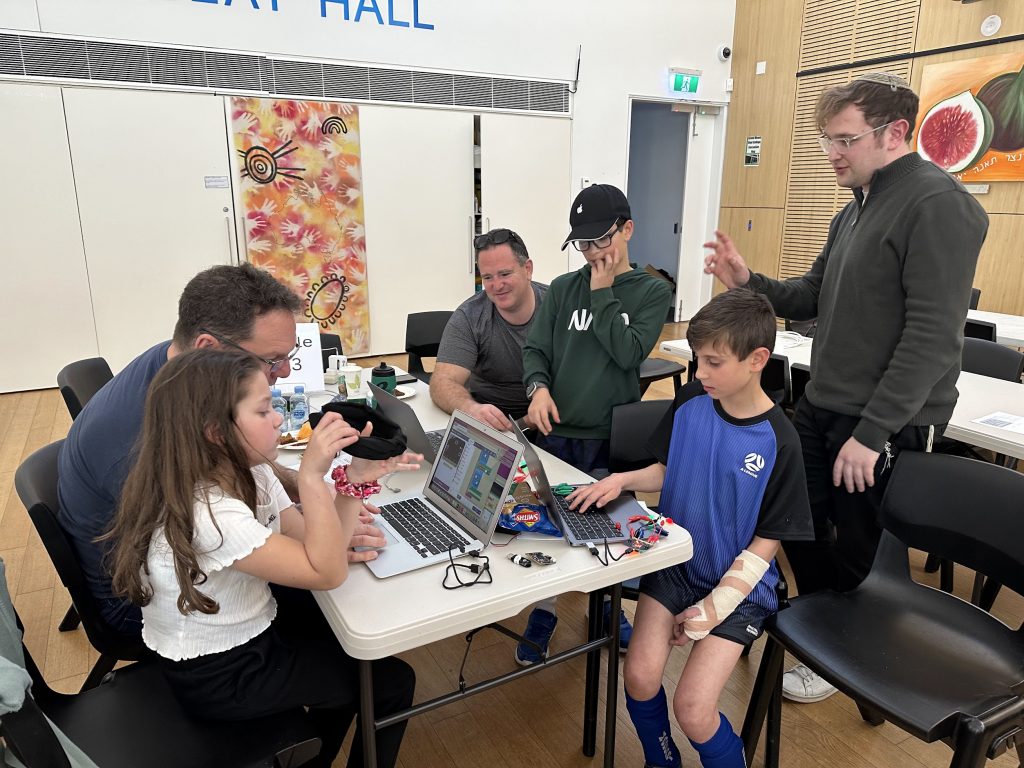
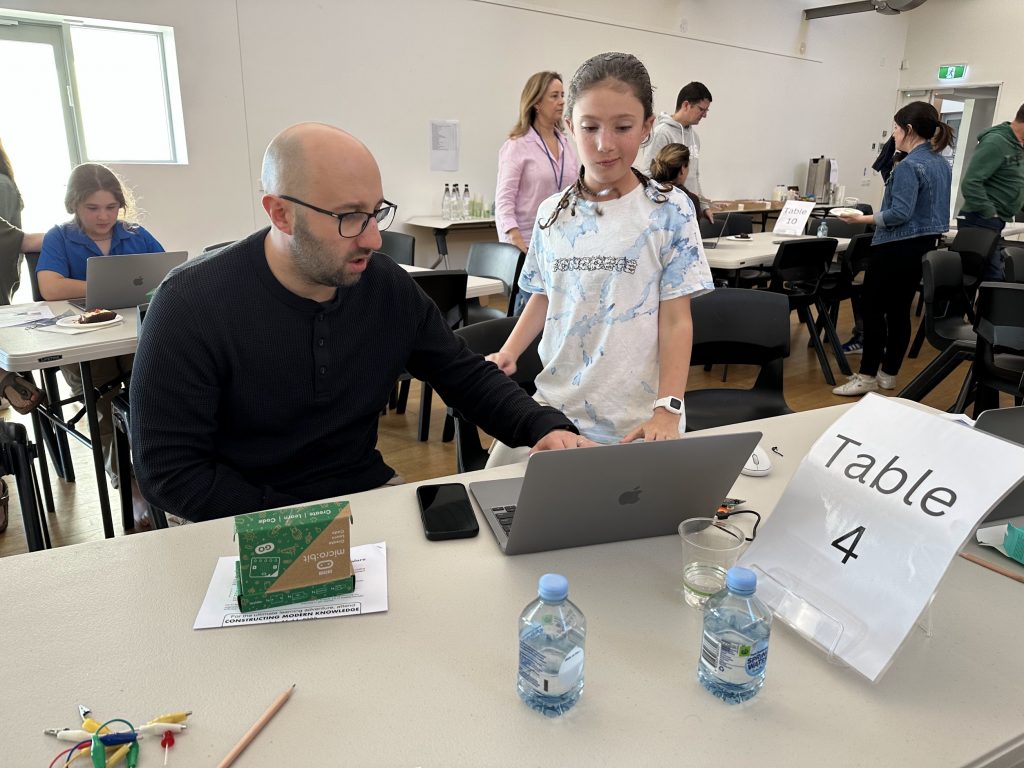
The following day, I led professional development at the school and recruited a couple of the kids I met the day earlier to assist me in leading the workshop for their teachers and administrators. Truth be told, it is my sacred obligation to get kids out of class whenever possible.
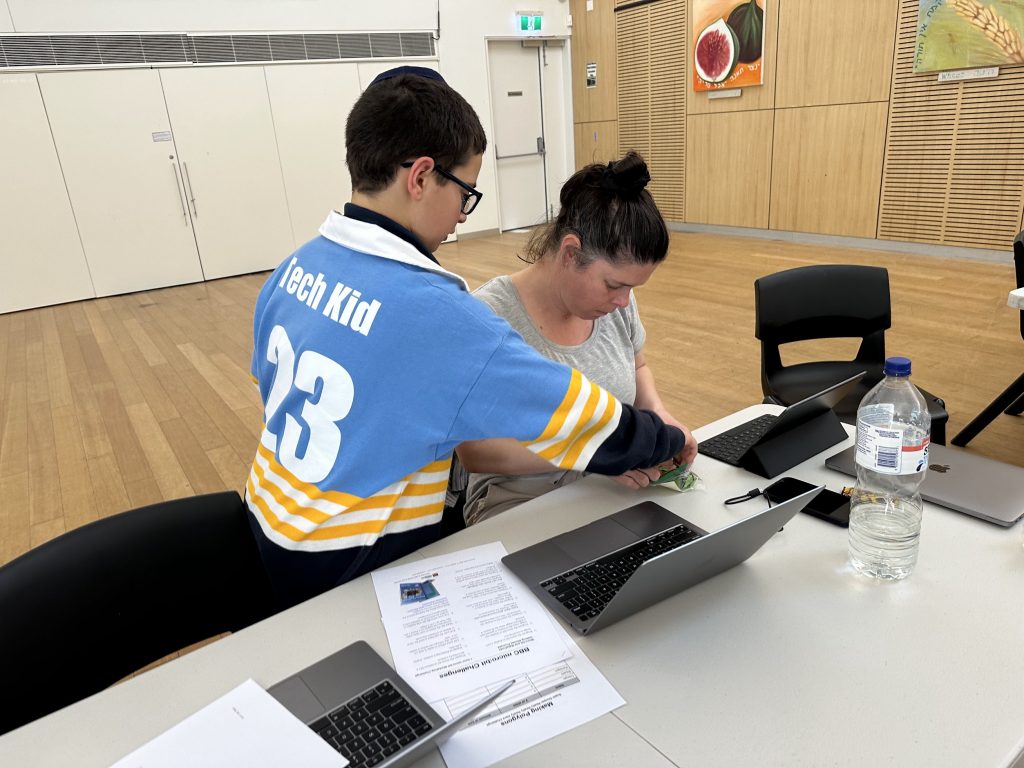
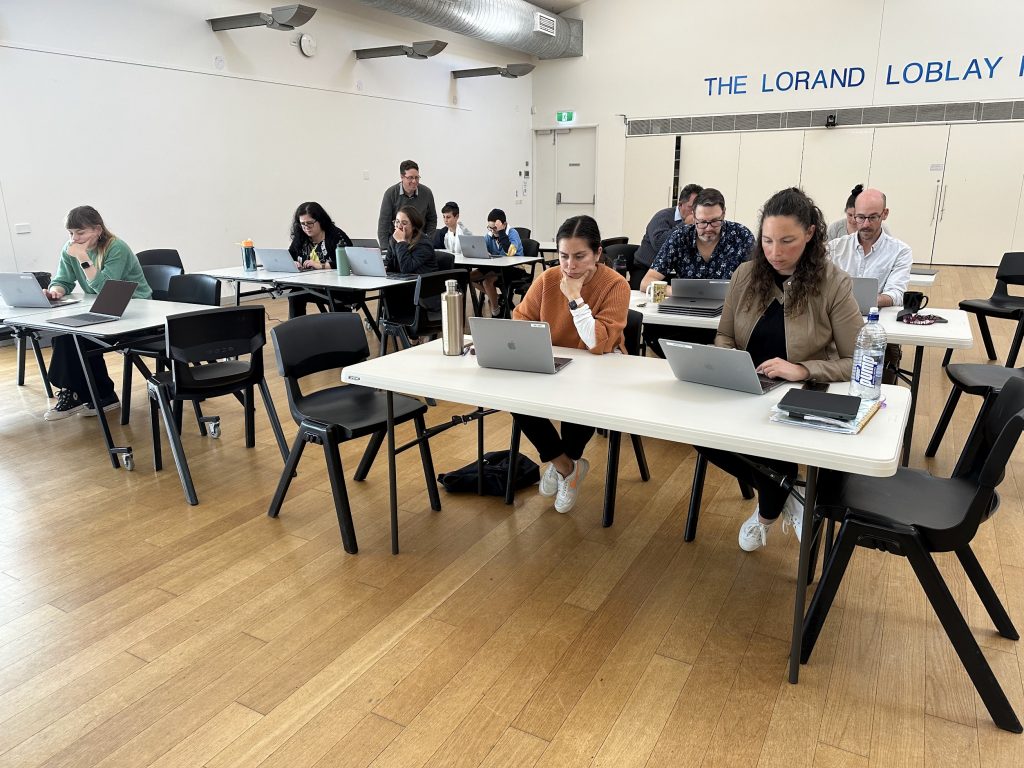
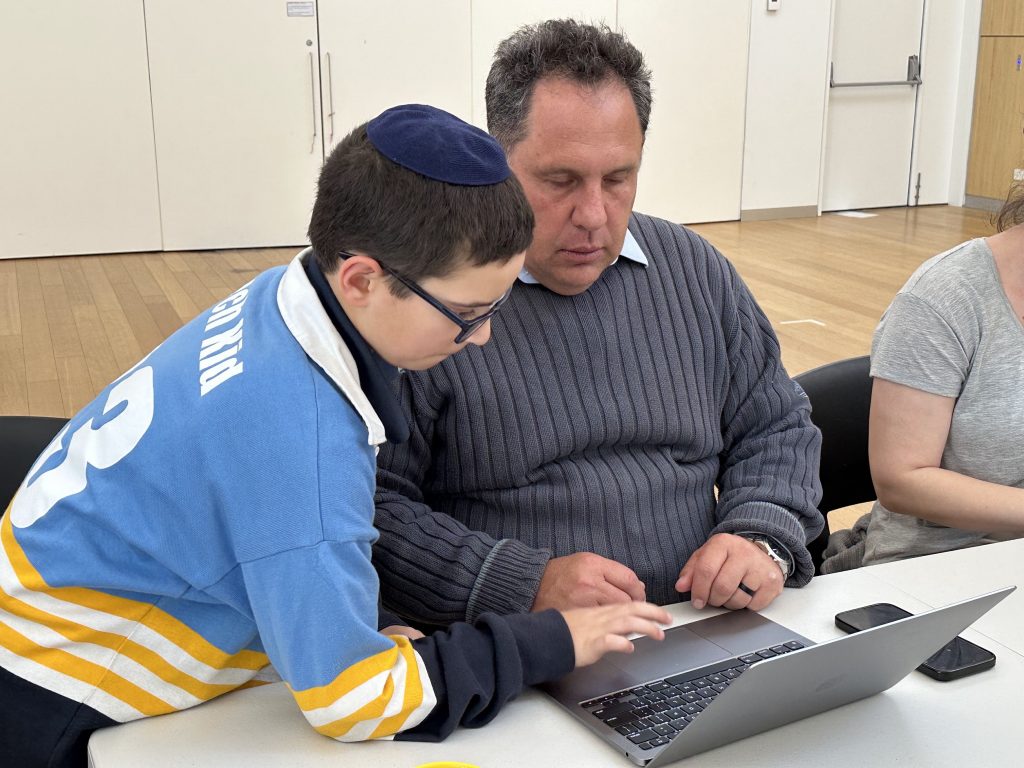
Early the next morning I was back in Melbourne to spend the day at a progressive public school filled with art, play, and joy. I spent a half day teaching 1st and 2nd graders math, computer programming, and problem-solving in Turtle Art and for the first time ever, spent half a day teaching different 1st and 2nd graders physical computing with the BBC micro:bit. I really got to practice my mantra, “Less us, more them,” that day. I finished the day by speaking with the entire faculty.
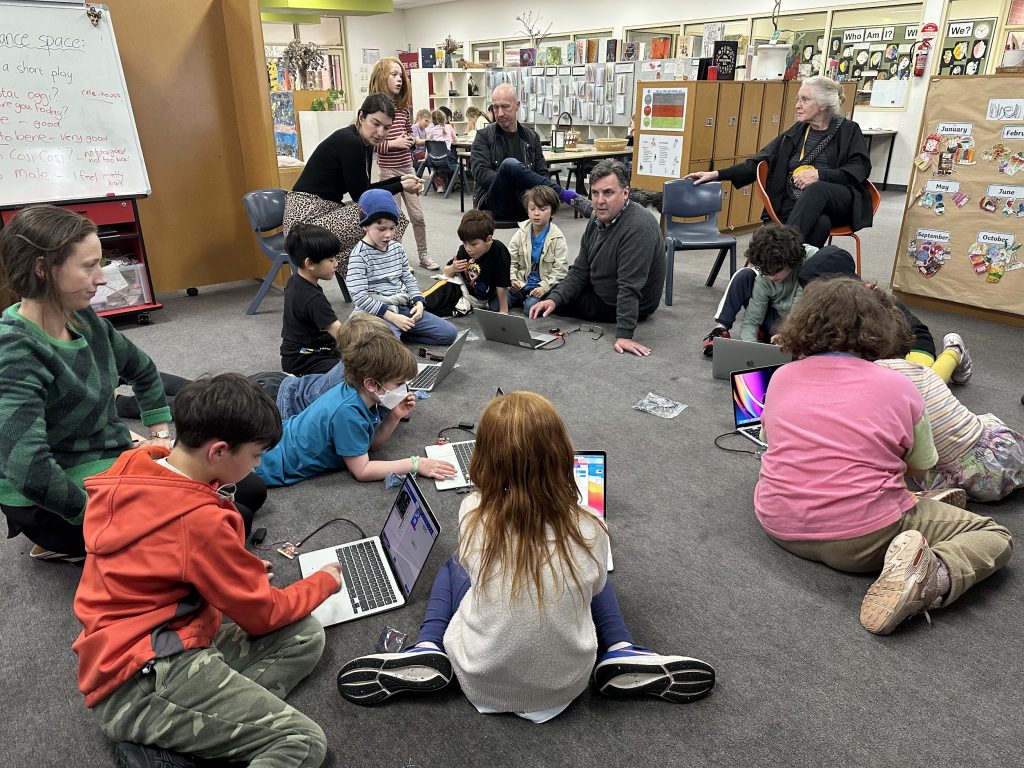
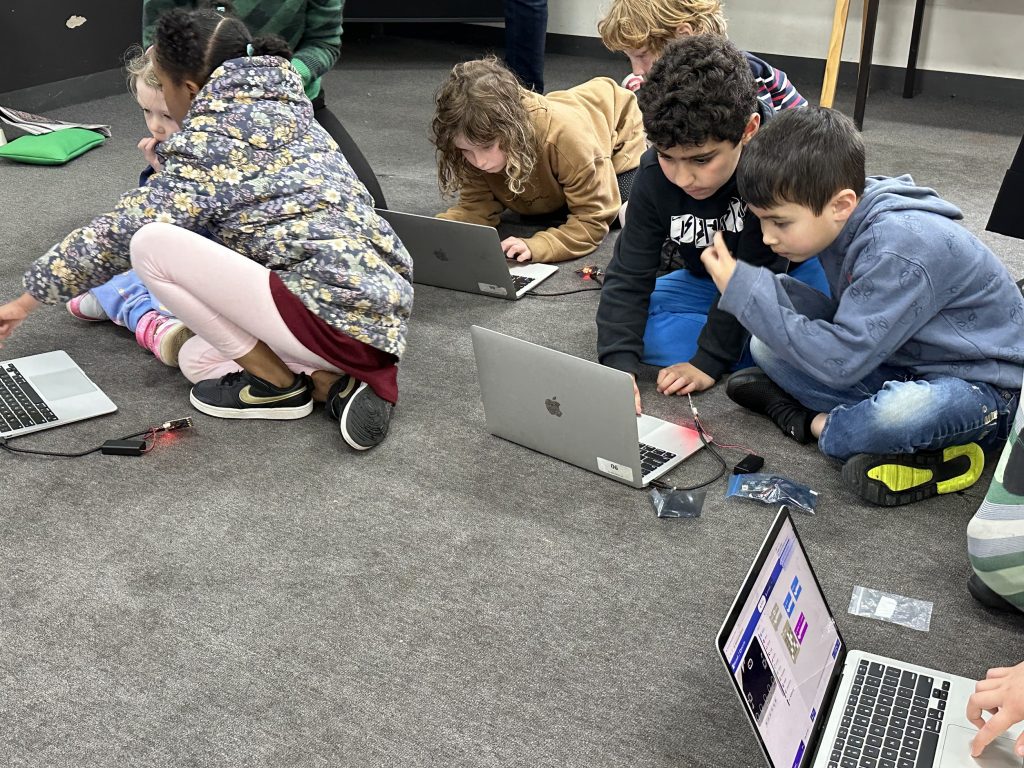
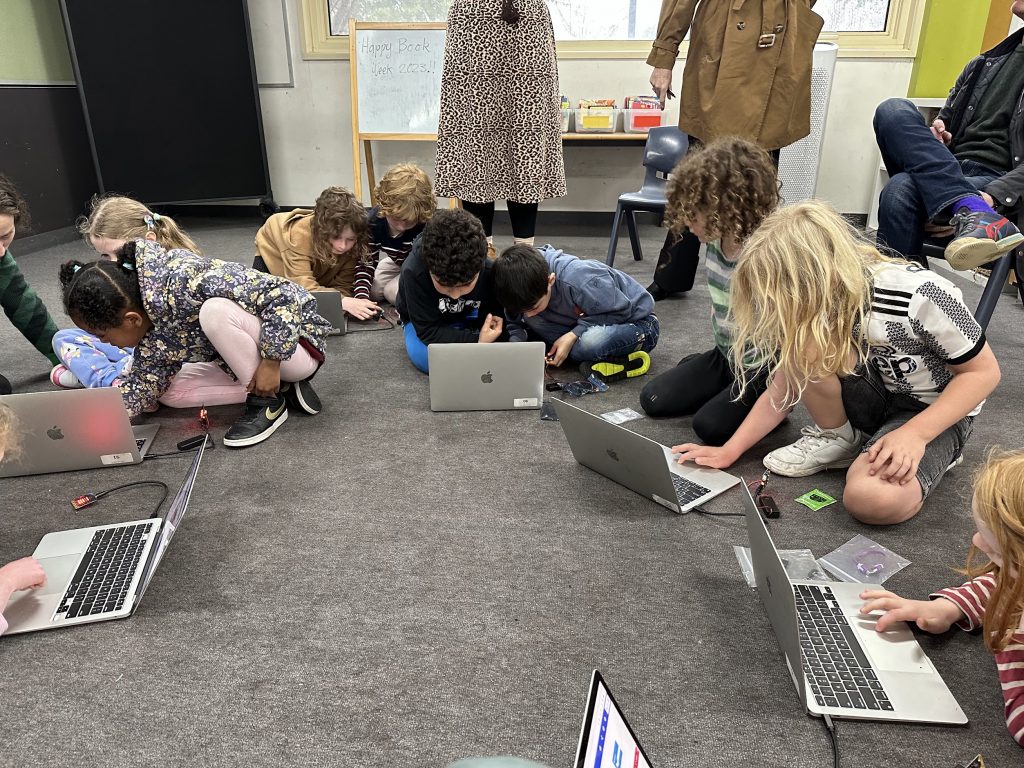
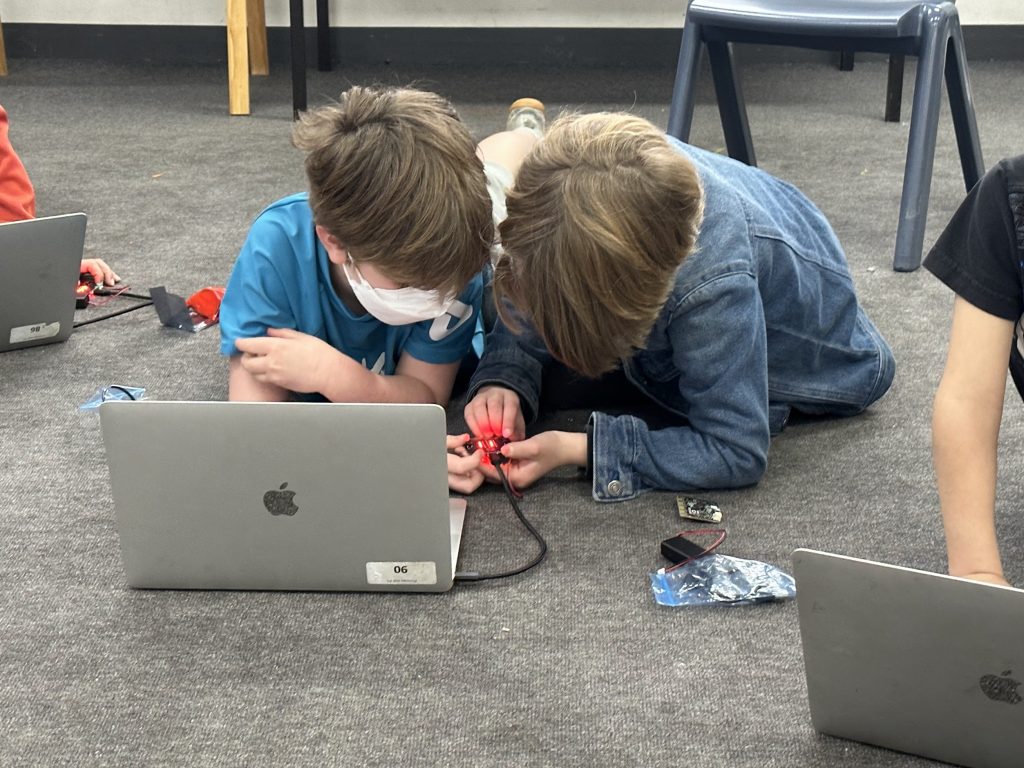
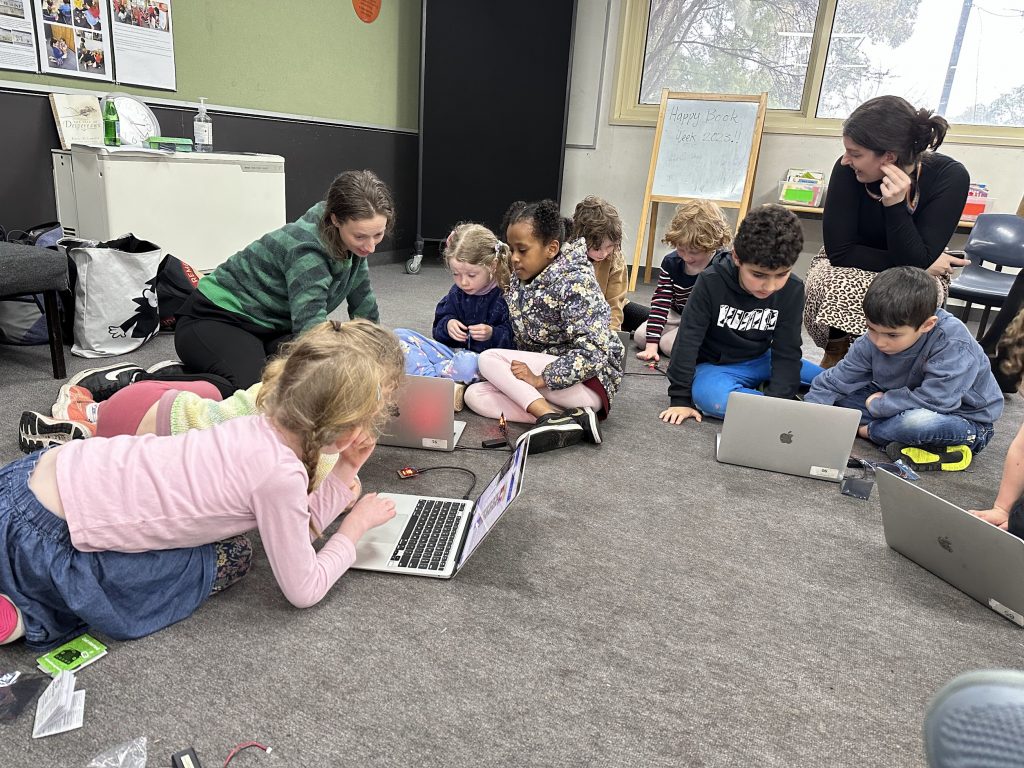
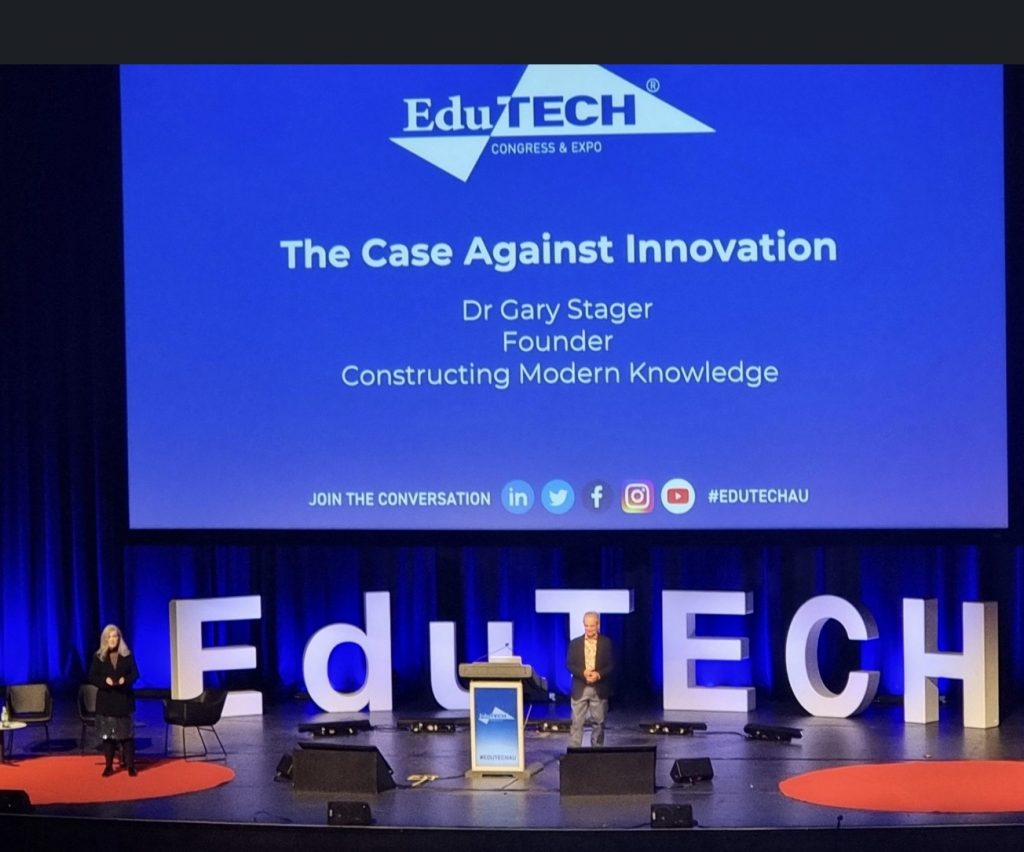
The very next day I led a full-day preconference workshop, “Computational learning adventures – craft, coding, and creativity,” at the EduTECH Conference. It was great to be back at the vibrant EduTECH Conference where I was the first day’s closing keynote speaker and presented “The Case Against Innovation.” The second day at EduTECH, I led a standing-room only presentation, “The Future is Computational – Coding in the Age of AI.” The conference experience was topped-off by a glorious lunch with old friend Geoff Powell, the great Cathy Hunt, and my colleague/hero/friend David Loader. It was great to reminisce with David, arguably the most accomplished principal of the past half century and share with him with my colleagues.
Of course, I went to see the great Kurt Elling and Charlie Hunter’s band, Superblue, with three different groups of friends over four nights, plus a concert performance by Wynton Marsalis with the Jazz at Lincoln Center Orchestra and the Melbourne Symphony Orchestra. In between I took my musician friends for lunch in the kitchen of the legendary Pellegrini’s and then to the footy at the Melbourne Cricket Ground.
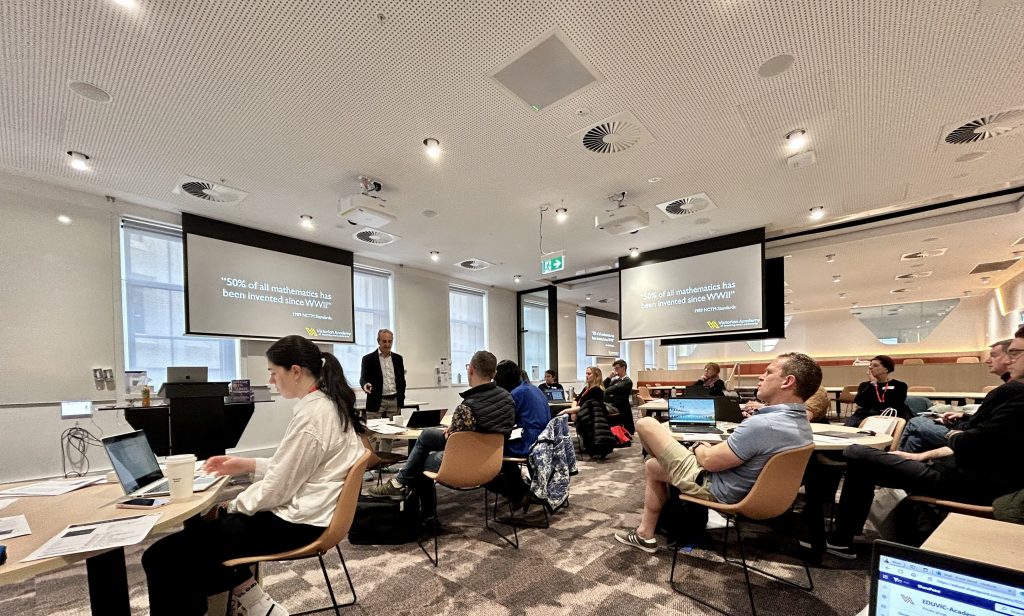
My final four days was spent working with the Victoria Academy for Teaching and Leadership. On Monday and Tuesday, I led full-day hands-on “Electrifying Children’s Mathematics” workshops on computational fluency, project-based learning, numeracy, and computer science to help launch the state’s new mathematics curriculum in Melbourne and Ballarat.
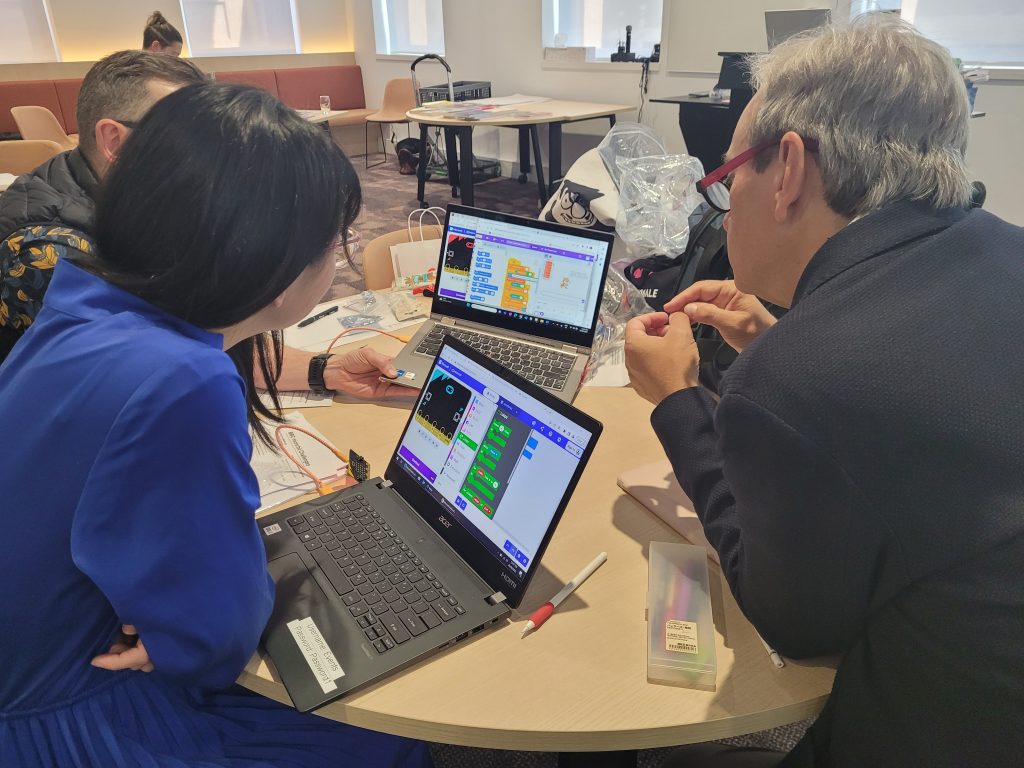
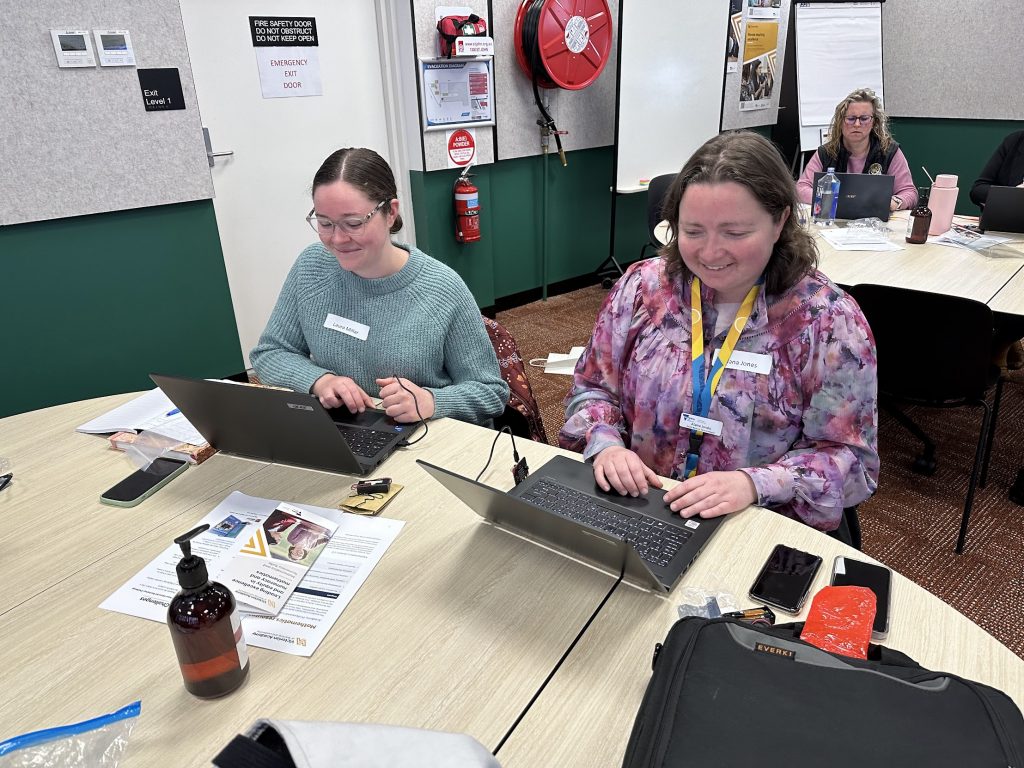
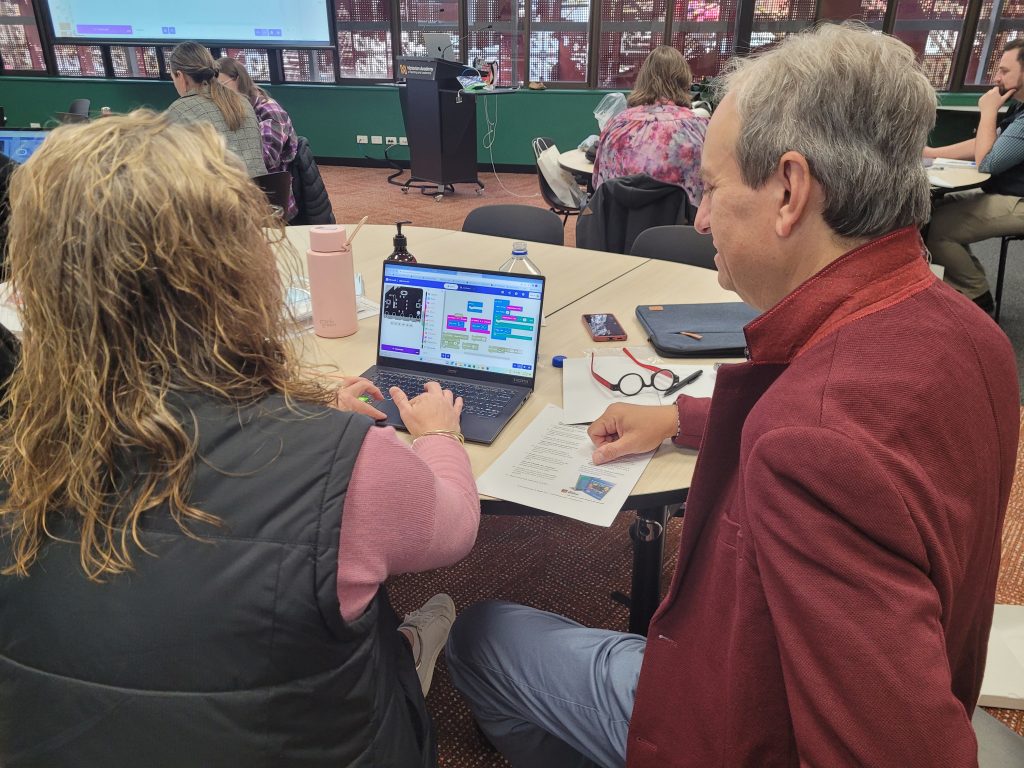
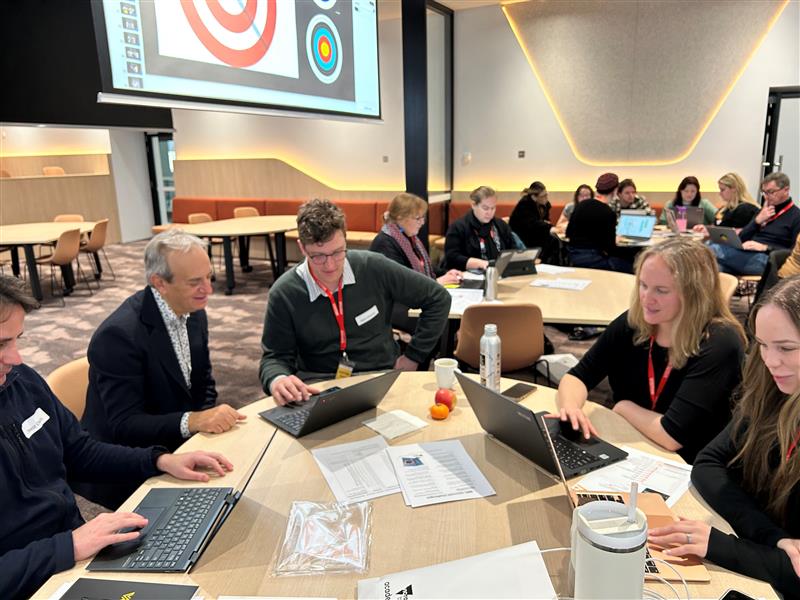
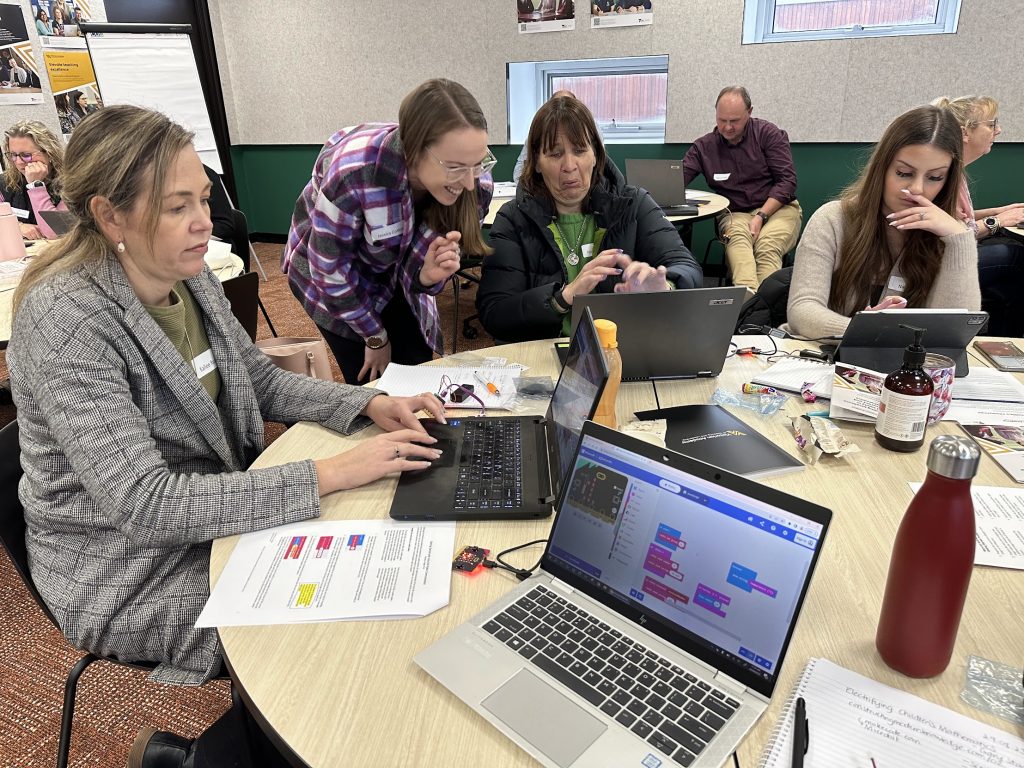
Following the day in Ballarat and 2.5 hour commute back to the city, I led a hands-on Family Art and Mathematics workshop for about one hundred kindergarten through sixth graders and their carers at my favorite school on earth. That’s right, 55 K-6 kids came back to school at 6:30 PM on a school night to explore math and computer programming. It was the most glorious pandemonium. Perhaps the highlight of that event and the previous day’s workshop was getting to work with CMK alumnus, Prue Lemanis, who not only teaches at my favorite school, but was a sixth grade student of mine at Methodist Ladies’ College in the early 1990s when MLC was the first school in the world to embrace truly personal computing. Yeah, I know I can’t be that old!
The penultimate day of my Aussie tour was spent at a workshop for mathematics teacher leaders from across the state of Victoria who are part of the Teacher Excellence Program. I gave the opening keynote address, “The Case for Maths,” and then led three ninety-minute hands-on workshops, “An Embarrassment of Riches – Computational Environments to Use Tomorrow,” “Prompt Setting and Generative Design,” and “Is Your AI Smarter than a Fifth Grader.”
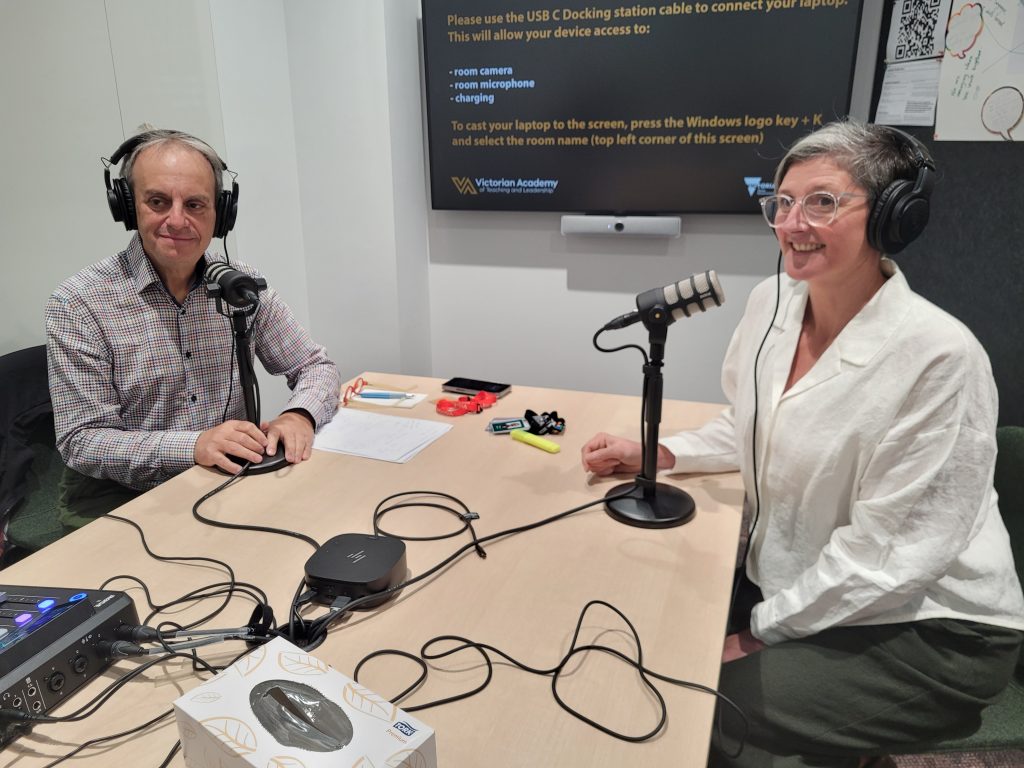
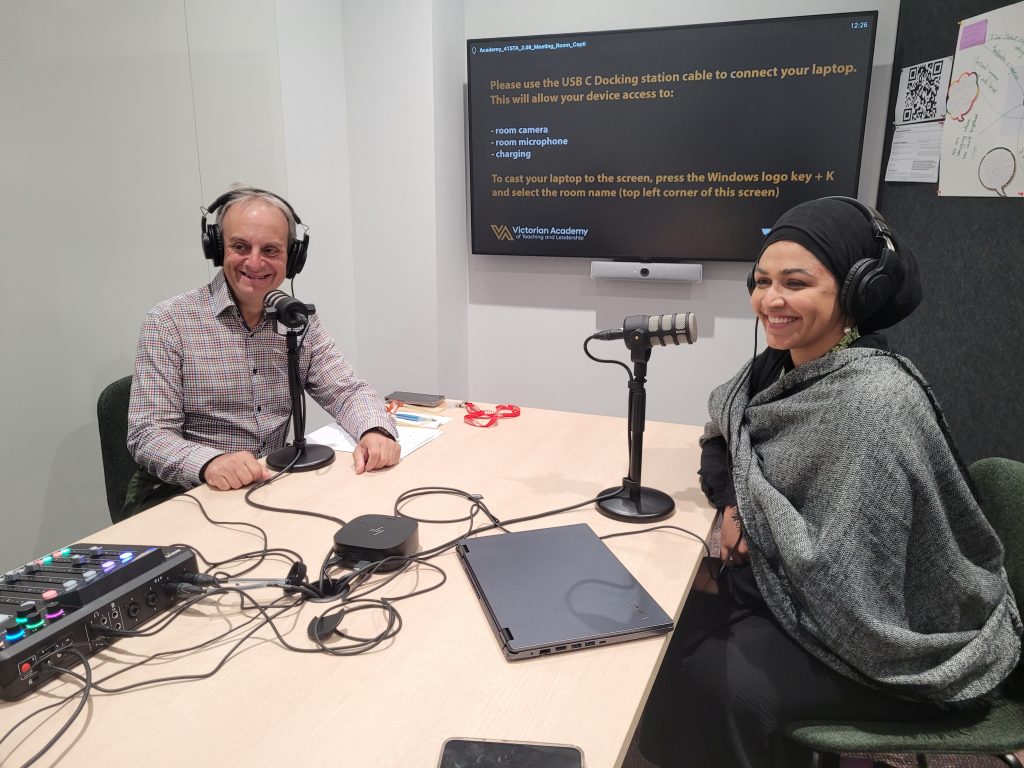
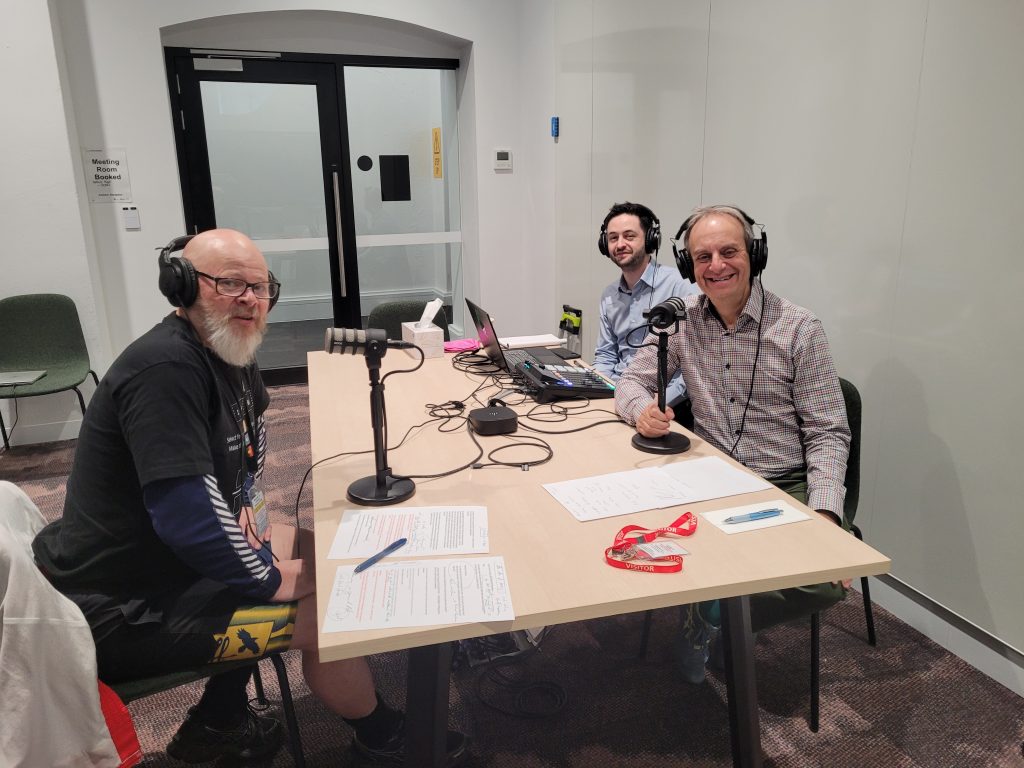
My final day Downunder was spent shooting a bit of video and being interviewed by three impressive educators, selected by the Academy’s Master Teacher Program, for what will become three podcast episodes. The topics were mathematics education reform, artificial intelligence in education, and developing computational fluency. The educators who engaged me in conversation were stunning. They came prepared, asked great questions, and had the poise of a great BBC or NPR host. I was more than delighted to work with an institution, sanctioned by a state, with the mandate to celebrate, support, and develop excellent master teachers rather than chase them out of classrooms. I cannot wait to share our conversations with you once they are online. Many thanks to my colleague Rachel Crellin for making all of this happen!
Good onya Australia! See you again soon!
Veteran educator Gary Stager, Ph.D. is the author of Twenty Things to Do with a Computer – Forward 50, co-author of Invent To Learn — Making, Tinkering, and Engineering in the Classroom, publisher at Constructing Modern Knowledge Press, and the founder of the Constructing Modern Knowledge summer institute. He led professional development in the world’s first 1:1 laptop schools thirty years ago and designed one of the oldest online graduate school programs. Gary is also the curator of The Seymour Papert archives at DailyPapert.com. Learn more about Gary here.

